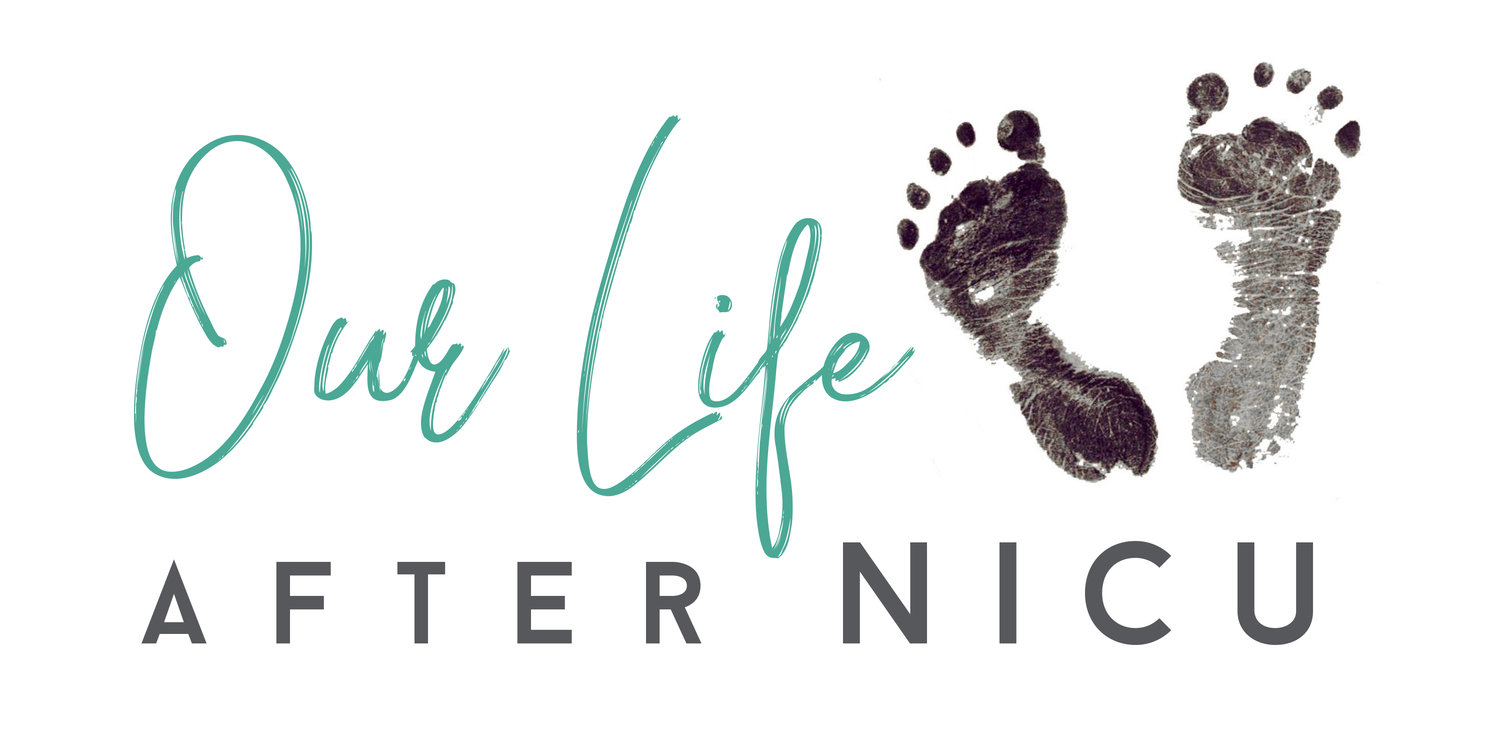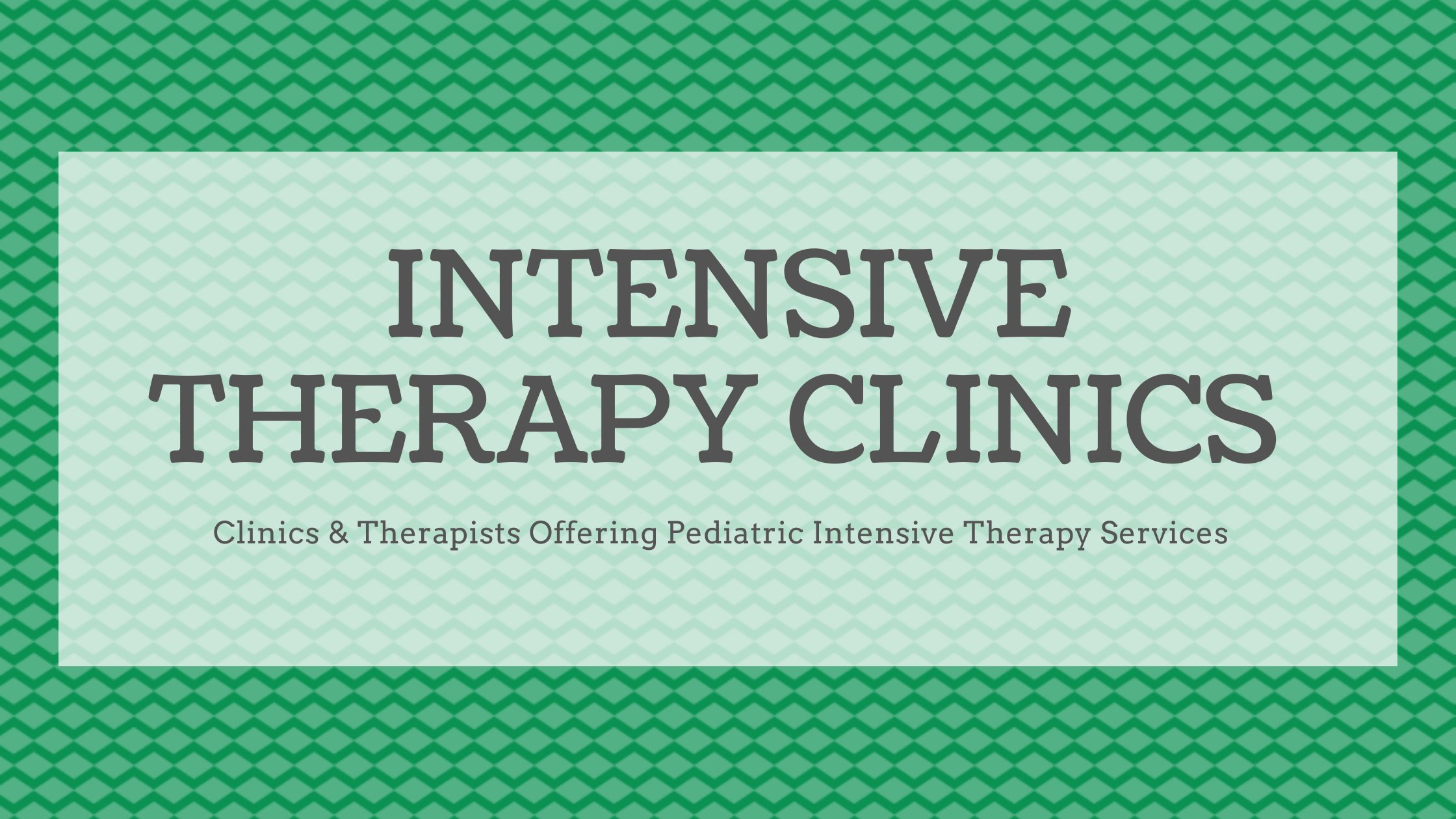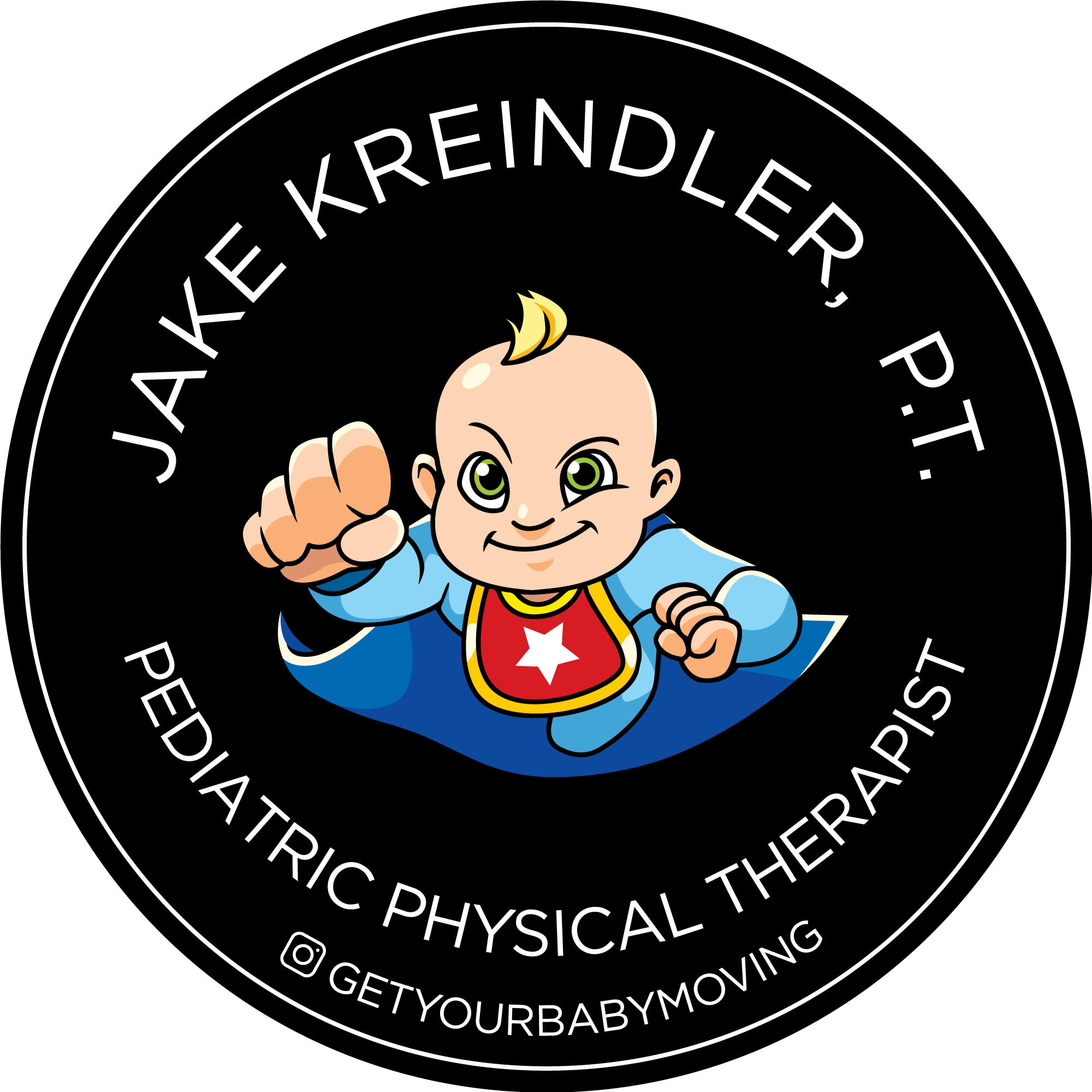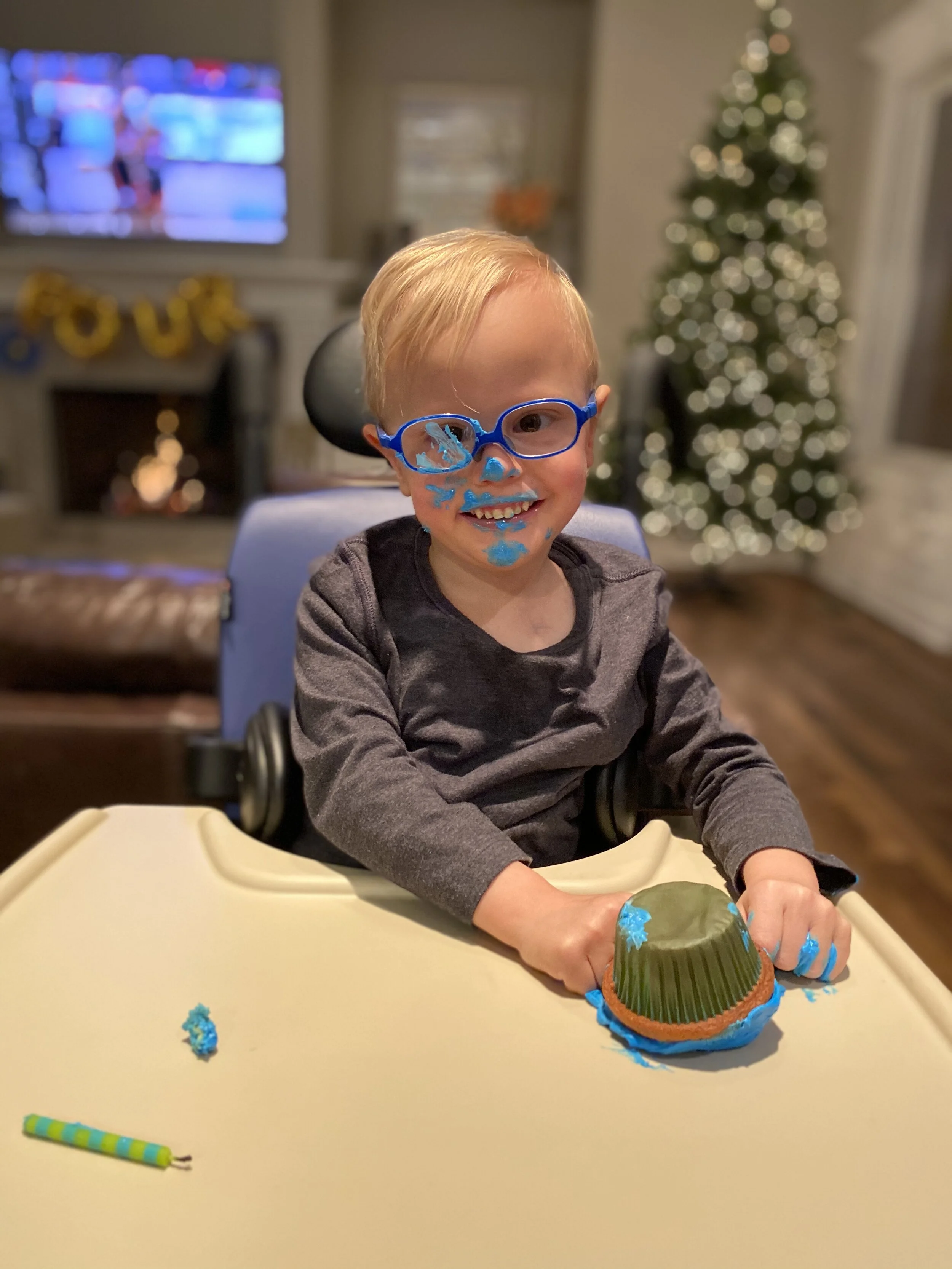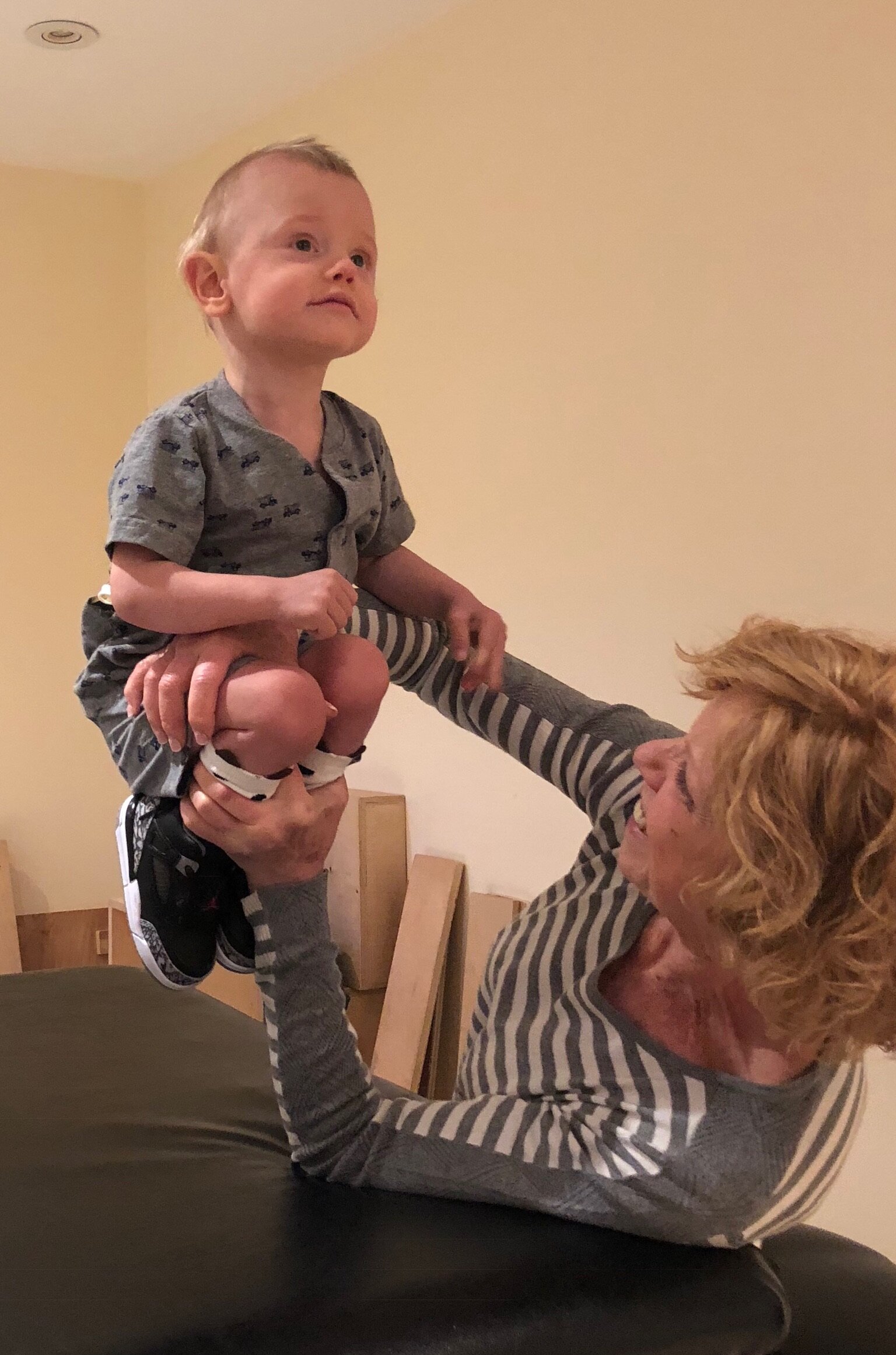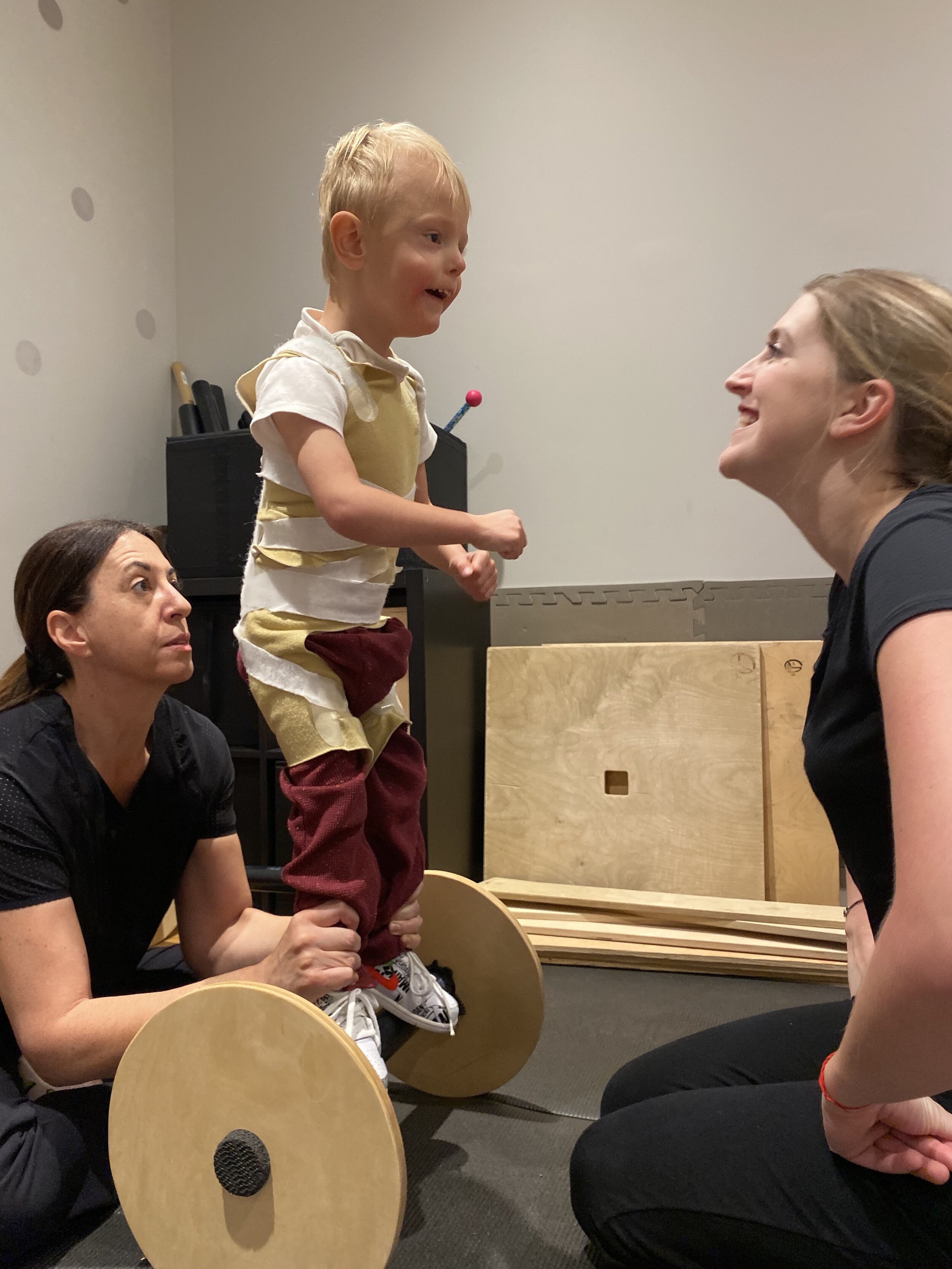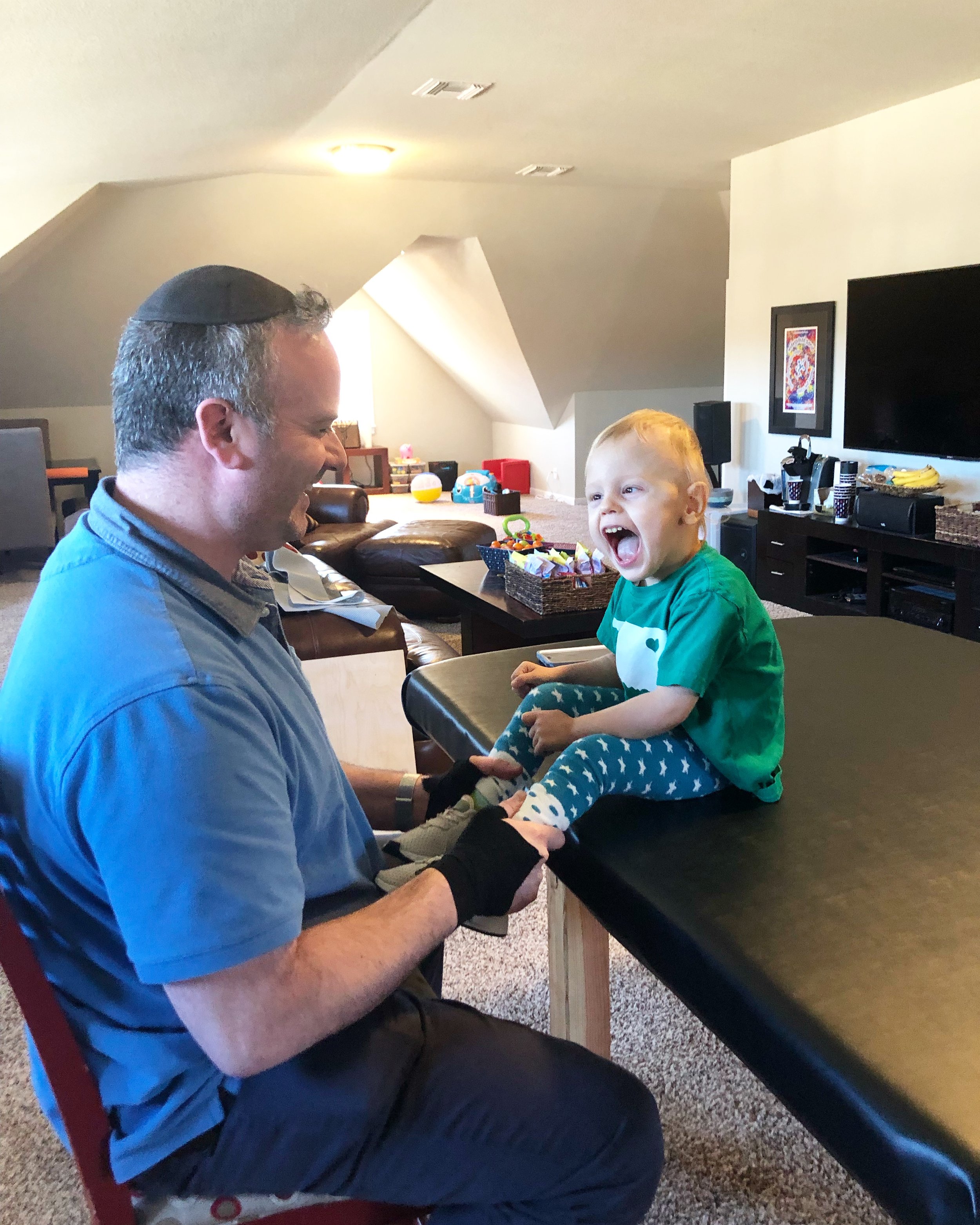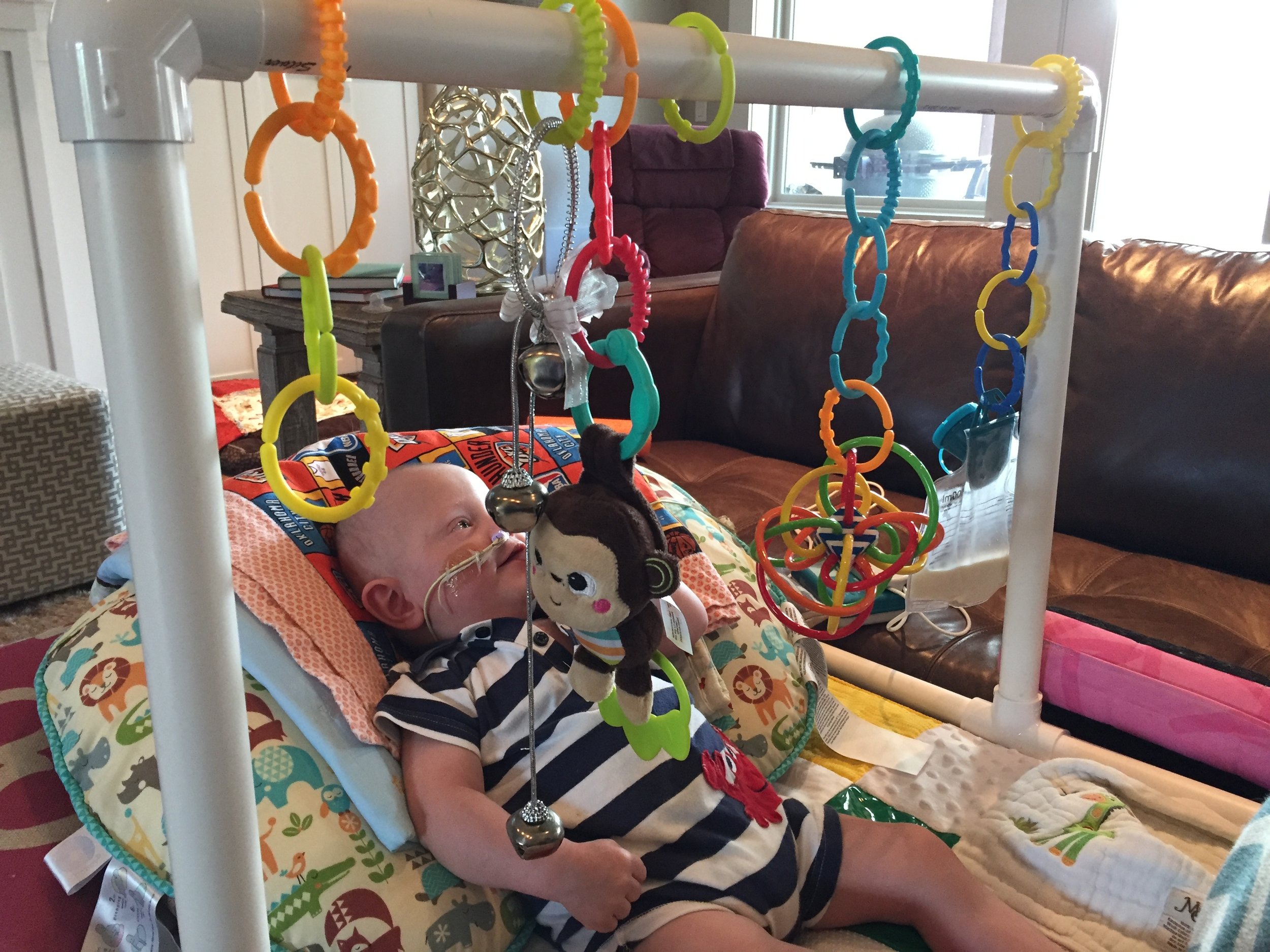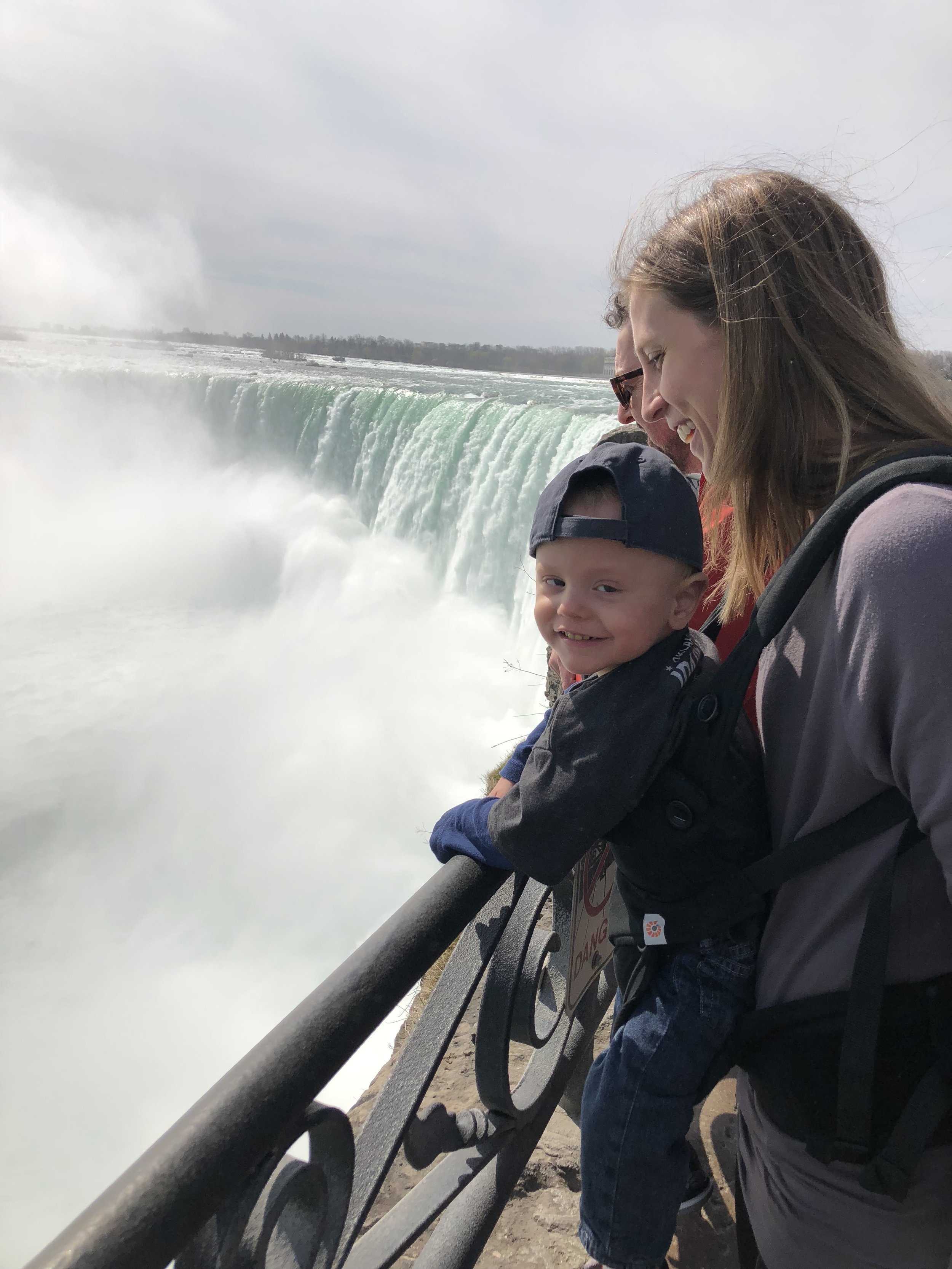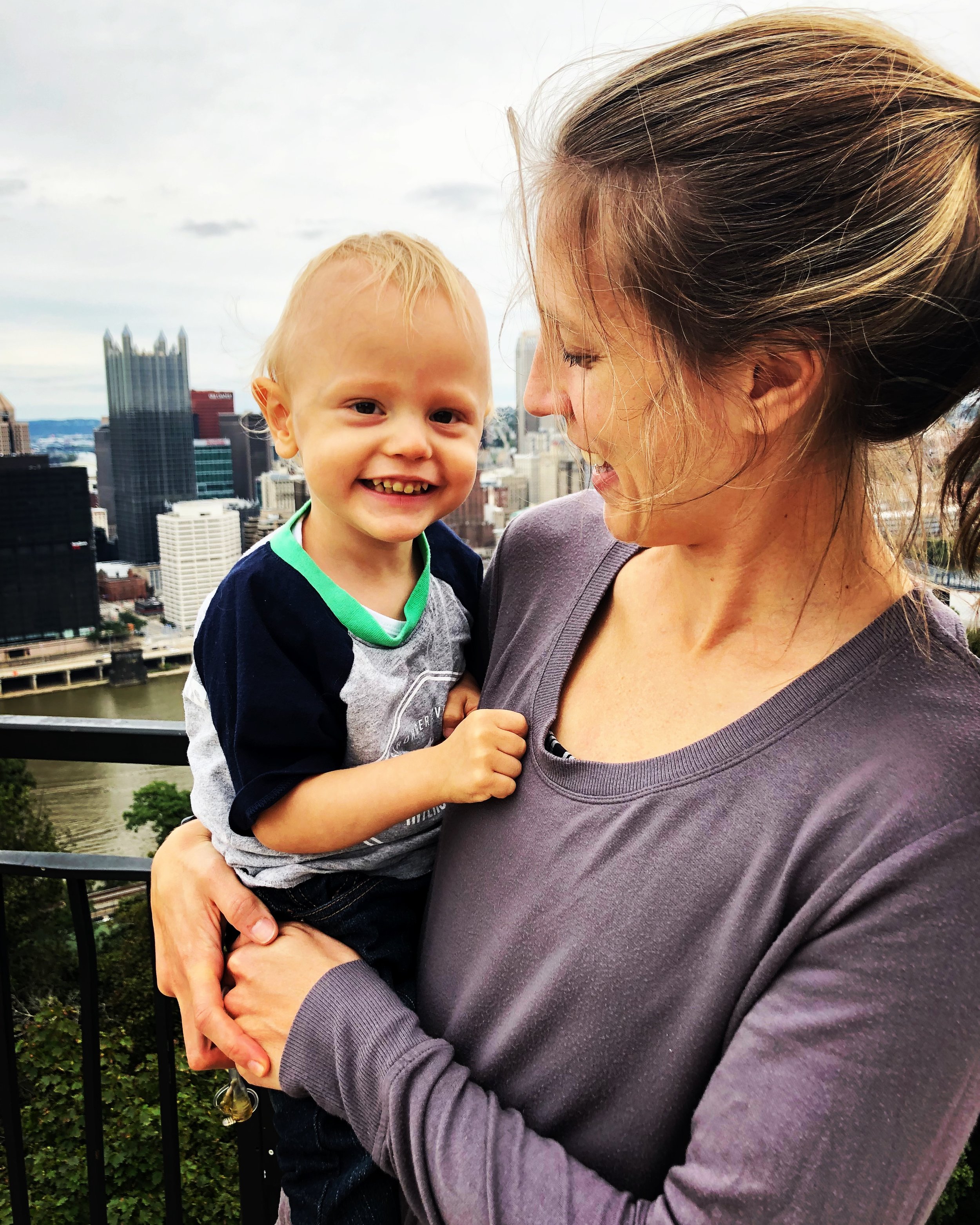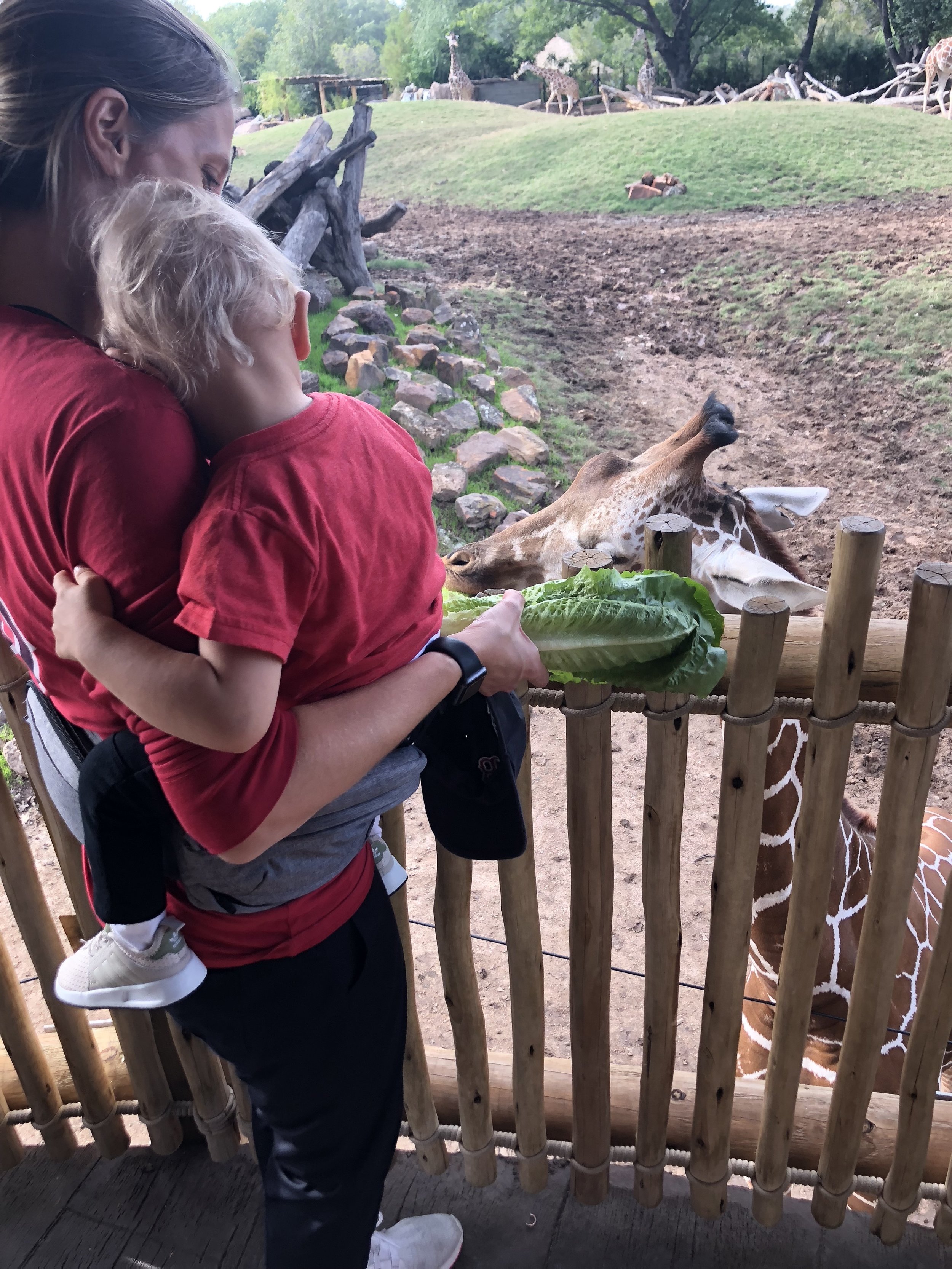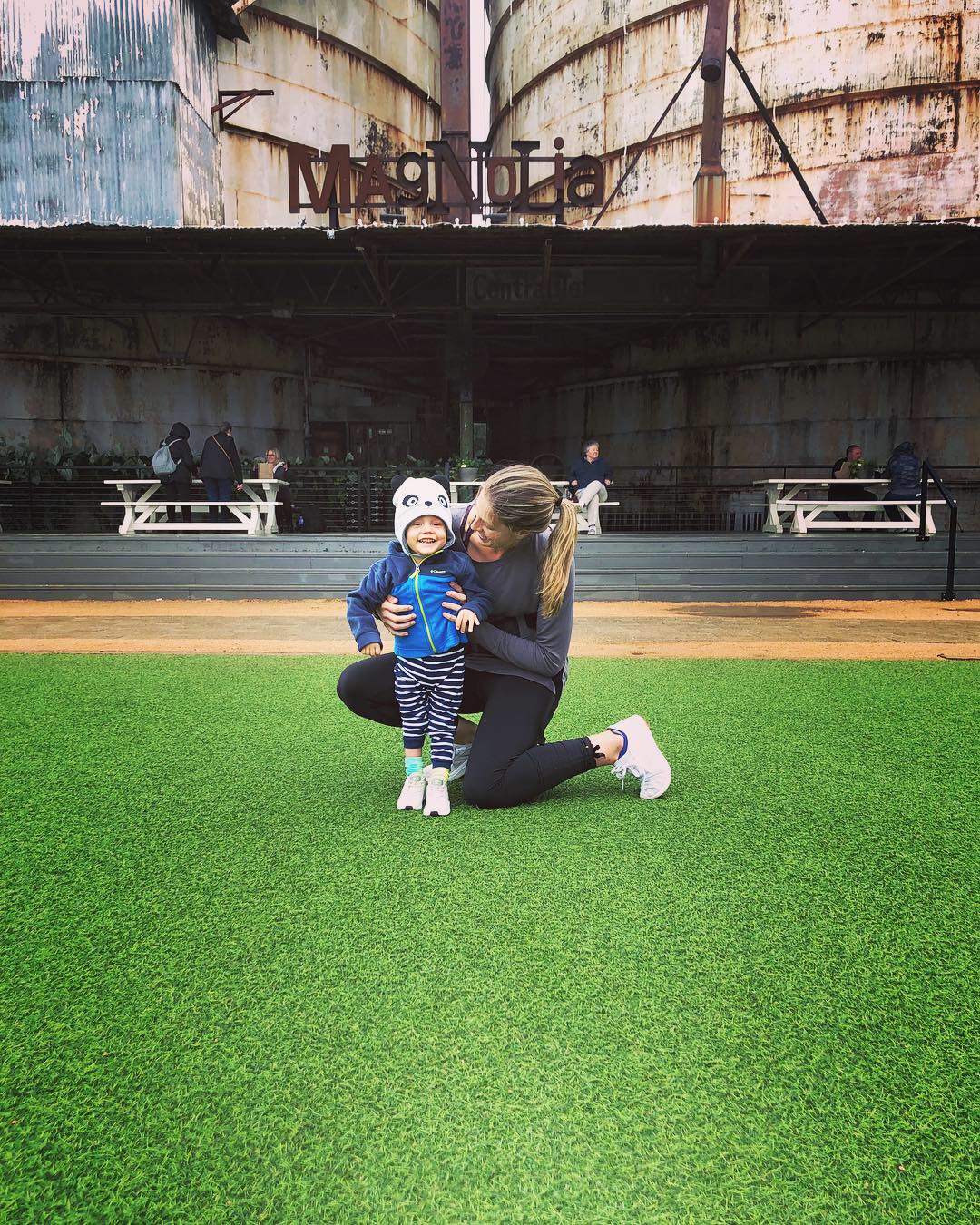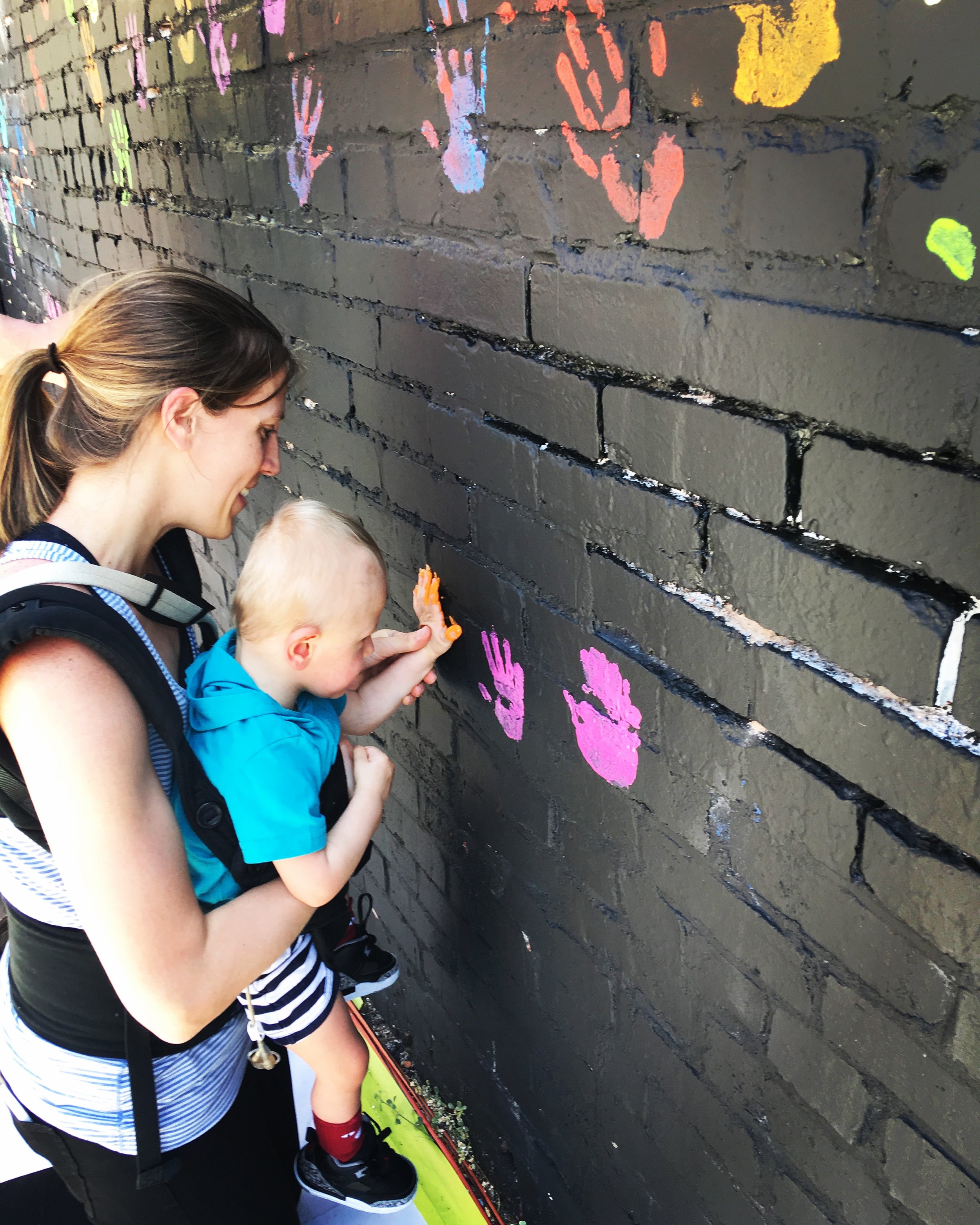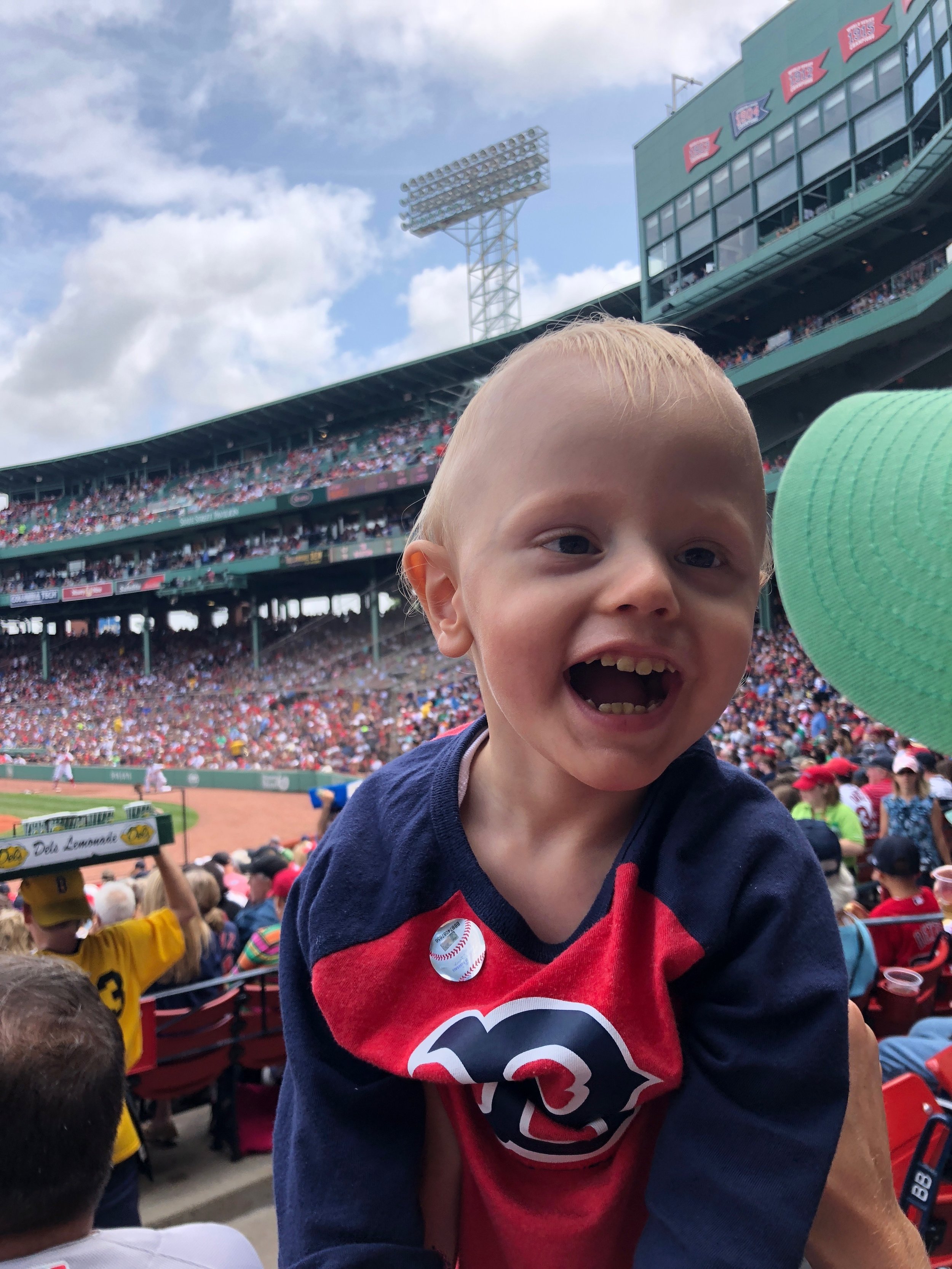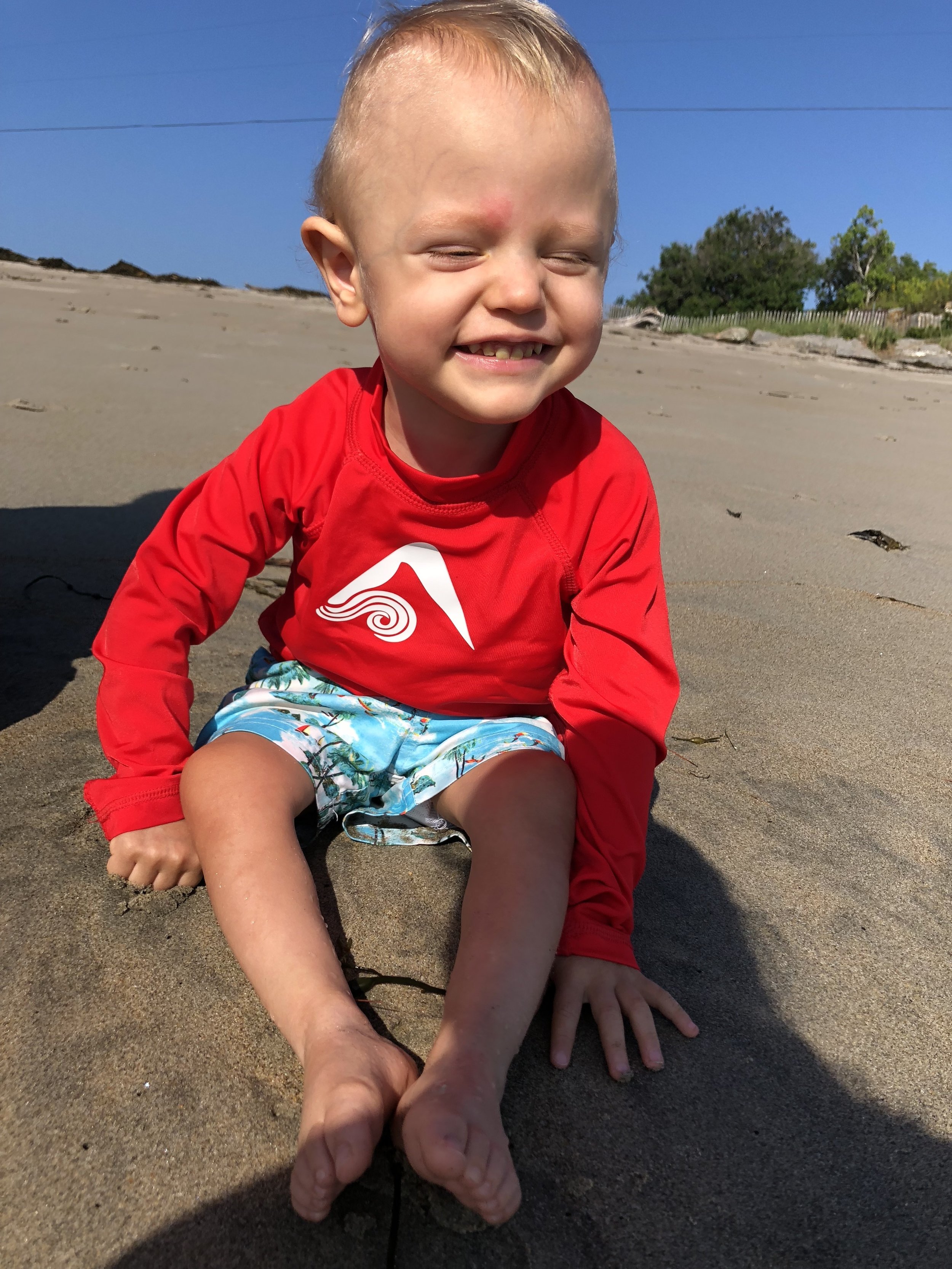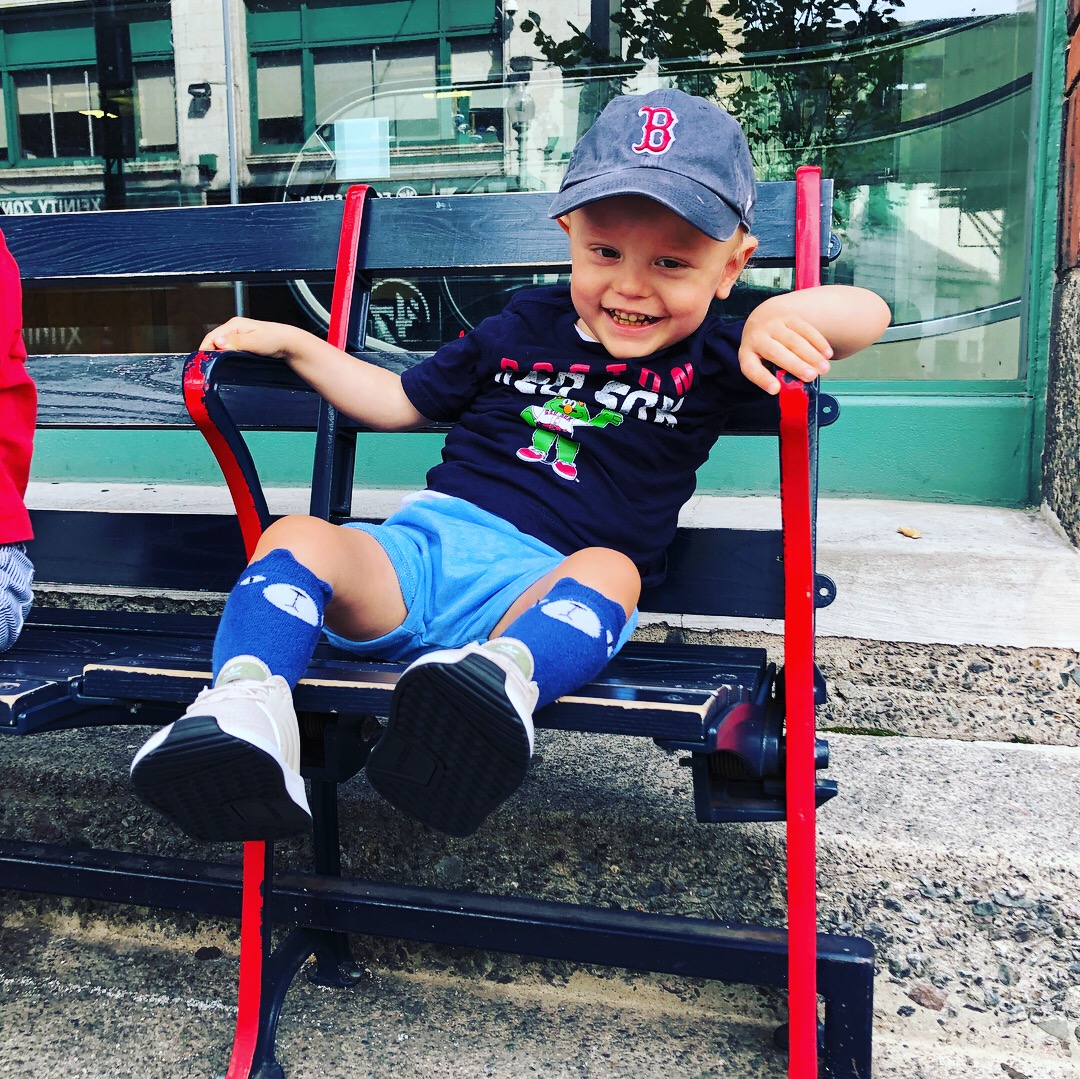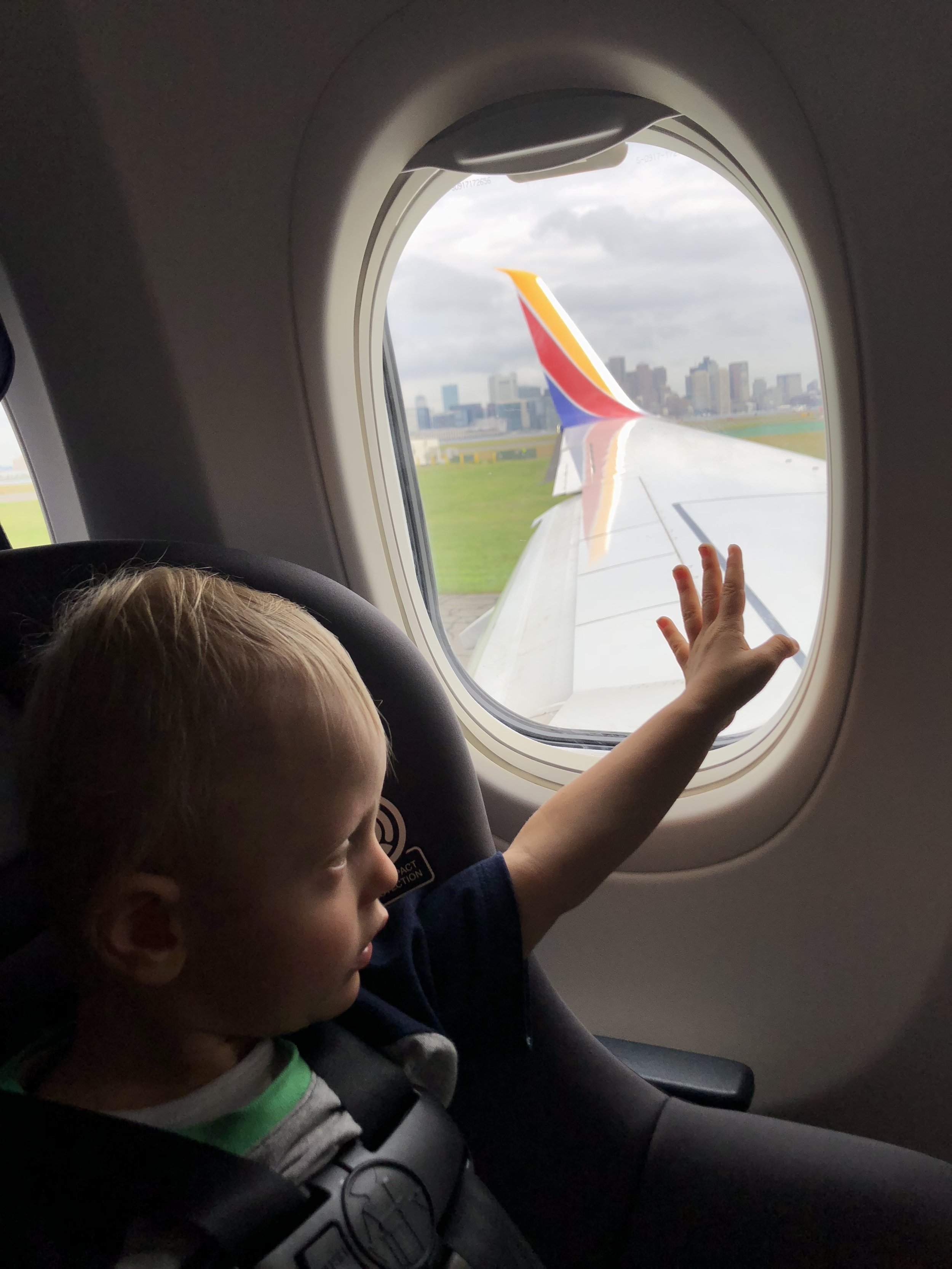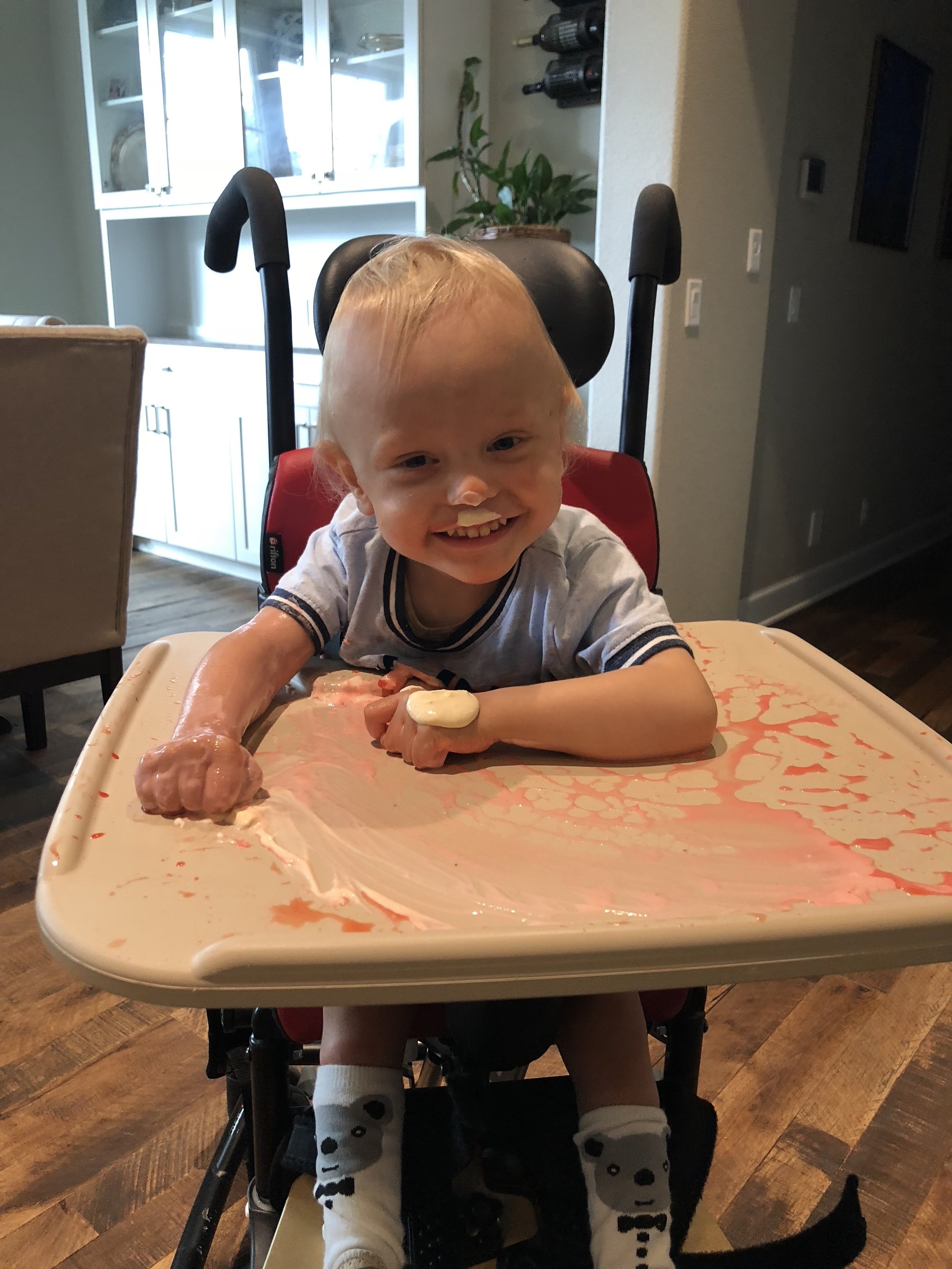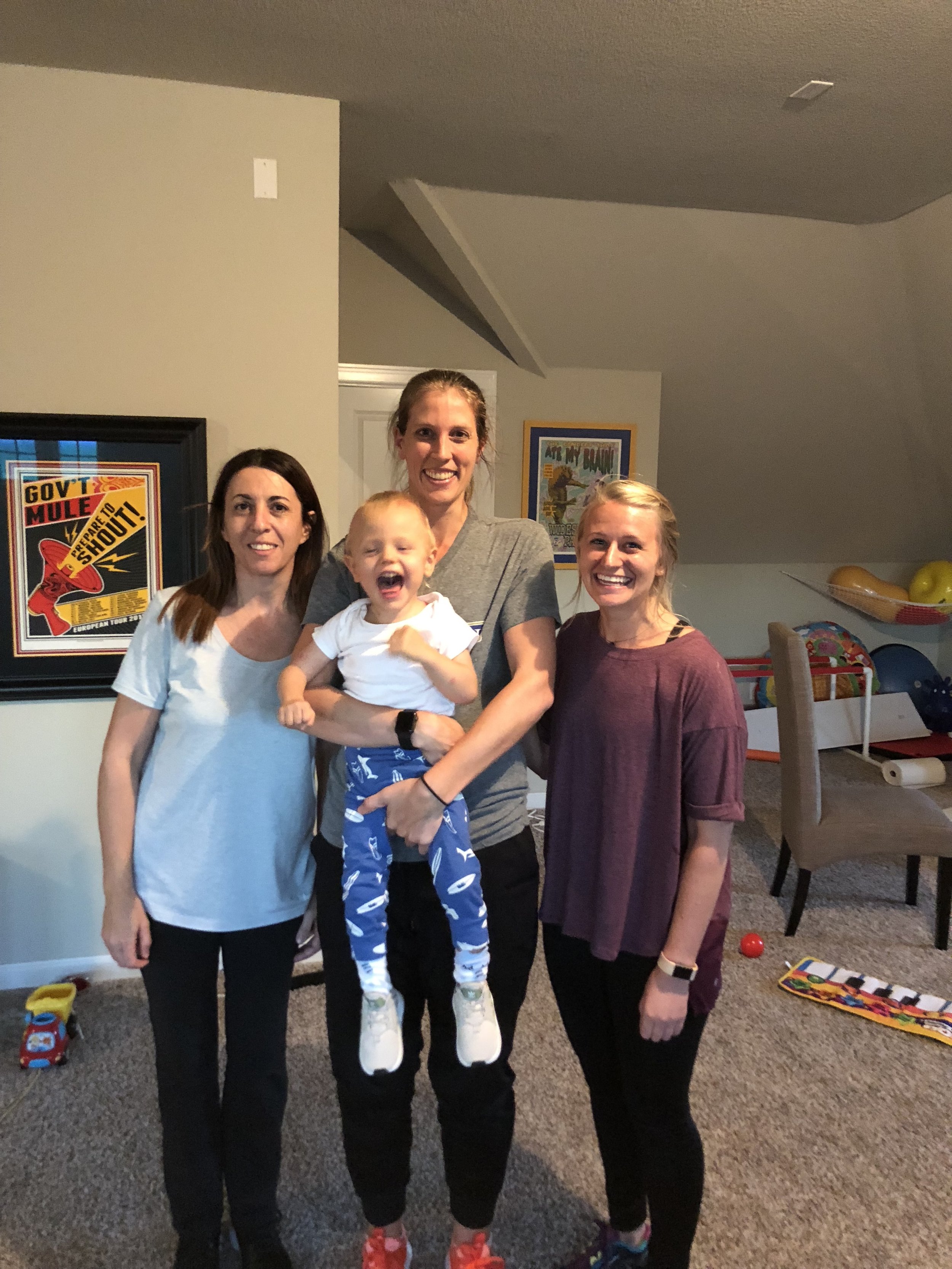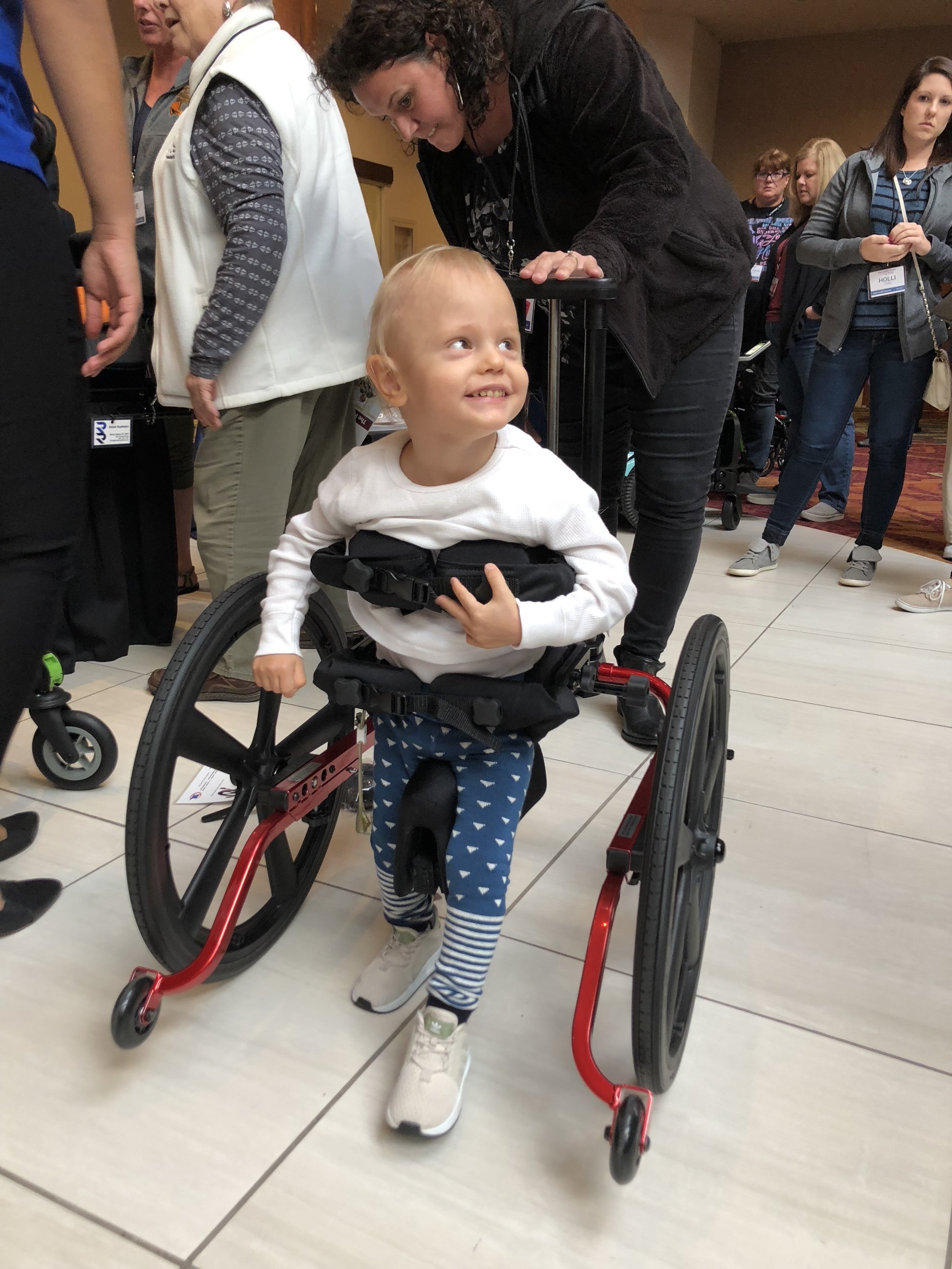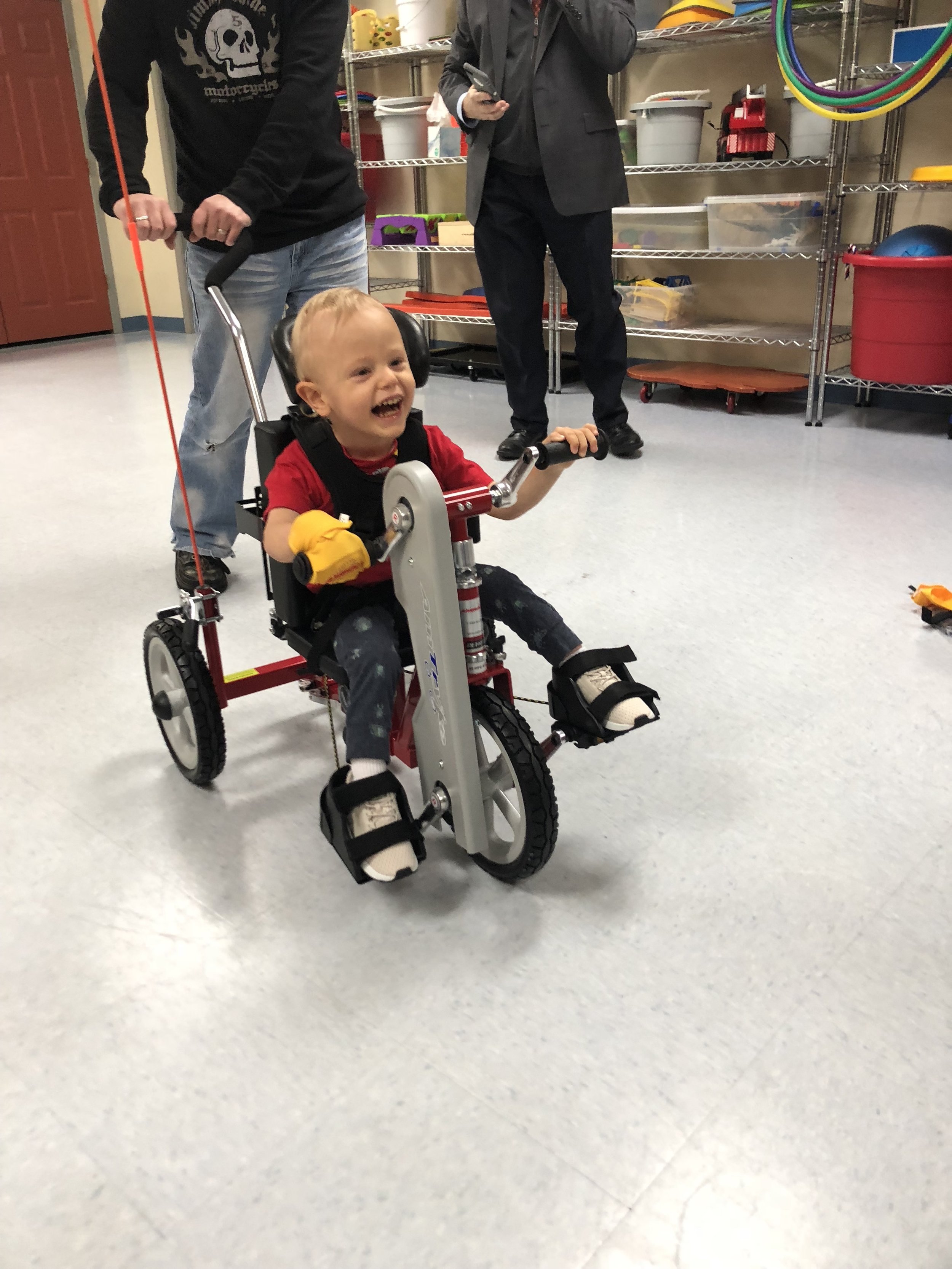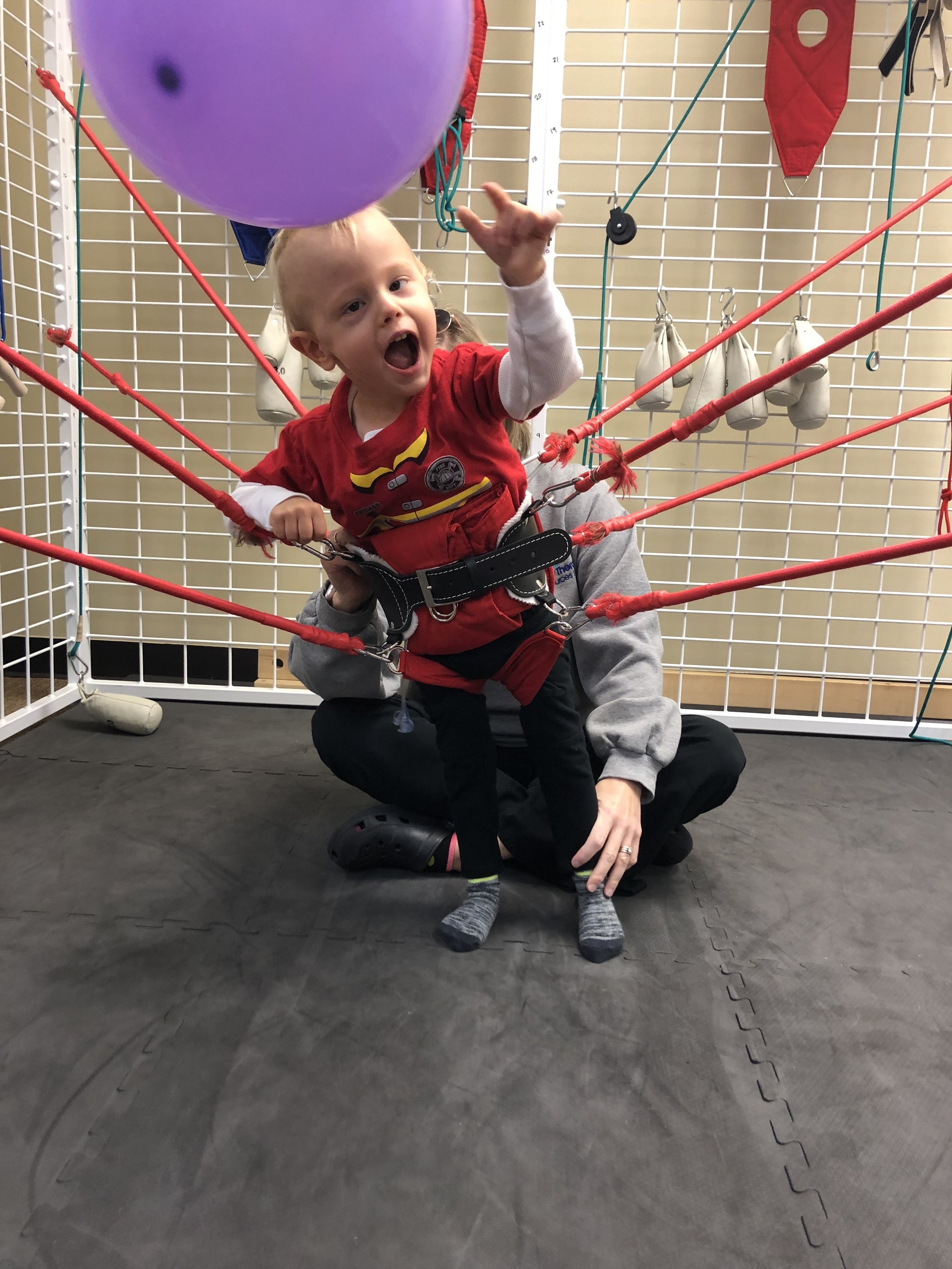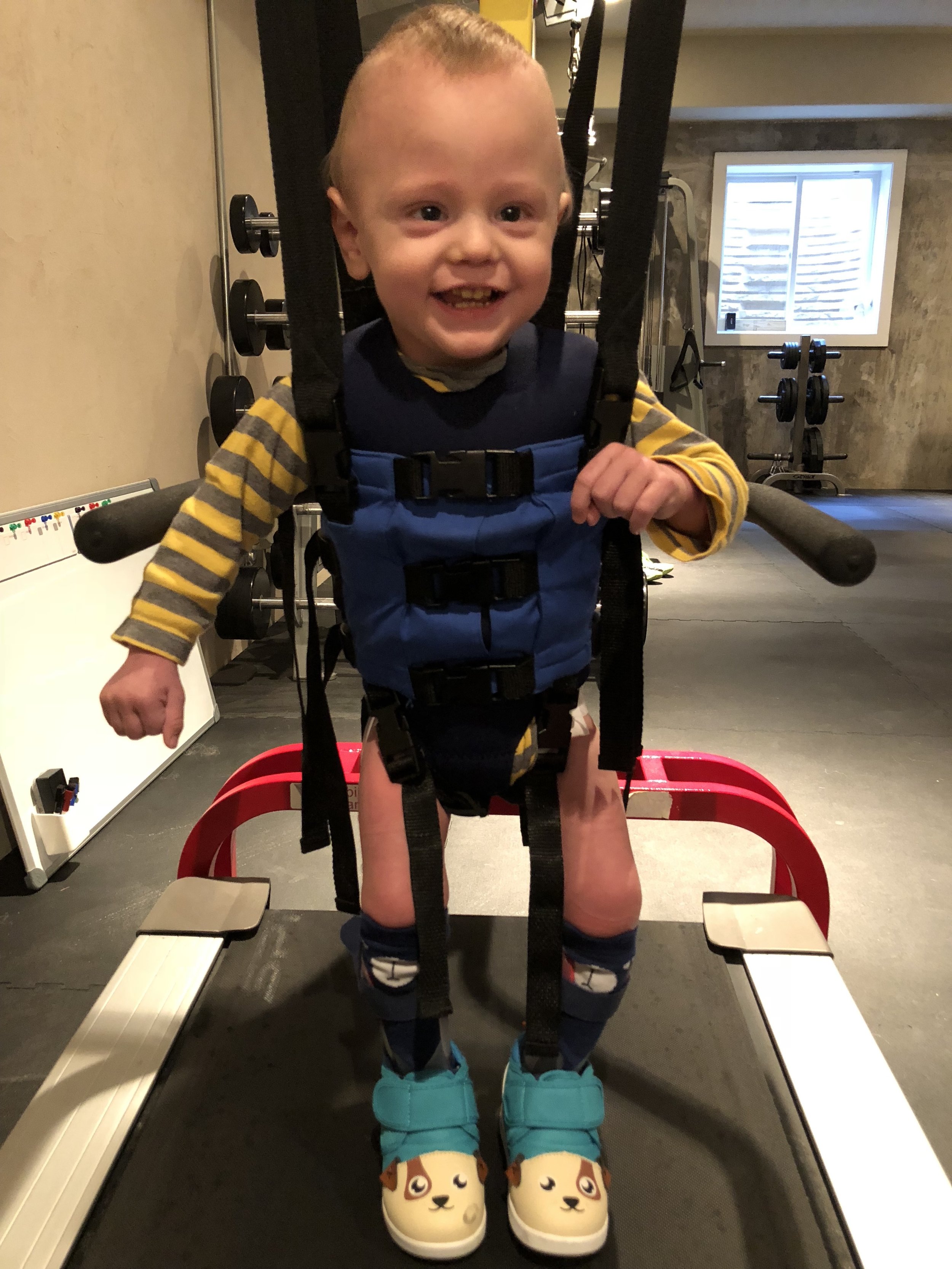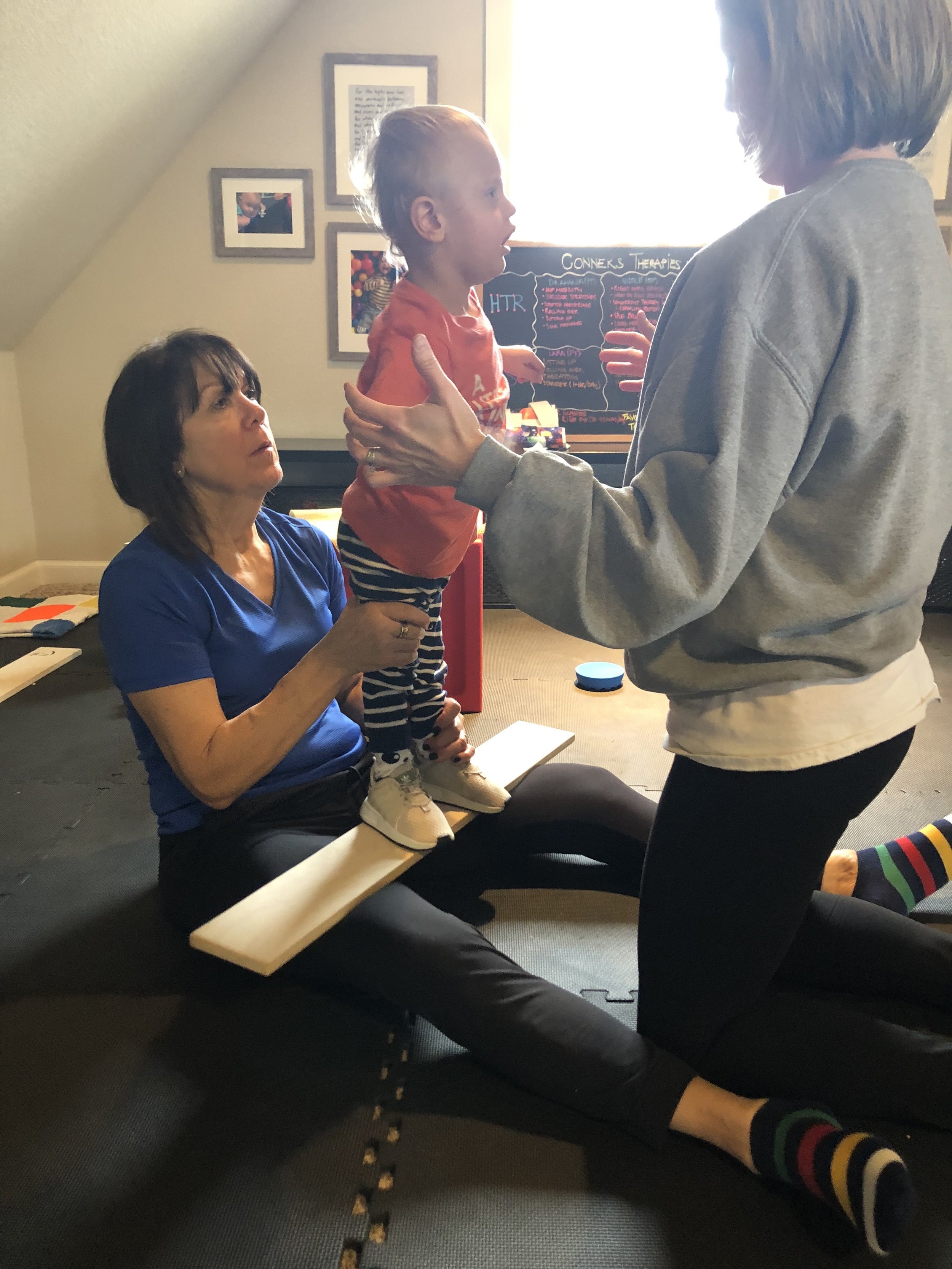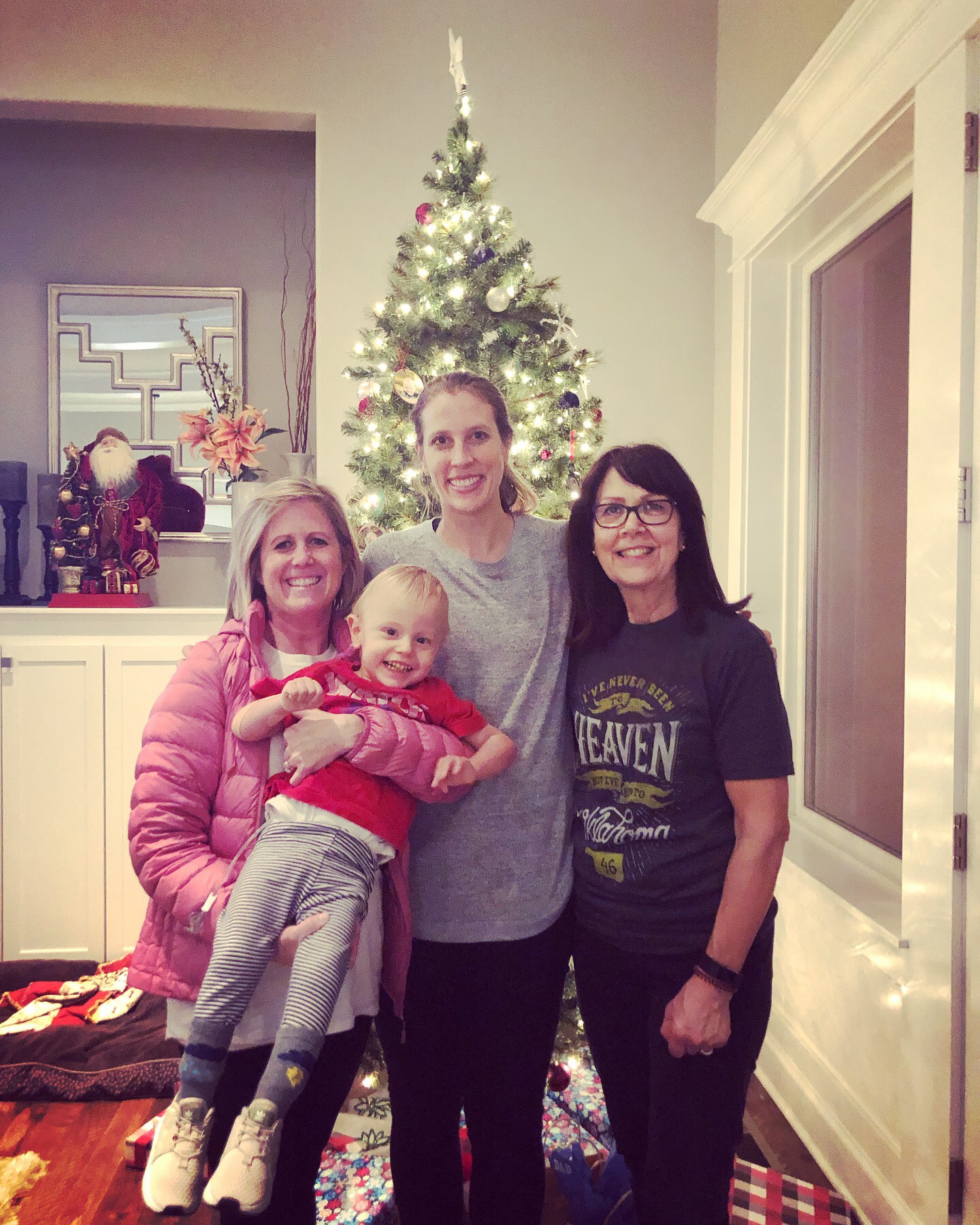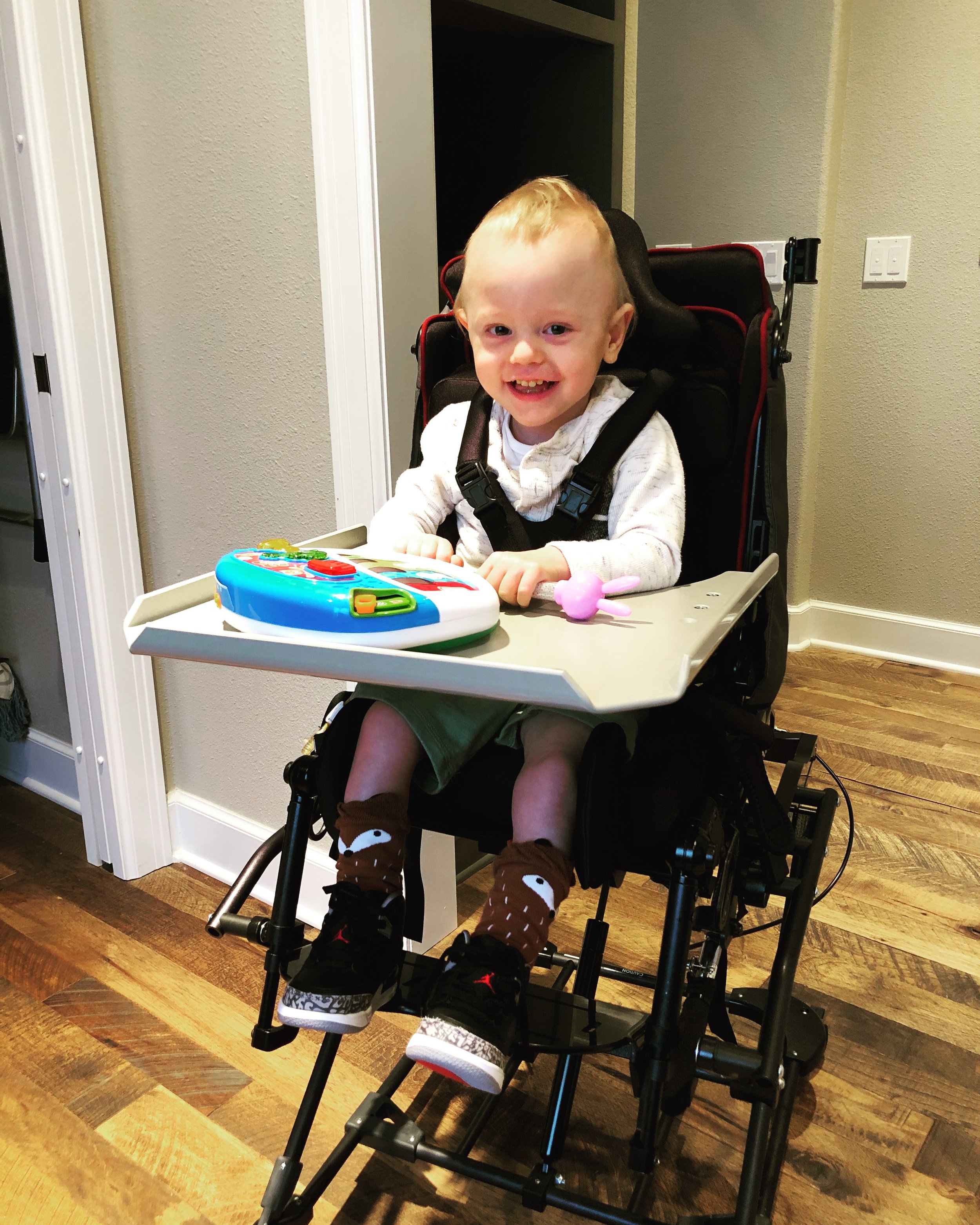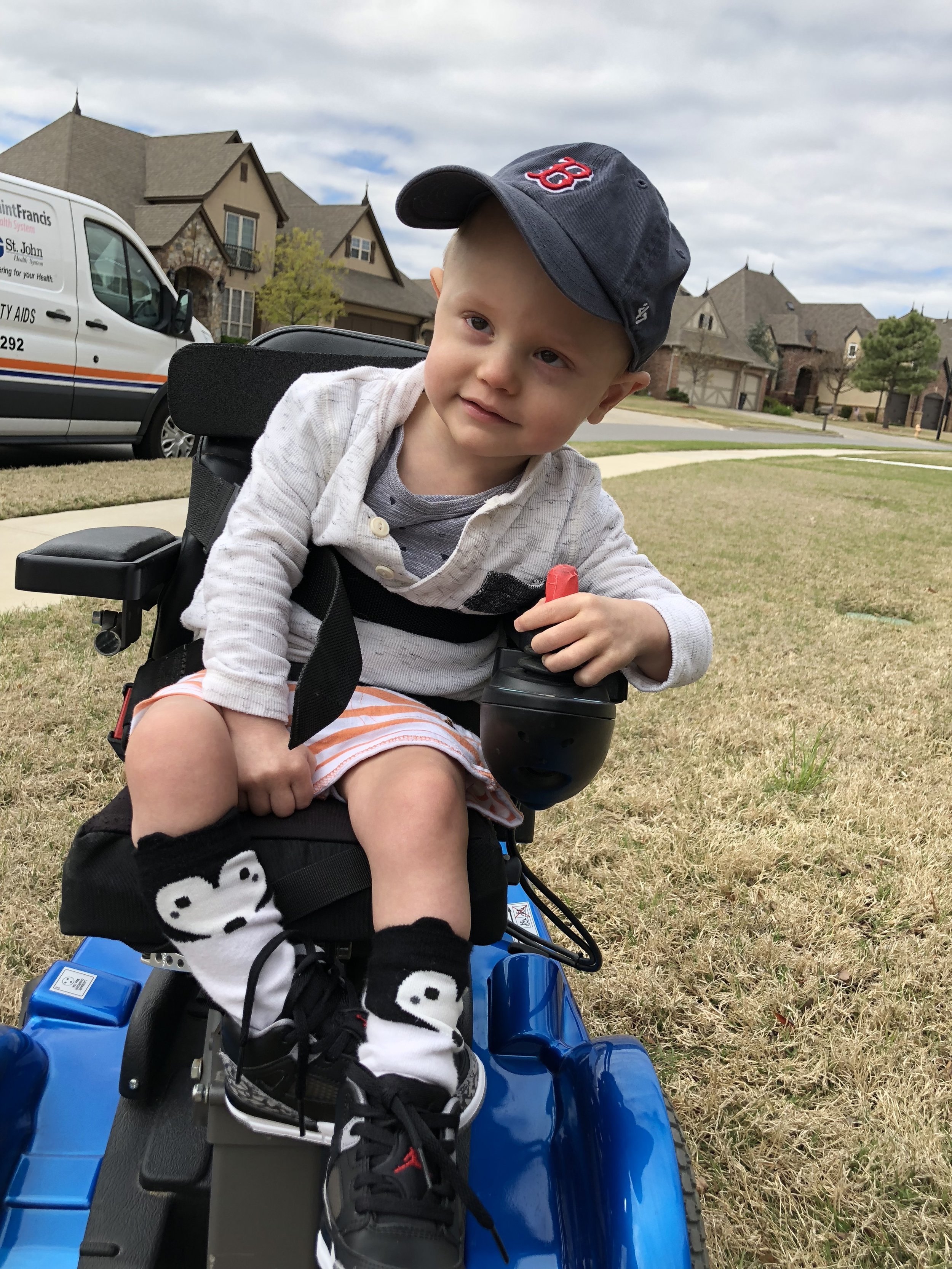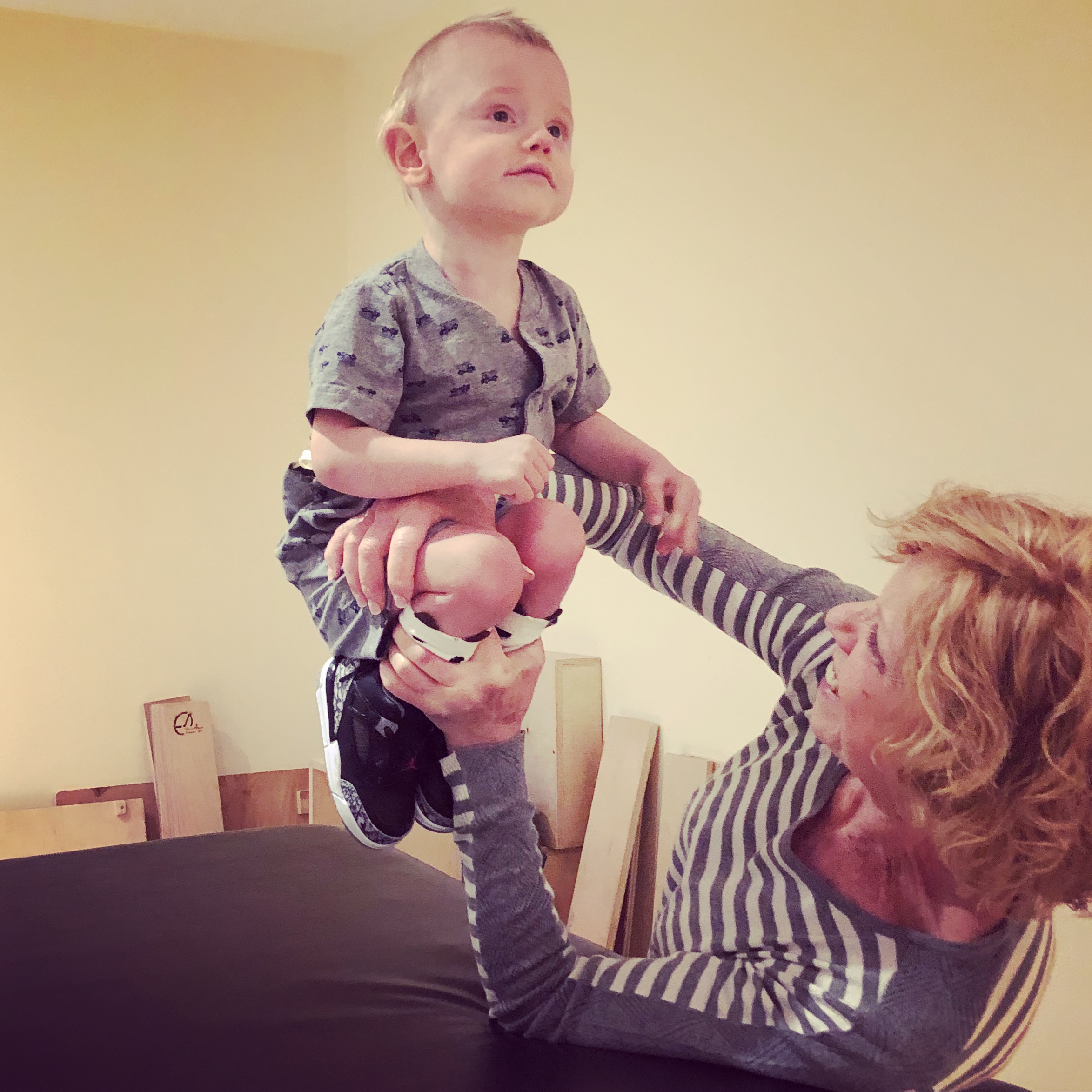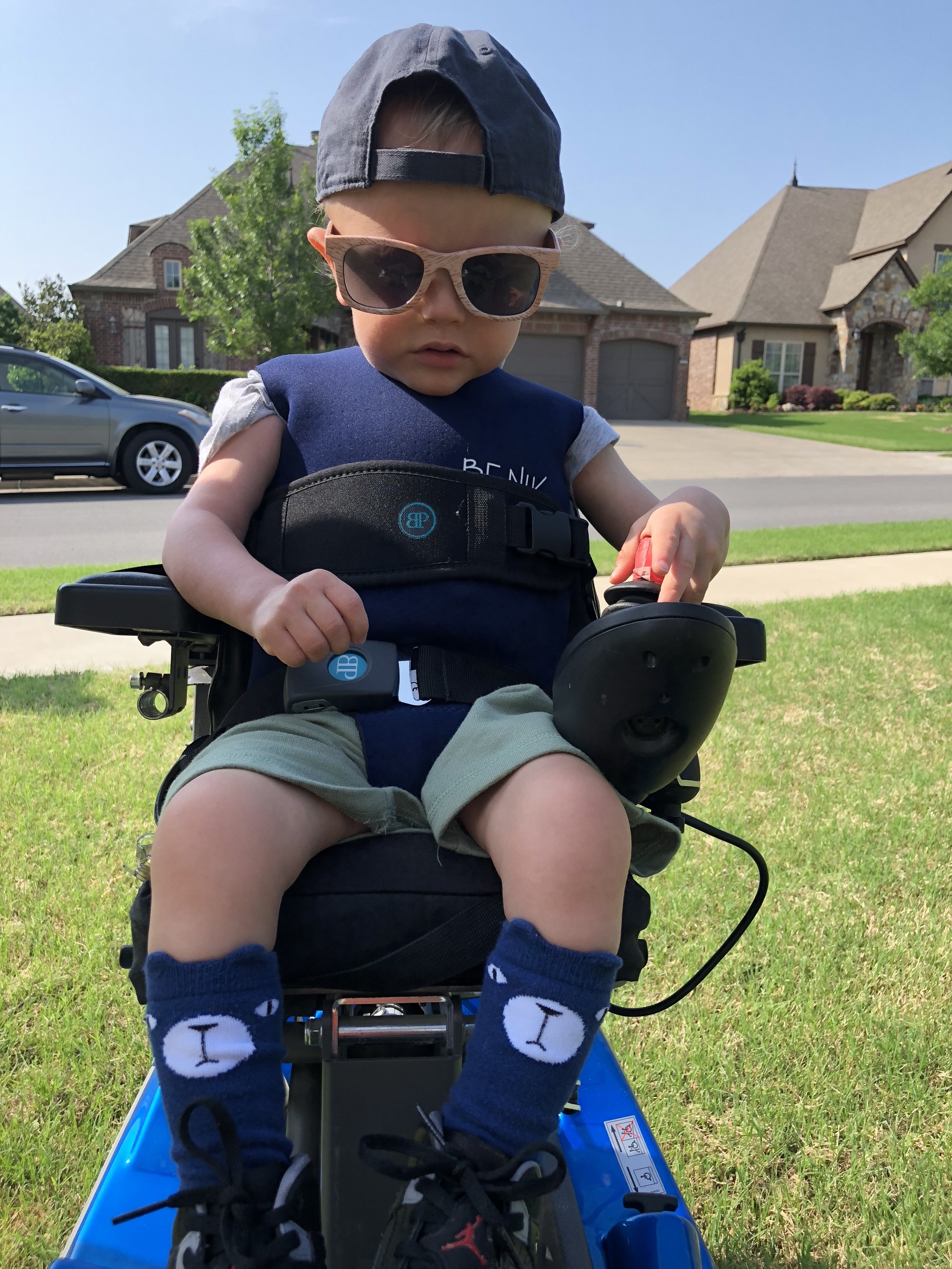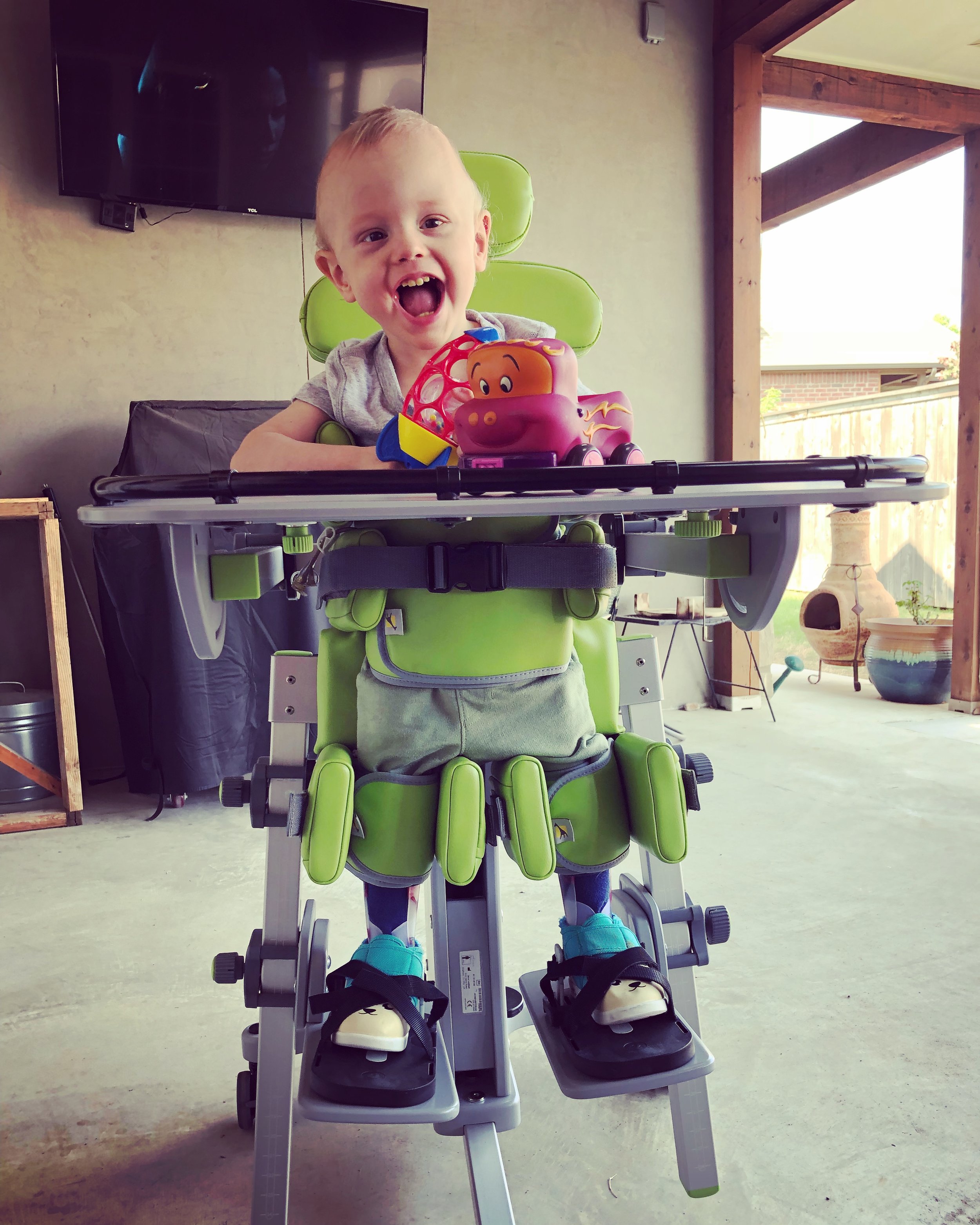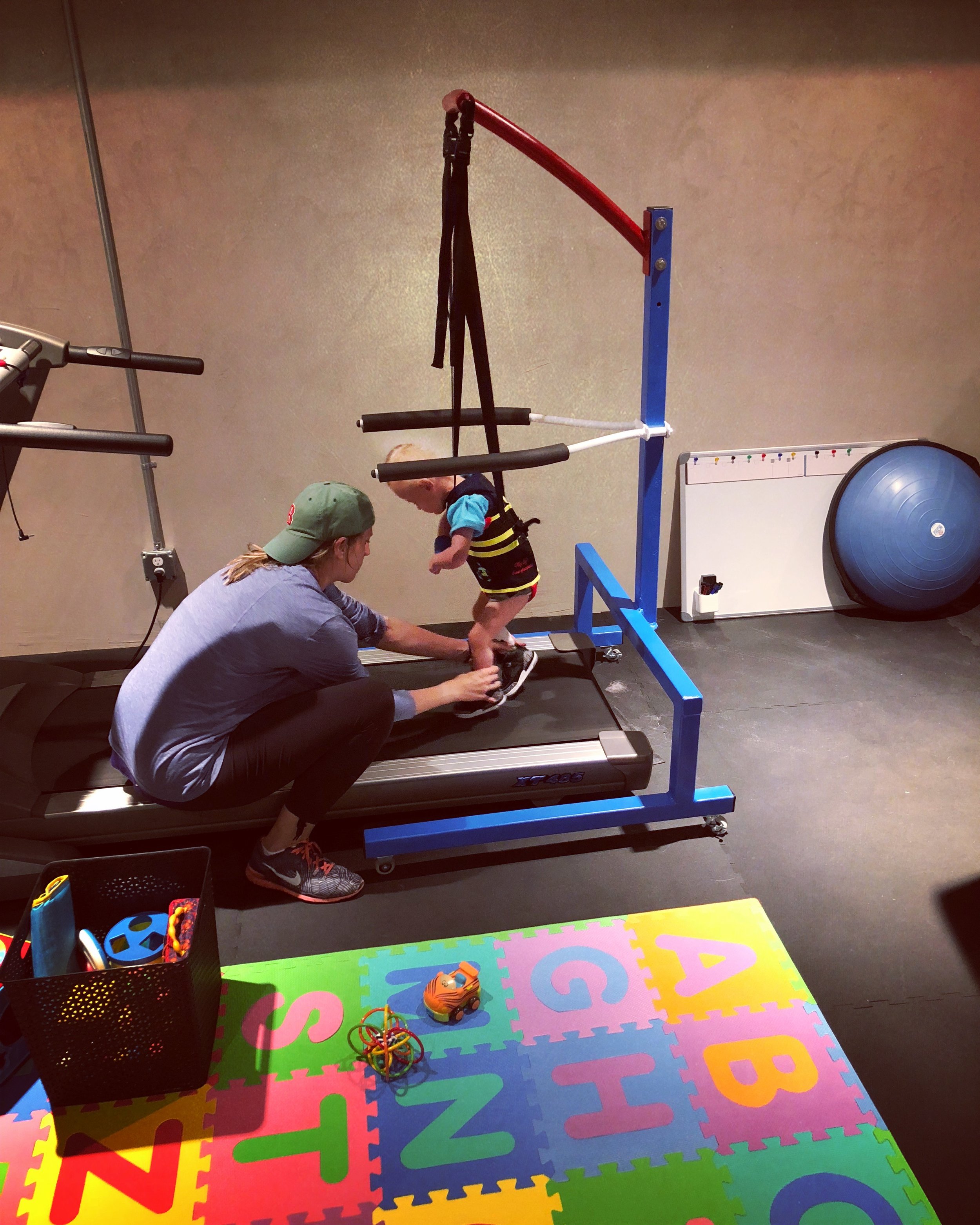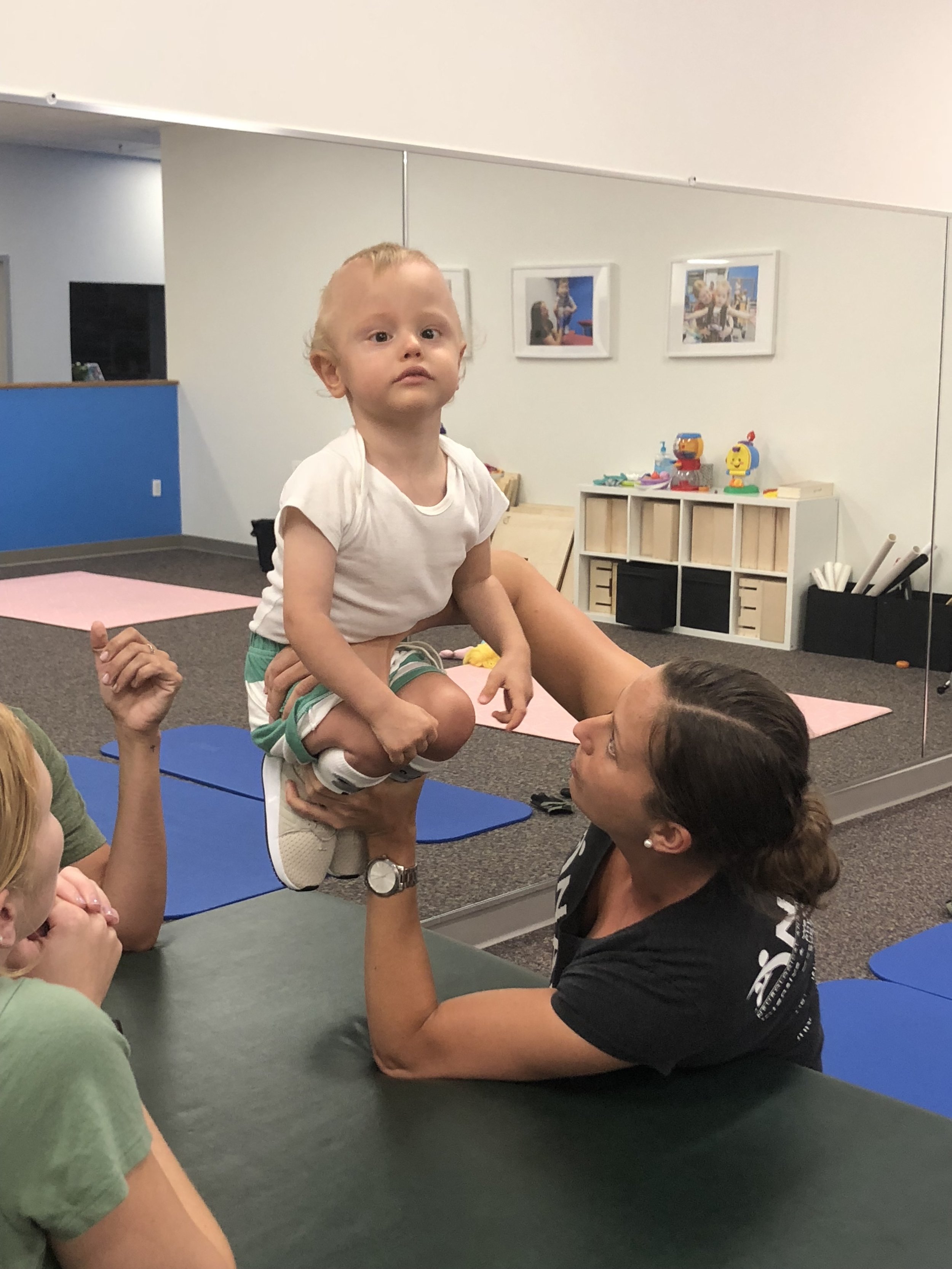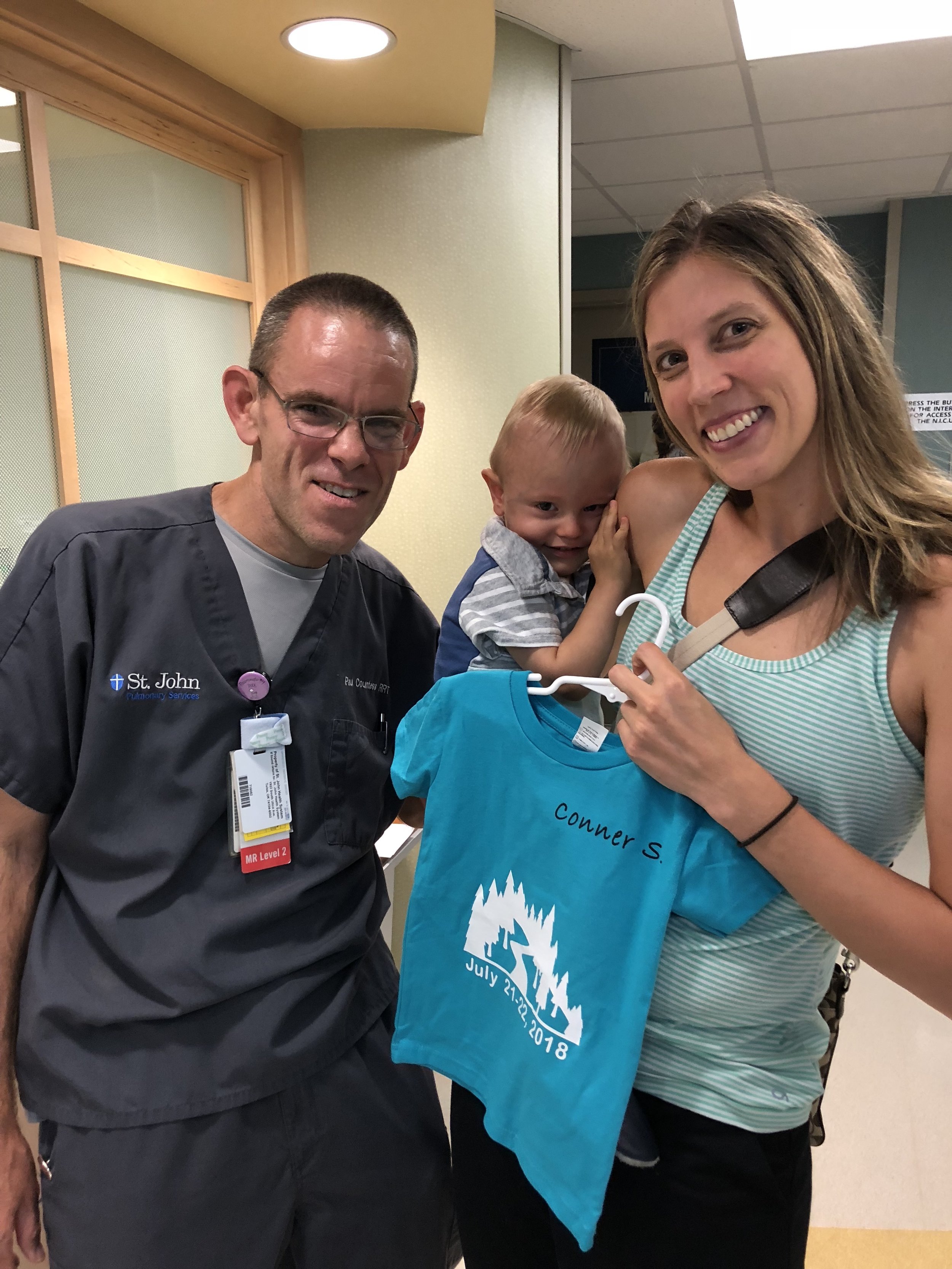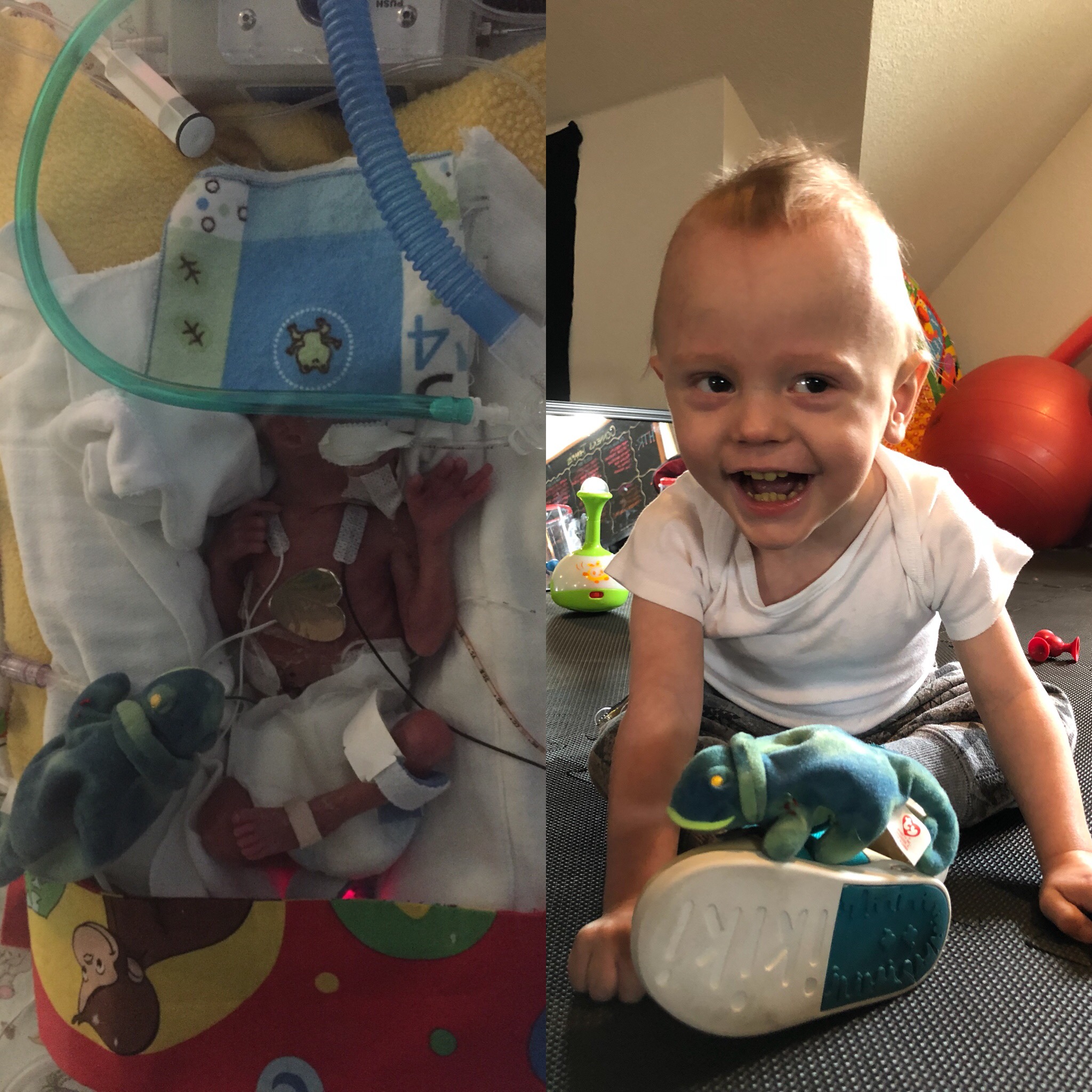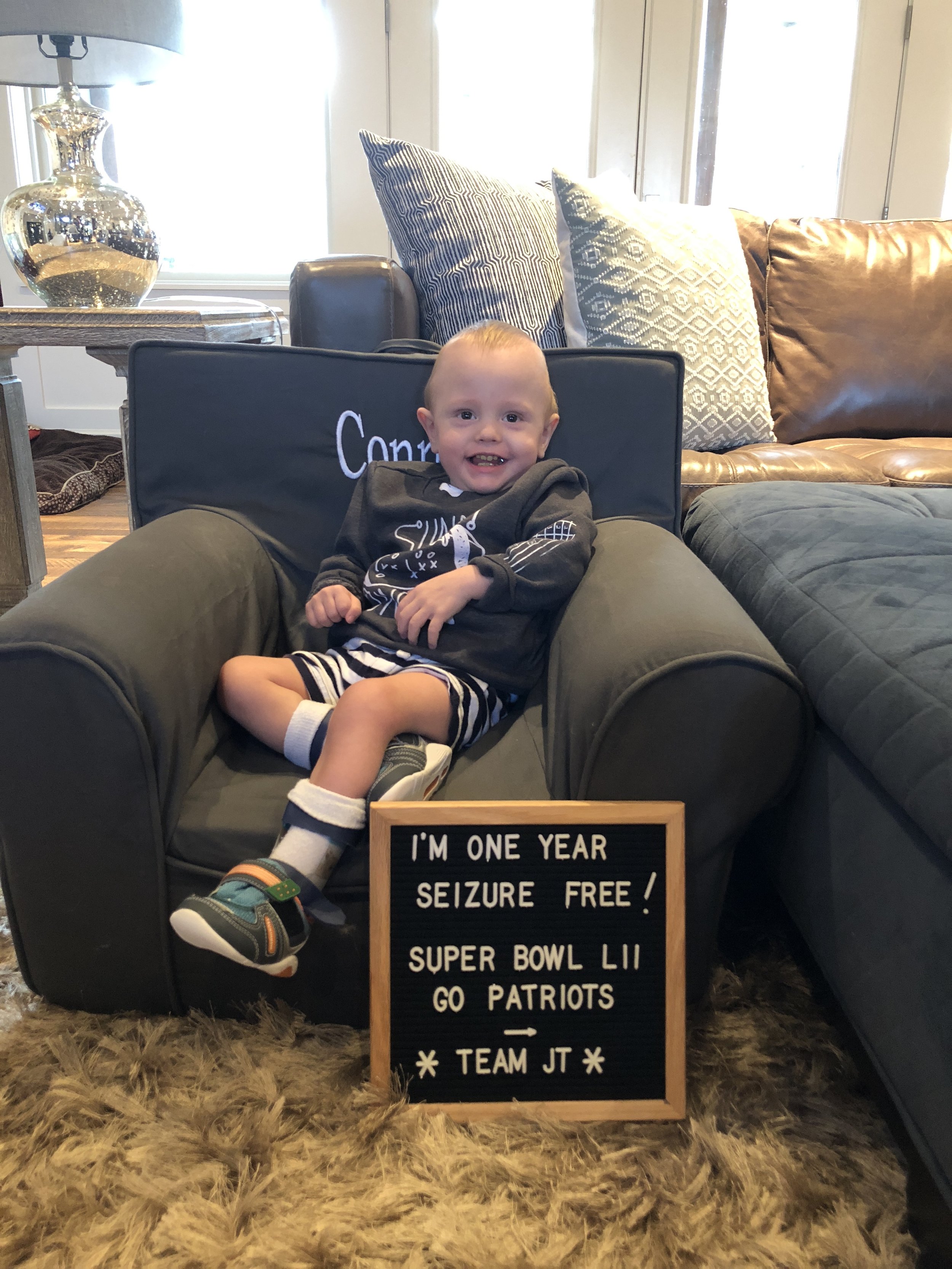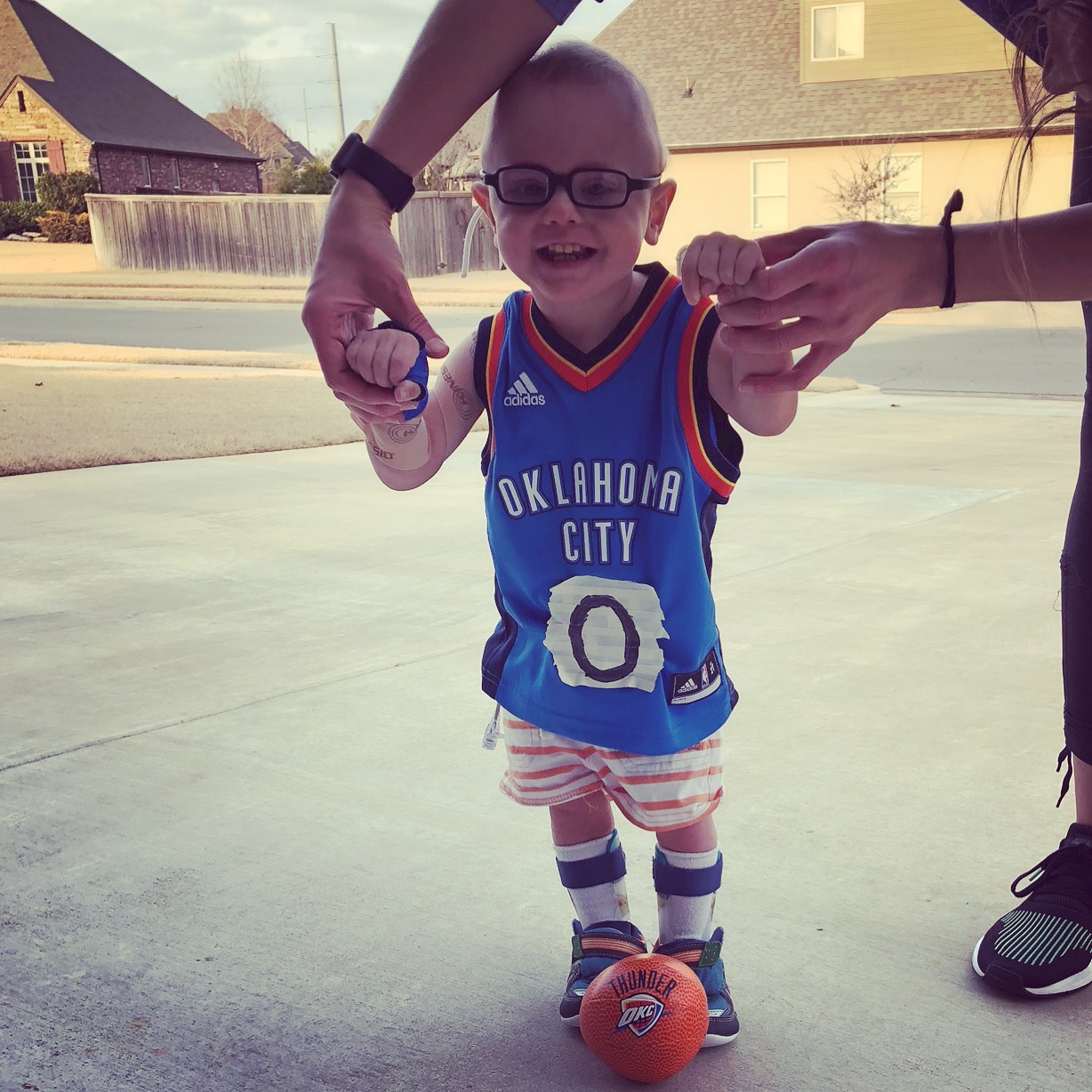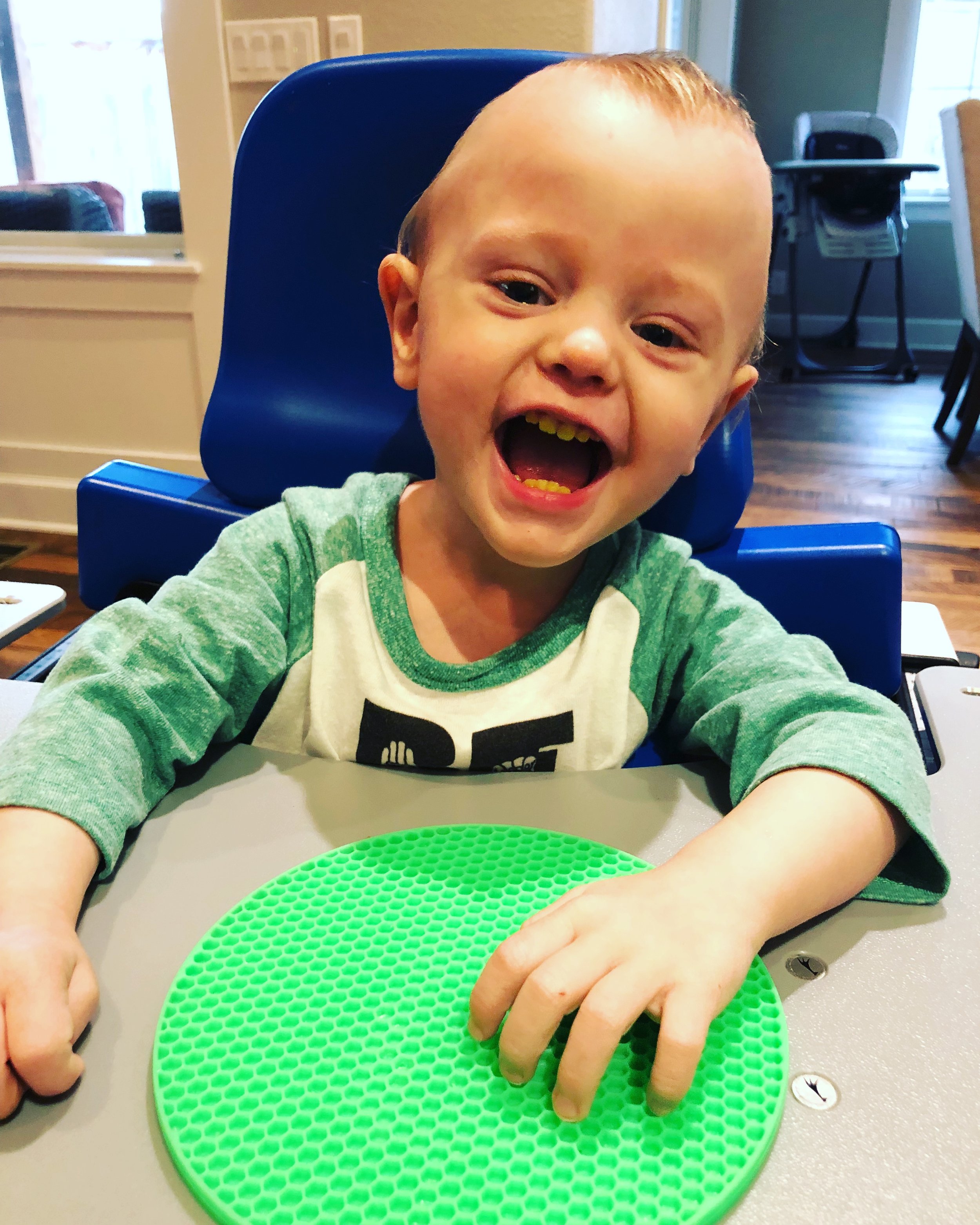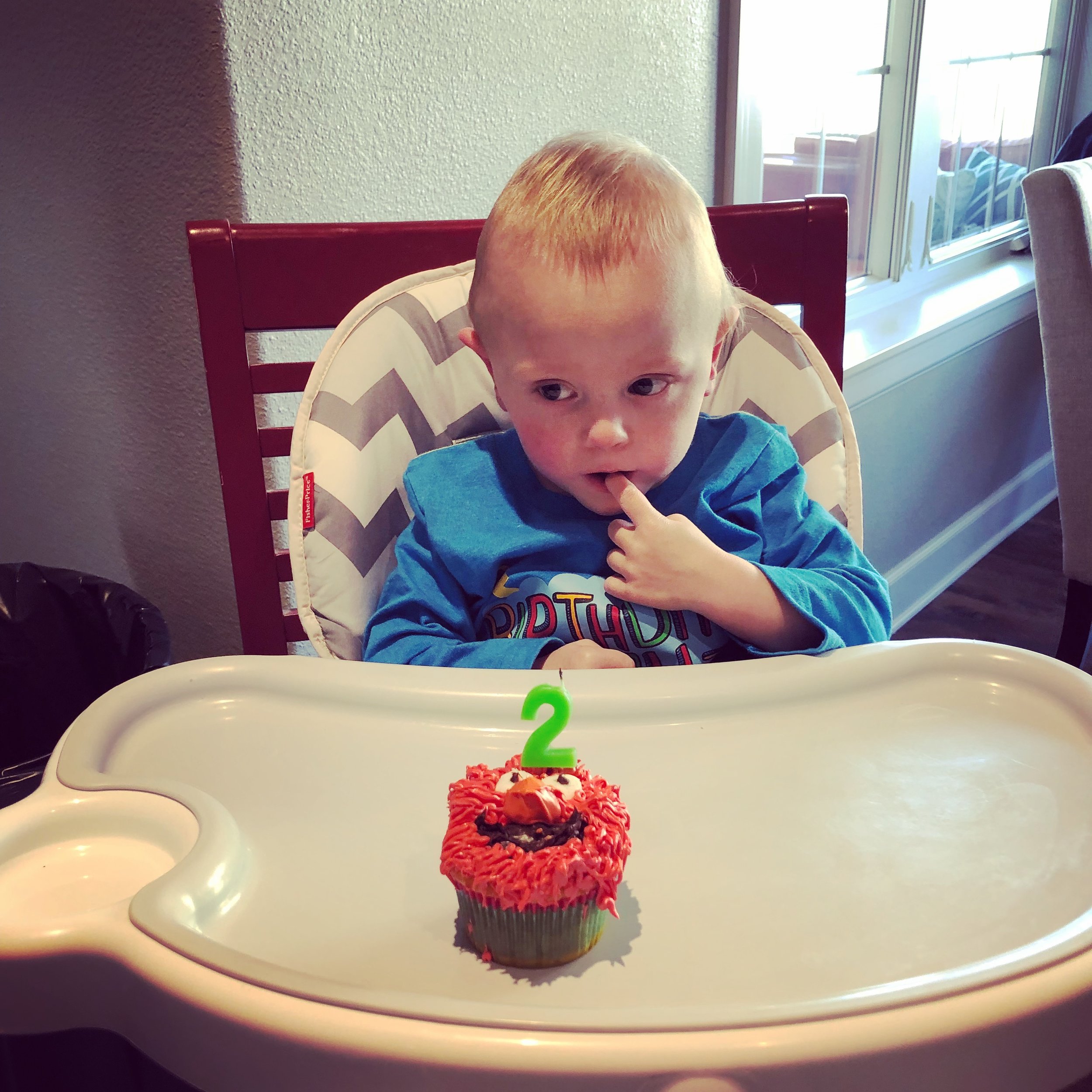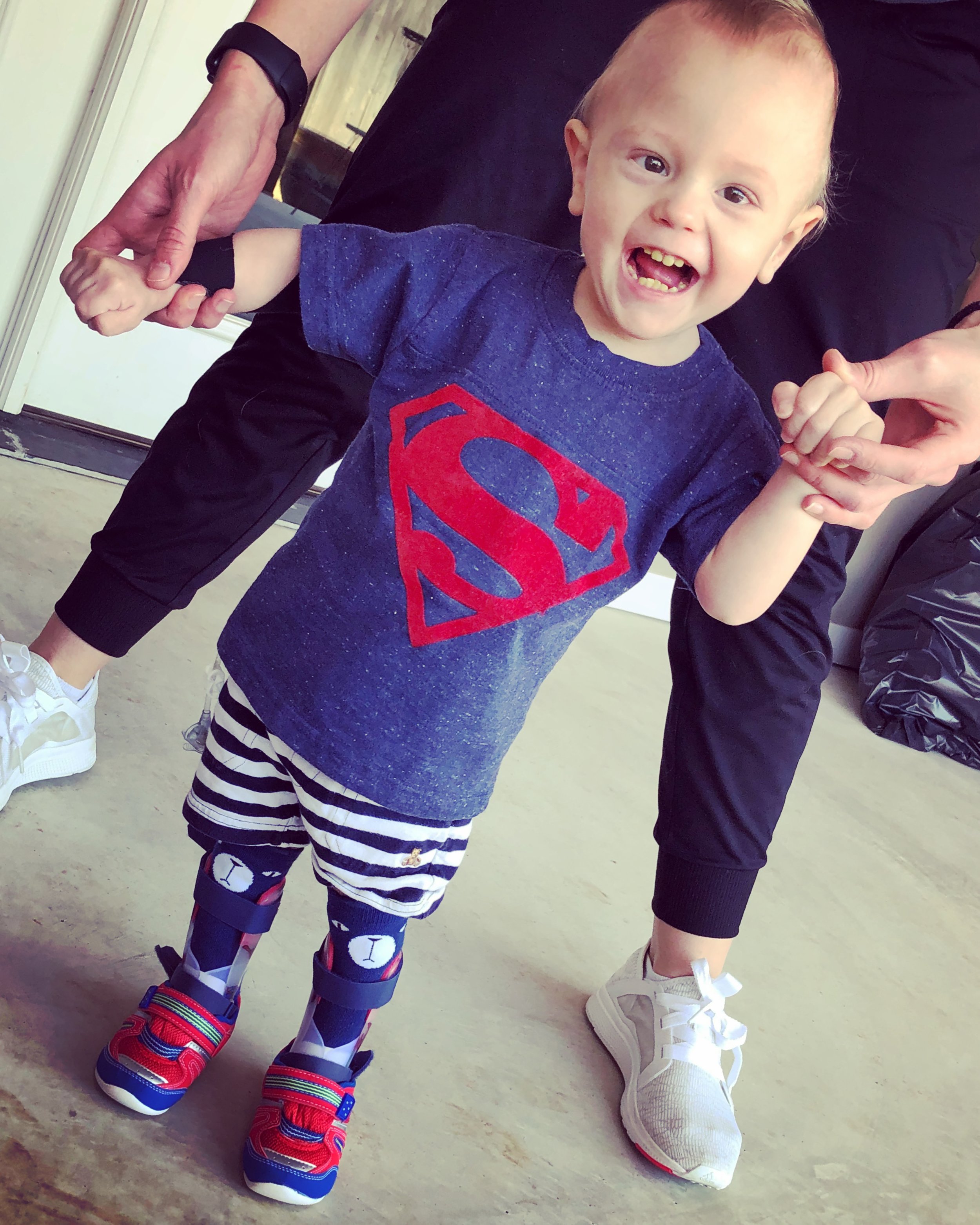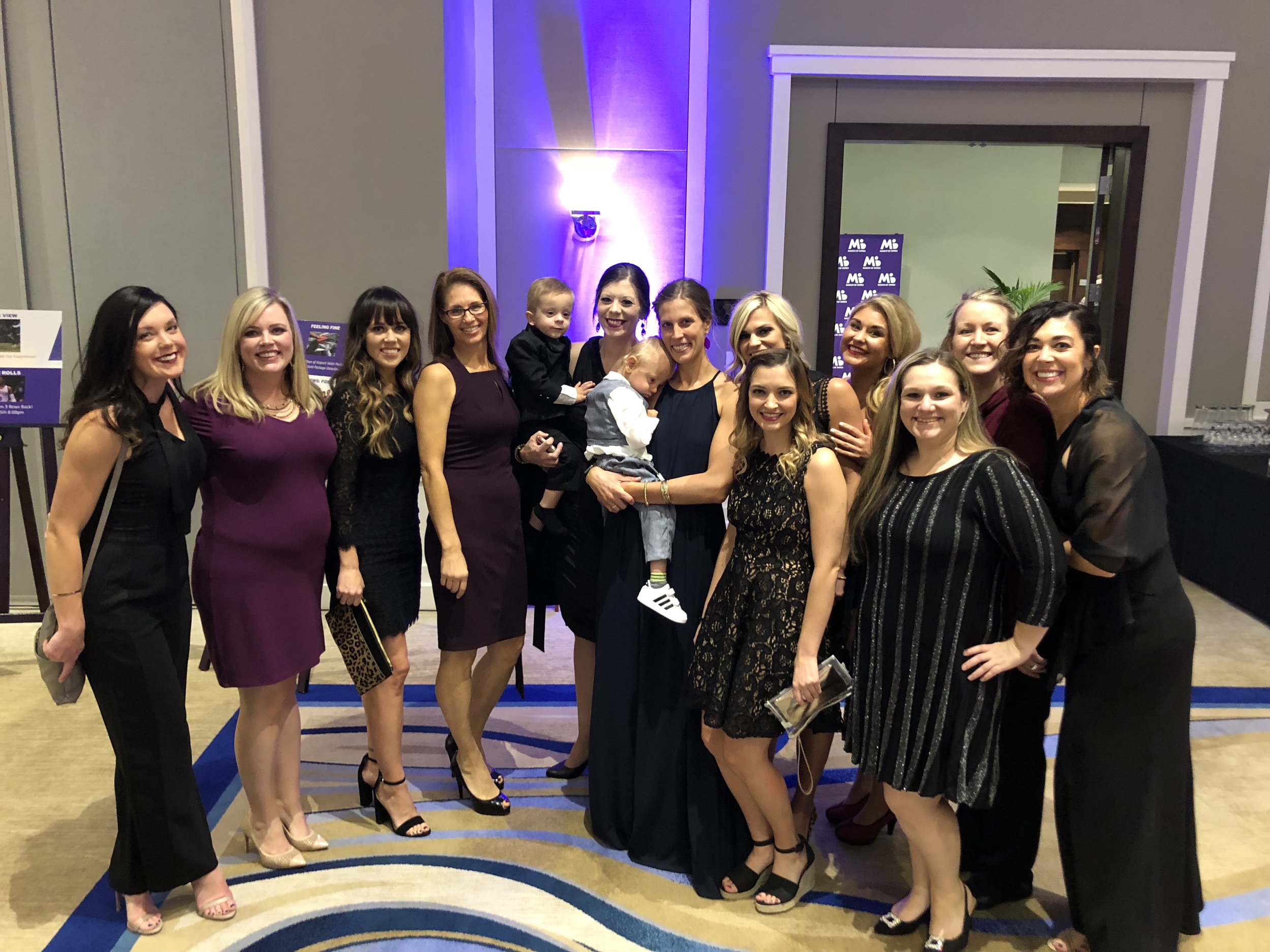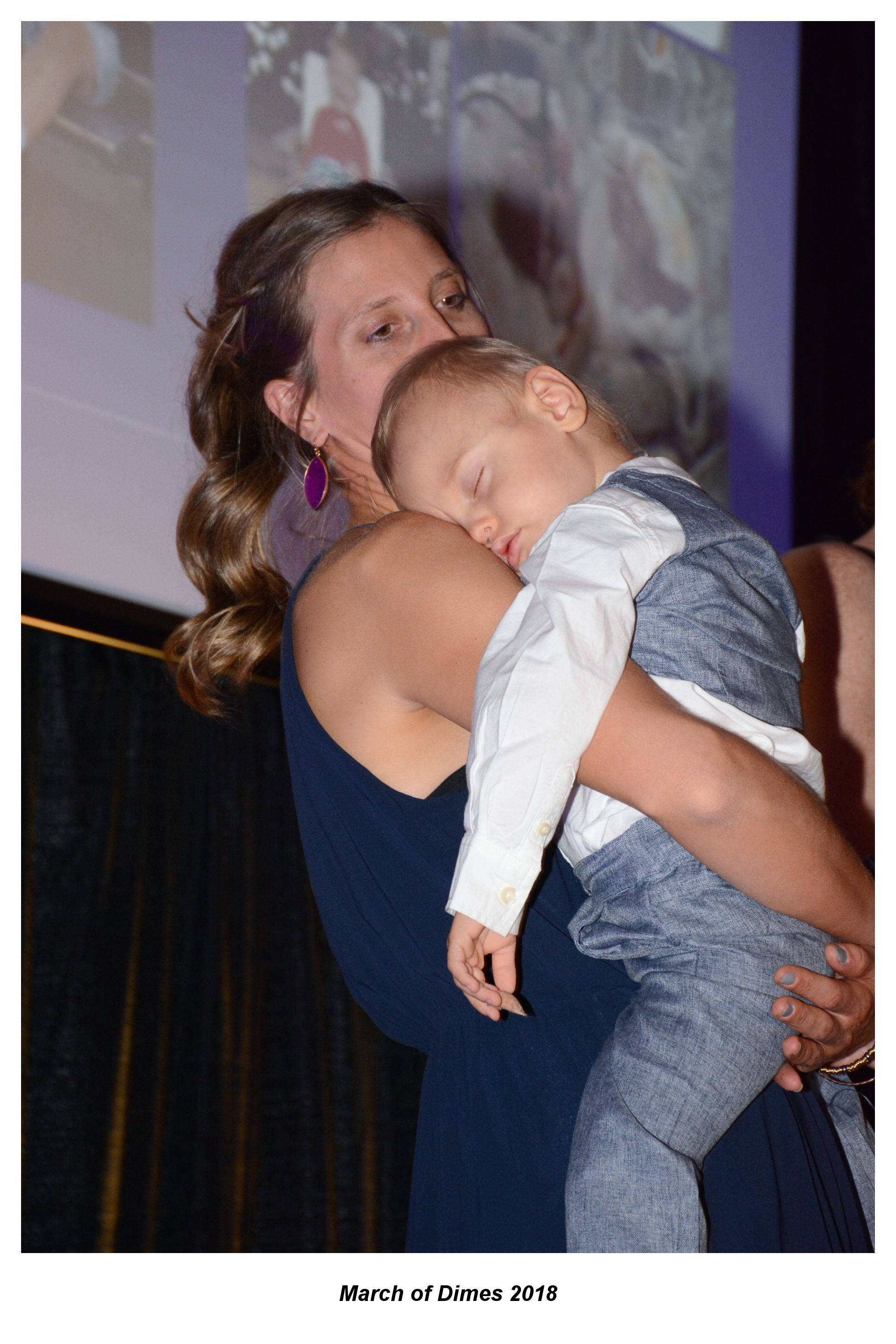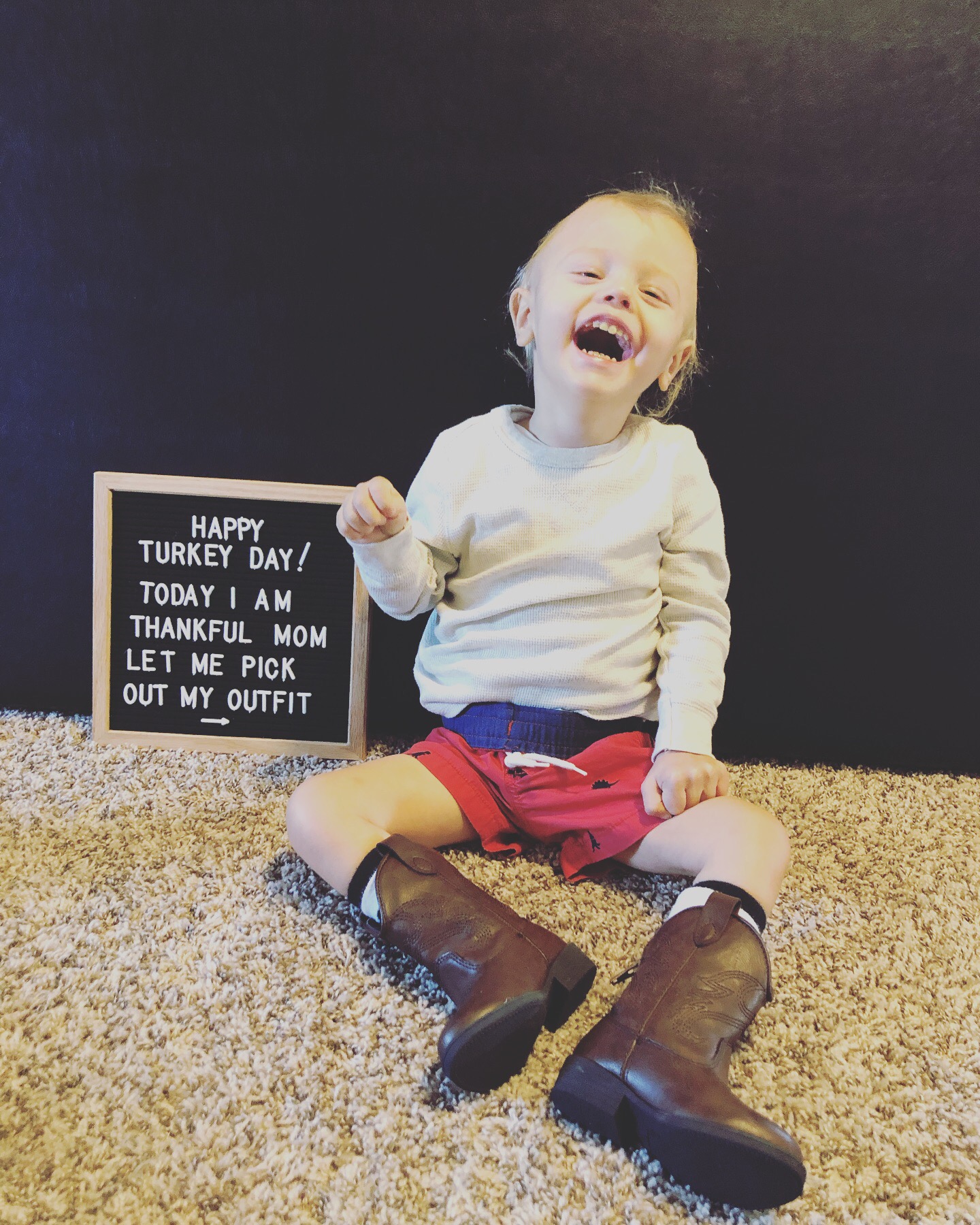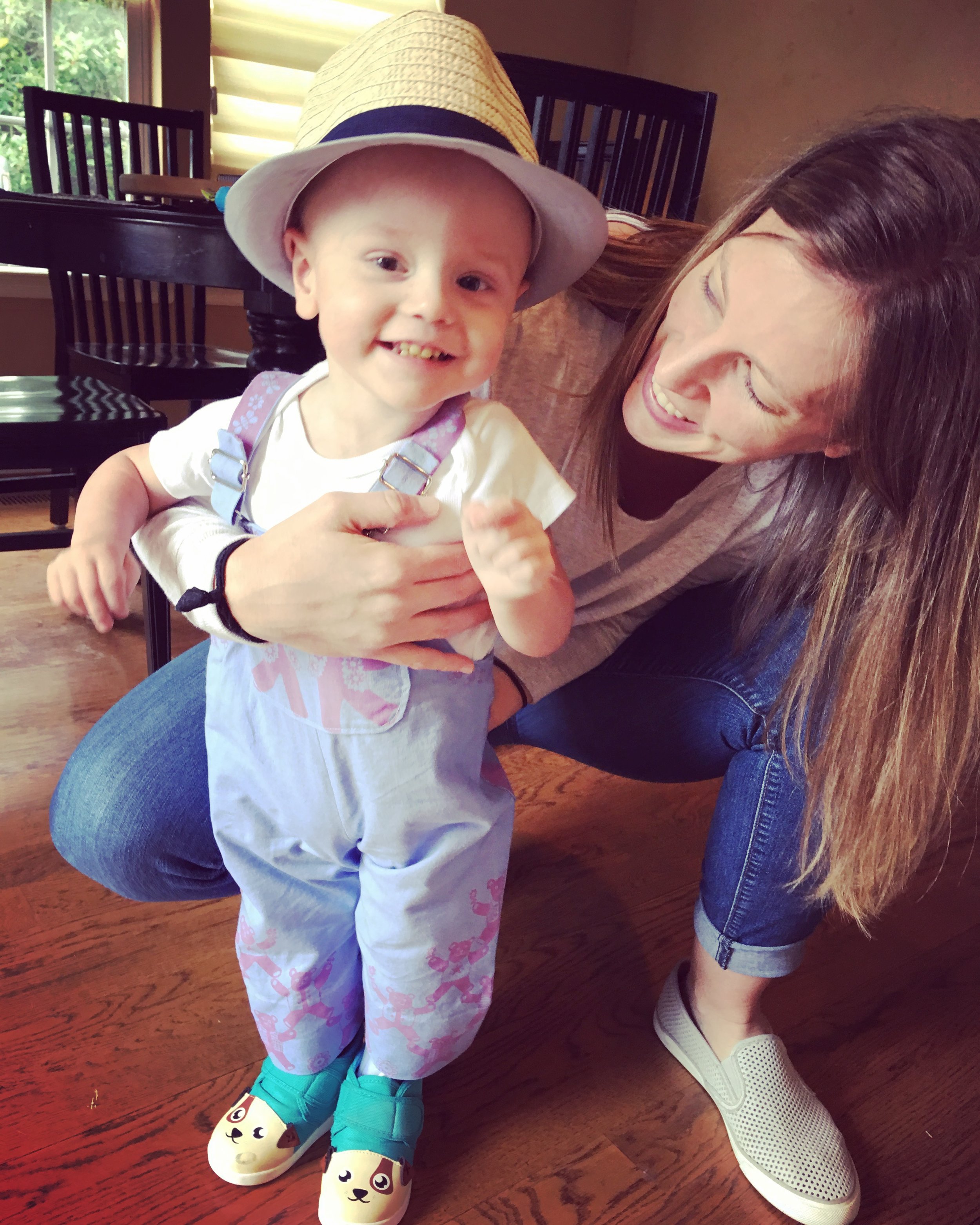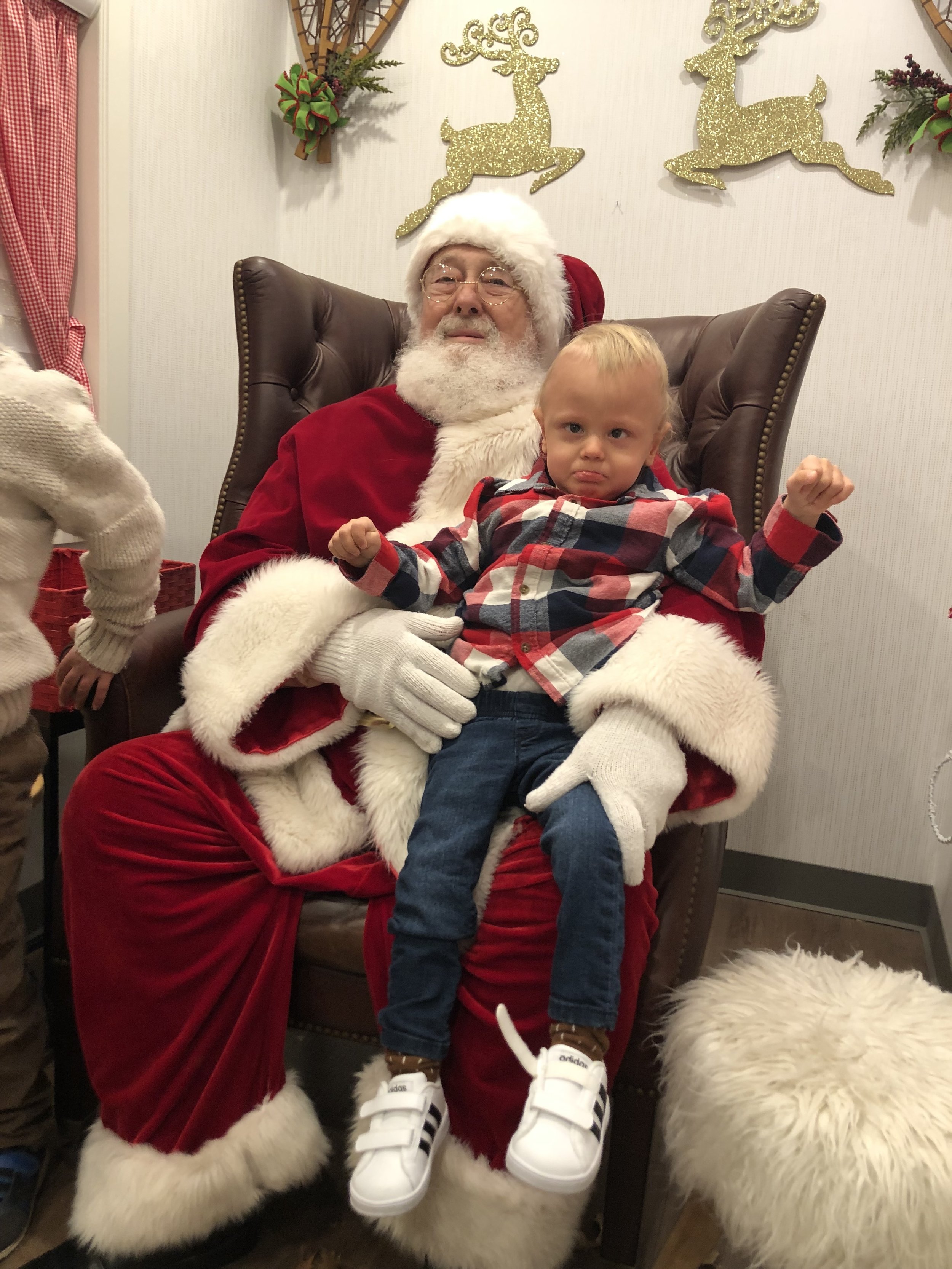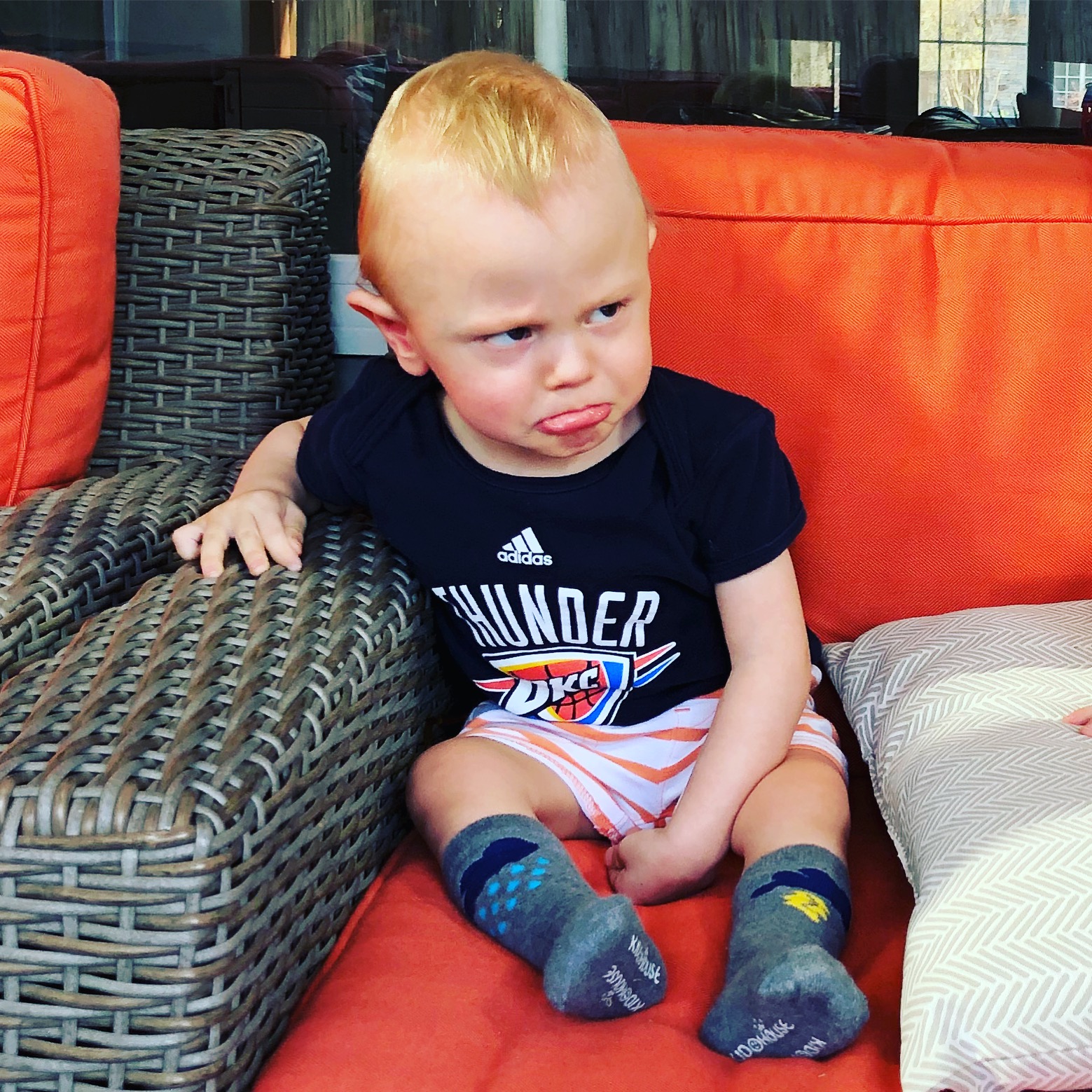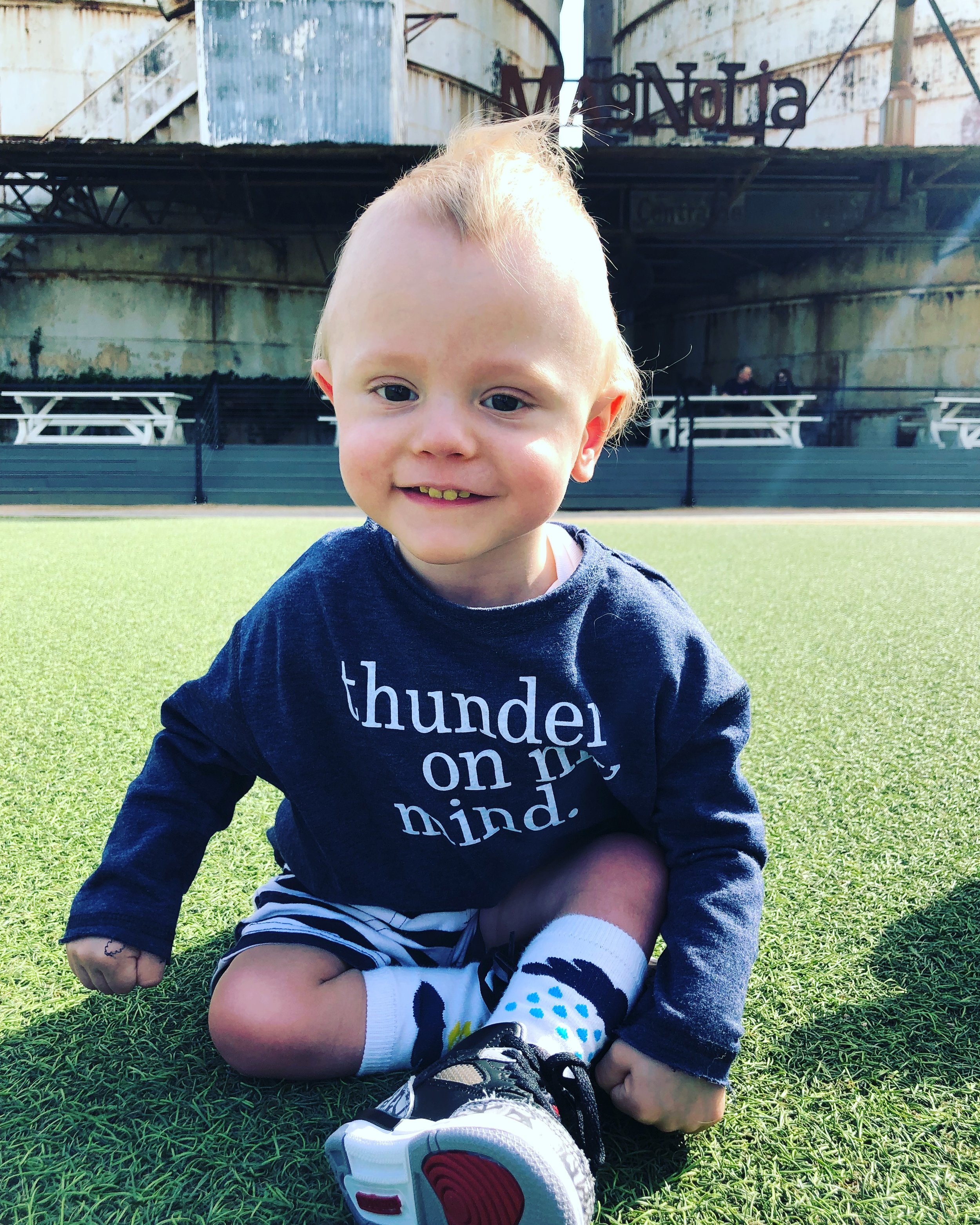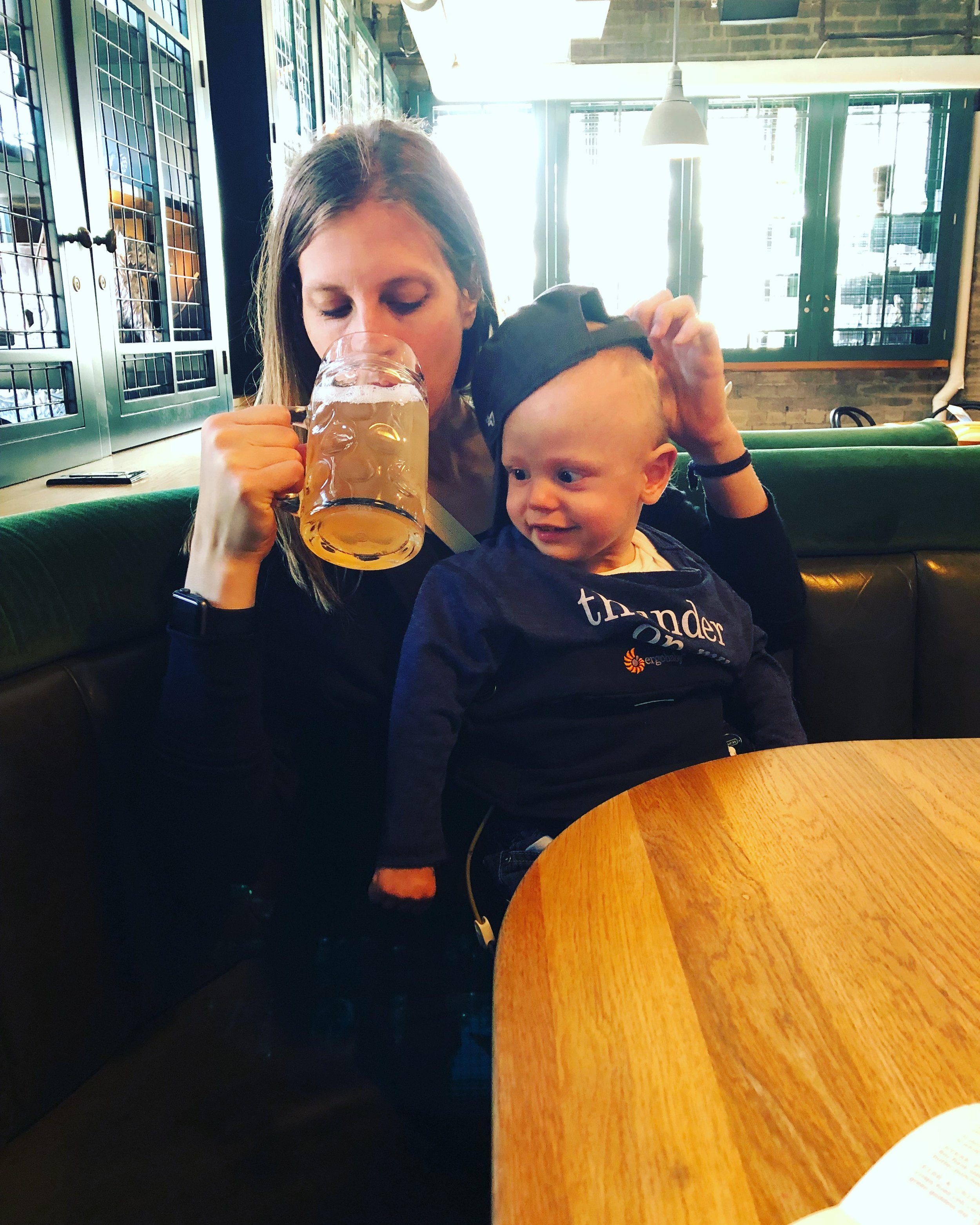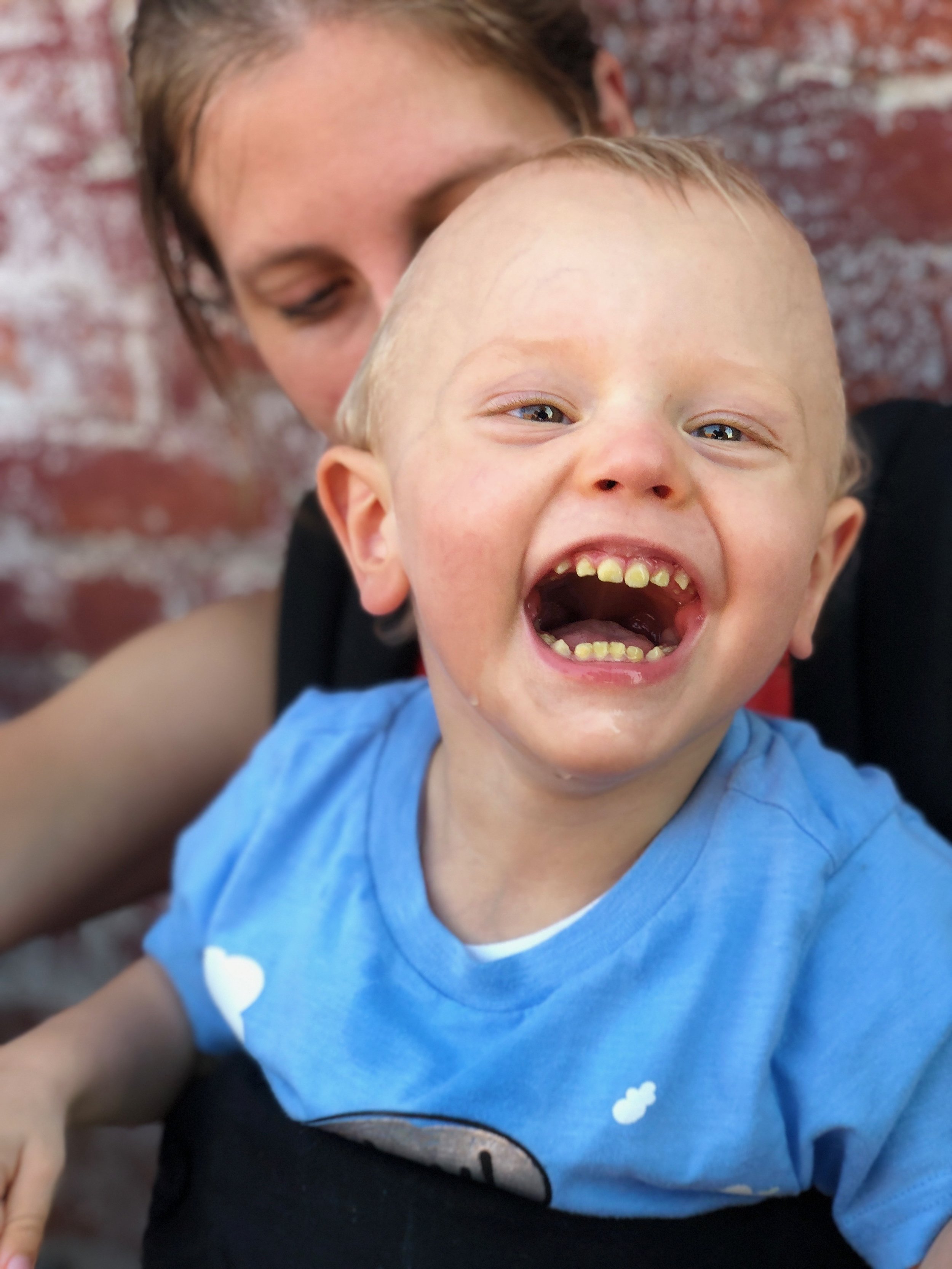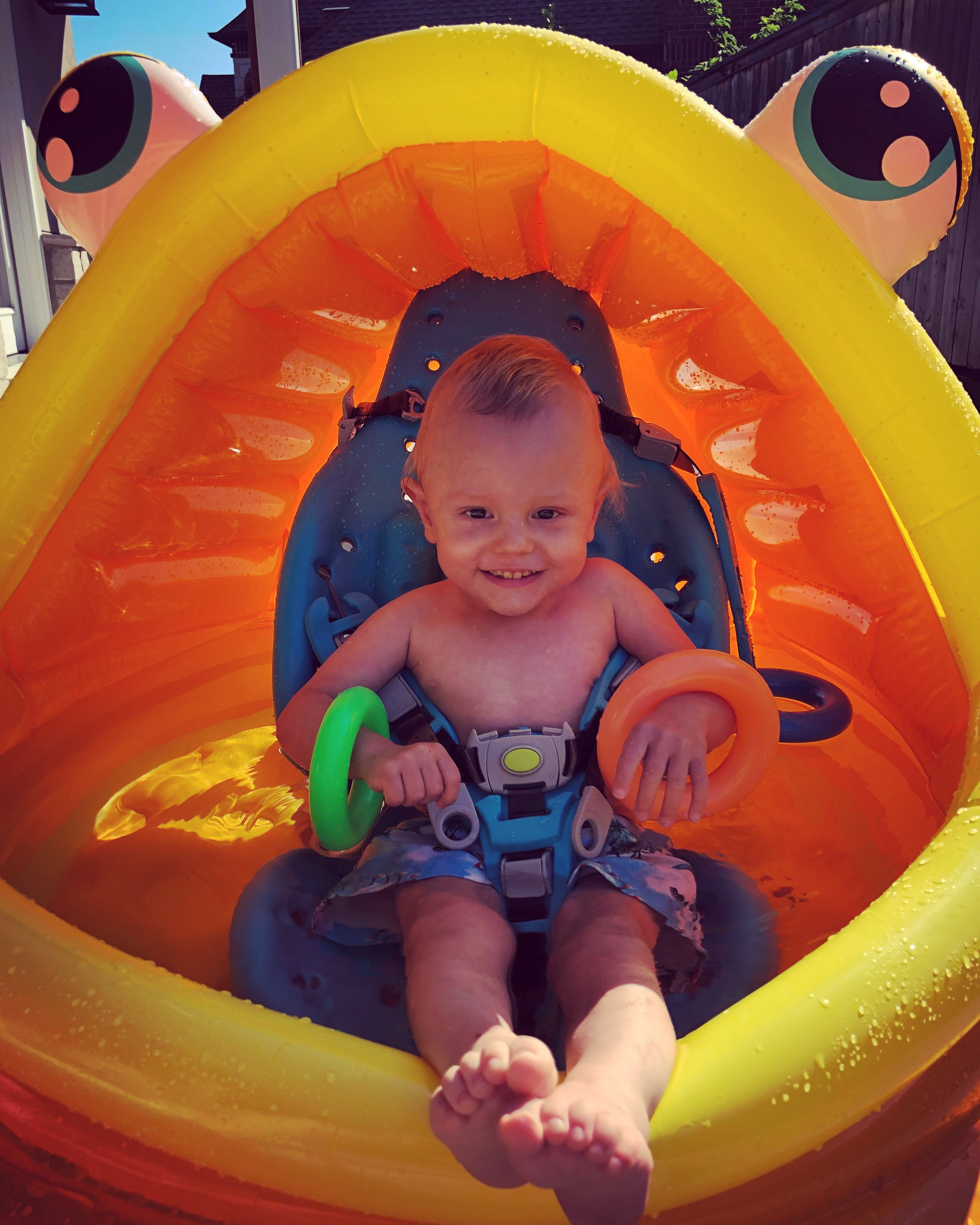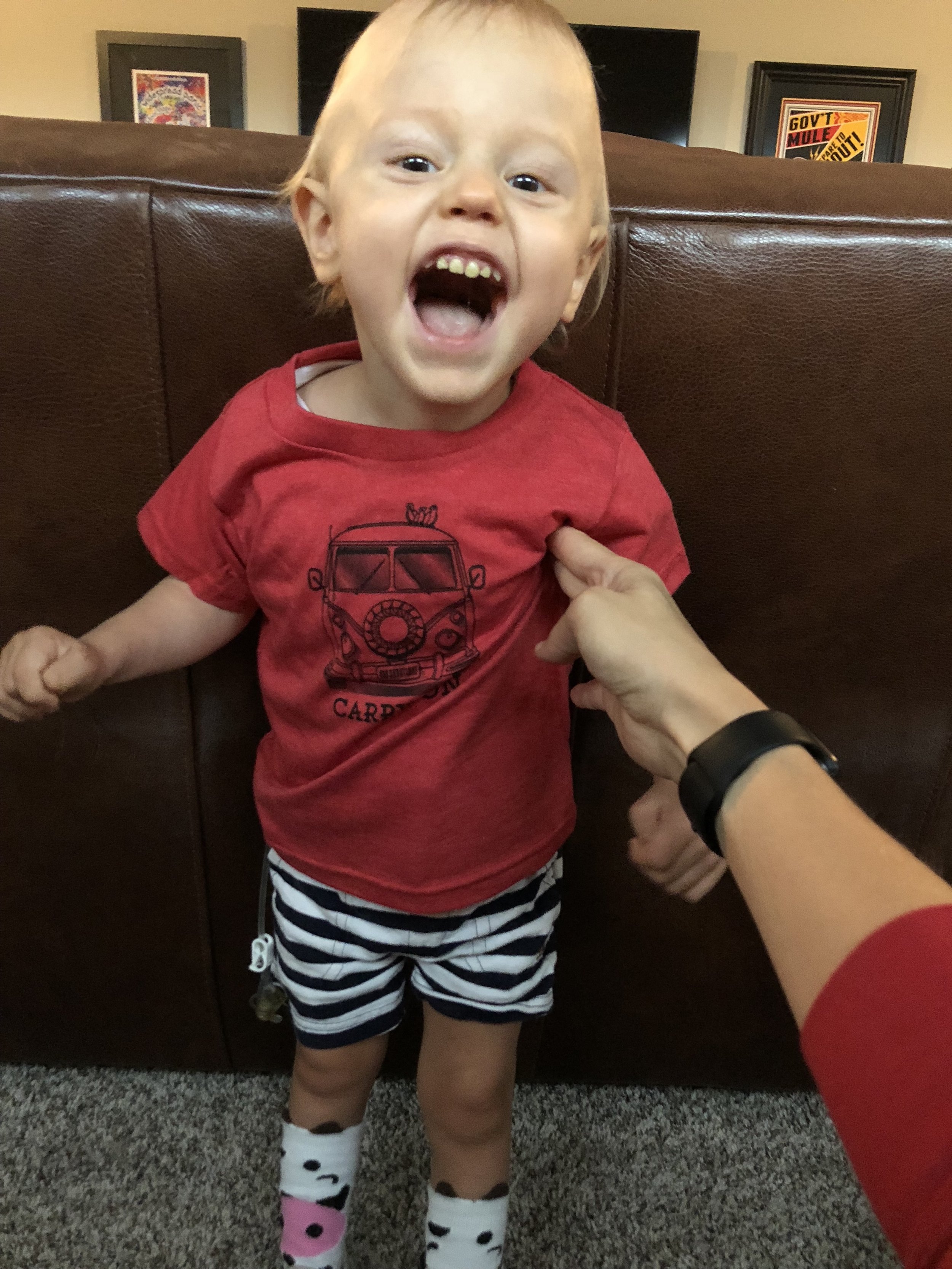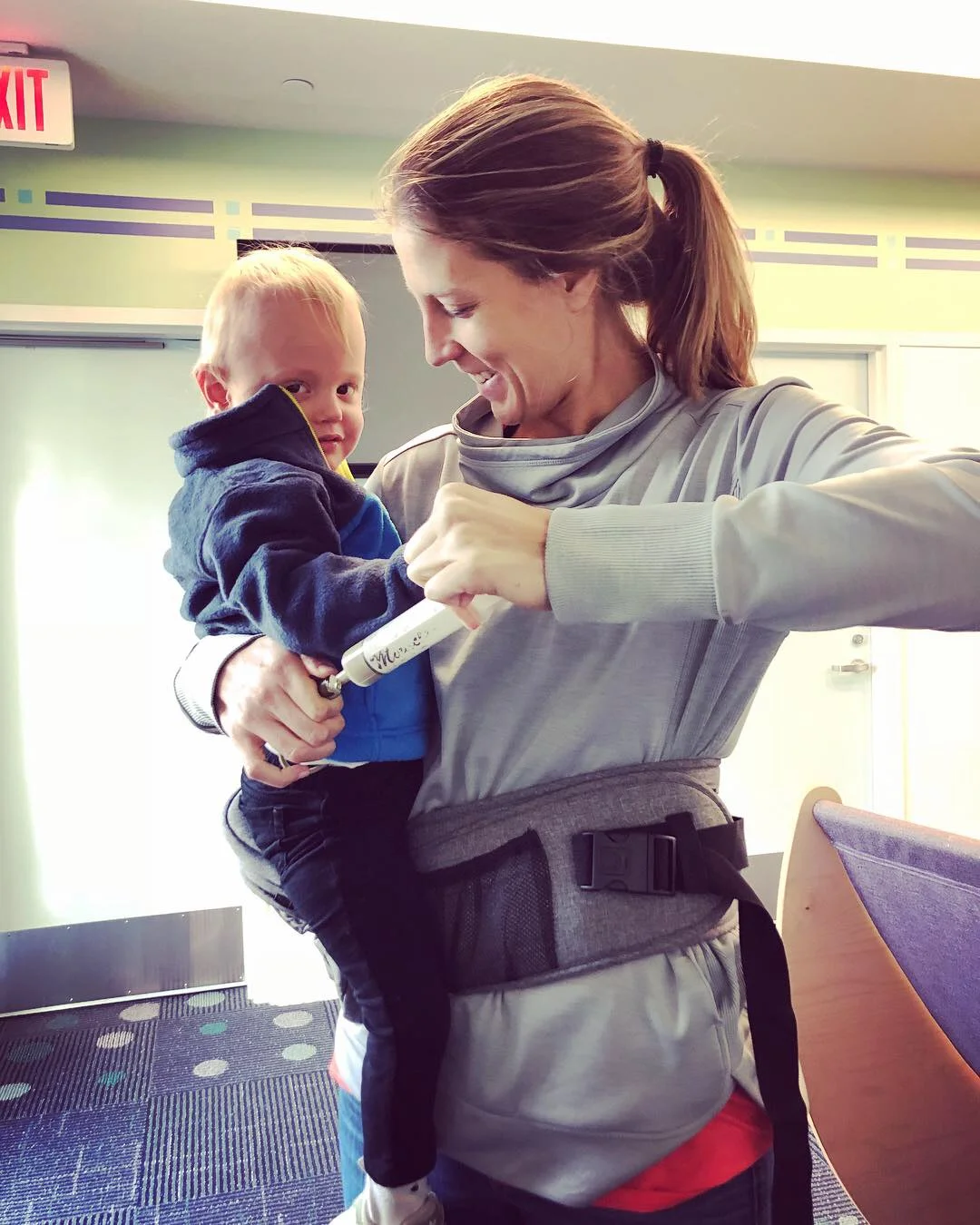Intensive therapy has become a very sought after intervention for kids with developmental delays - and for good reason. Intensive therapy has been a game changer for my son, Conner, not only physically, but also cognitively. During and after intensives, I see huge leaps with Conner’s vocabulary and all things cognitive. It might be my favorite benefit of intensive therapy.
If you’ve been in the intensive therapy world for a bit, you know about NAPA Center. This place is AMAZING, but keeping up with the growing demand isn’t easy and not something that happens overnight. Even with opening new clinics, adding more therapists, etc. it still isn’t enough to meet the demand that kids and families need right now. This is the reason I decided to start collecting information for other clinics that offer intensive therapy. Below, in no particular order (*accept the top 4 which we have personally received treatment from and highly recommend) is a list of clinics or individual therapists that offer intensive therapy. If you go to a clinic that isn’t on this list or if you are a therapist that offers intensive therapy, please complete this form and I will add you to the list.
Smile Therapy for Kids*
Concord/Vaughan and ON Burlington
www.smiletherapyforkids.com
smiletherapyforkids@gmail.com
Instagram: SmileTherapyForKids
Services Offered: Physical Therapy, Occupational Therapy, Speech Therapy, Dynamic Movement Intervention (DMI) , Therasuit, Universal Exercise Unit , Whole Body Vibration , Neuromuscular Electrical Stimulation (NMES)
Intensive length/frequency: Customizable
Accept Insurance: No.
Get Your Baby Moving*
Valley Stream, NY/ able to travel
www.getyourbabymoving.com
getyourbabymoving@gmail.com
Instagram: GetYourBabyMoving
Services Offered: Dynamic Movement Intervention (DMI)
Intensive length/frequency: 2x per day/Customizable
Accept Insurance: No.
Tender Ones Therapy*
Gainesville/Dacula, Georgia
www.tenderonestherapy.com
Melanie@tenderones.com
Instagram: @tenderones
Services Offered: Physical Therapy, Occupational Therapy, Speech Therapy, Feeding Therapy, Therasuit, Universal Exercise Unit , Trexo Robotic, Neuromuscular Electrical Stimulation (NMES),
Intensive length/frequency: 3 hours of PT with the option to add OT or Speech. Length is customizable.
Accept Insurance:Yes.
On the fly- DMI*
NYC / able to travel
Jennellonthefly@gmail.com
Instagram: onthefly_dmi
Services Offered: Occupational Therapy, Dynamic Movement Intervention (DMI) , Neuromuscular Electrical Stimulation (NMES)
Intensive length/frequency: Minimum of 2 hrs per day, 5 days per week for 1-3 weeks 1-3 weeks (customizable)
Accept Insurance: No.
UNITED STATES
ALASKA
Mat-Su Pediatric Physical Therapy
Wasilla, Alaska
http://Www.matsupedspt.com
Matsupedspt@gmail.com 775-293-8024
Instagram: @matsupedspt
Services Offered: Physical Therapy,Occupational Therapy,Dynamic Movement Intervention (DMI) ,Whole Body Vibration ,Neuromuscular Electrical Stimulation (NMES), Pilates reformer therapeutic exercises for neurological rehabilitation is available for older children.
We are here to work with families in length of intensives and customize a program to enhance any therapy program. Contract speech therapy may be accessible on advanced notice.
Intensive length/frequency: 2-3 hours a day, 5 days a week, for 1 to 3 week very family dependent, customizable.
Accept Insurance: Yes.
ARIZONA
Breakthrough Therapy, PLLC
Rebecca Stoddard
West Valley in AZ
http://Www.breakthrough-therapy.com
becca@breakthrough-therapy.com
Instagram: @breakthrough_therapy_dmi
Services Offered: Occupational Therapy,Dynamic Movement Intervention (DMI) , Total motion release/TMR
Intensive length/frequency: 1-3 weeks, 1-2 hours per day
Accept Insurance: No, but will provide a super bill.
Gye Di
Phoenix (chandler) Arizona
www.gyedi.org
Erica Tardone & Melanie Thompson 315-391-8817 (E) 602-793-9676 (M)
Instagram: gyediaz
Services Offered: Occupational Therapy, Therasuit, CME I certified, assistive technology evaluations, alternative access powered mobility training and evaluation.
Intensive length/frequency: 3 hrs/day, 5 days/week 3&4 weeks, but can be customized
Accept Insurance: No, but will provide a super bill.
Adaptive Movements Pediatric Therapy
Phoenix. AZ
http://AdaptiveMovements.com
Adaptivemoventspt@gmail.com
Instagram: @AdaptiveMovements
Services Offered: Physical Therapy, Occupational Therapy, Therasuit and, Universal Exercise Unit
Intensive length/frequency: 3 hours (minimum)/day, 5 days/week for 3 weeks
Accept Insurance: No, but will provide a super bill.
CALIFORNIA
LEAP Pediatric Physixal Therapy
Bakersfield, CA
www.leappedtherapy.com
office@leaptherapy.com or (661) 489-5600
Instagram: leap_physical_therapy
Services Offered: Physical Therapy, Speech Therapy, CME
Intensive length/frequency: 1-3 hours per day 3 weeks
Accept Insurance: Yes.
Starfish Therapies
Burlingame, CA
http://starfishtherapies.com
Instagram: @starfishtherapies
650-638-9142 or admin@starfishtherapies.com
Services offered: Physical Therapy, Universal Exercise Unit , Neuromuscular Electrical Stimulation (NMES), Thera-togs, FES
Intensive length/frequency: We customize each intensive to the specific needs of the child and family.
Accept Insurance: Yes.
CALI CIMT
Frances Pulido
Orange County, CA
http://www.calicimt.com
949-288-4242
hello@calicimt.com
Instagram: @calicimt
Services Offered: Occupational Therapy,Constraint Induced Movement Therapy (CIMT) ,Neuromuscular Electrical Stimulation (NMES), Bimanual Intensive Therapy, Baby-CIMT
Intensive length/frequency: Coordinated with family depending on their location - 1-2 times per day for a minimum of 5 days and max of 15 days. Customizable.
Accept Insurance: Yes.
Wetherbee Pediatric Therapy
Kelly Wetherbee
Glendale, CA
http://Wetherbepediatrictherapy.com
Kellywetherbee@yahoo.com
Instagram: @wetherbeepediatrictherapy
Services Offered: Occupational Therapy, Feeding Therapy, Dynamic Movement Intervention (DMI) , Therasuit, Whole Body Vibration , Neuromuscular Electrical Stimulation (NMES)
Intensive length/frequency: 2-3 hours a day, 5 days a week for 1-3 weeks - customizable.
Accept Insurance: No, but will provide a super bill.
CONNECTICUT
Big Leaps
Stamford, CT
http://www.bigleapsct.com
203-504-2408
danielle@Bigleapsct.com
Instagram: @bigleapsct
Services Offered: Physical Therapy, Occupational Therapy, Speech Therapy, Therasuit , Universal Exercise Unit.
Intensive length/frequency: 3 hours/day, 5 days/week, for 3 weeks. We are based in downtown Stamford, CT - easily accessible to public transportation.
Accept Insurance: No, but will provide a super bill.
Crescent Moon Care
Canton CT
crescentmooncare@gmail.com
http://Www.crescentmooncare.com
203-788-0009
Instagram: @crescentmooncare
Services Offered: Physical Therapy, Universal Exercise Unit , Whole Body Vibration , Neuromuscular Electrical Stimulation (NMES)
Intensive length/frequency: Customizable. - Our intensives are set individually per families needs and dependent on their insurance.
Accept Insurance: Yes.
FLORIDA
Neurowerks
Bonita Springs, Florida
www.neurowerks.org
(810) 877-4964
Instagram: Neurowerks
Services Offered: Physical Therapy, Therasuit, Universal Exercise Unit , Whole Body Vibration , Neuromuscular Electrical Stimulation (NMES), hope to add OT and speech intensive program soon.
Intensive length/frequency: 3 hours a day, 5 days per weeks. Each patient has their own customized program. Most are 3 or 4 weeks.
Accept Insurance: No.
Wolfsons rehab
Jacksonville, Florida
www.wolfsonchildrens.com/services/rehabilitation/intensive-therapy-center
Services Offered: Physical Therapy, Occupational Therapy, Dynamic Movement Intervention (DMI) , Therasuit, Universal Exercise Unit , Trexo Robotic, Constraint Induced Movement Therapy (CIMT) , Whole Body Vibration, Neuromuscular Electrical Stimulation (NMES)
Intensive length/frequency: 2 hours a day 3 weeks
Accept Insurance: Yes.
Ability Plus
Melbourne, FL
www.abilityplustherapy.com/
office@abilityplustherapy.com
Instagram: https://www.instagram.com/abilityplustherapy/
Services Offered: Physical Therapy, Occupational Therapy, Speech Therapy, Feeding Therapy, Therasuit, Neurosuit , Universal Exercise Unit
Intensive length/frequency: 3-4 hr/day, 5 days/week, 3 weeks 3 weeks
Accept Insurance: Yes.
Sarasota Pediatric Physical Therapy
Sarasota, Florida or in child’s home
http://KidsPTByTheSea.com
Instagram: KidsPTByTheSea
678-978-8316 or mollygatorpt@gmail.com
Services offered: Physical Therapy
I specialize in providing intensives in a home-based setting, whether that be at your home or in your vacation rental. I encourage families to take advantage of the beautiful Sarasota area with it’s pristine beaches, combining an intensive with a relaxing stay in the area. I encourage clients and their families to spend part of the day in intensive therapy and part of the day soaking up some sunshine and relaxing. I have been practicing for 25+ years and am well-versed with handling, total motion release technique, sensory integration,Dynamic Movement Intervention (DMI) and have worked with children following SDR.
Intensive length/frequency: Customizable 2-4 hours/ day, 3-4 days a week for 2-4 weeks
Accept Insurance: No, but will provide a super bill.
Lampert's Therapy
Largo, FL
727-541-5304
http://Lampertstherapy.com/
Instagram: @lampertstherapy
Services Offered: Physical Therapy, Occupational Therapy, Speech Therapy, Therasuit
Intensive length/frequency: 2-3hours/day, 5 days/week for 3 weeks, but also customizable
Accept Insurance: No, but will provide a super bill.
The Sensory DPT
Clay County, FL (Travel & soon clinic)
http://www.thesensorydpt.com
Instagram: @the.sensory.dpt
904-458-7655 / intensives@thesensorydpt.com
Services offered: Physical Therapy,Dynamic Movement Intervention (DMI) ,Whole Body Vibration ,Neuromuscular Electrical Stimulation (NMES), I am a provider/owner- PT providing in-home intensives and soon opening a clinic space in Middleburg FL (to service North Florida). I am DMI certified, TASES certified, reflex integration, sensory integration, Theratogs, WBV & recently working on Spinal Stimulation.
Intensive length/frequency: Up to 1.5 hr day (currently- will expand when clinic is open), 1-3 weeks
Accept Insurance: No, but will provide a super bill.
Little Leaps PT
Bradenton, FL
http://www.littleleapspt.com
Instagram: @Little.Leaps.PT
941-212-0294
mail.littleleapspt@gmail.com
Services offered: Physical Therapy,Dynamic Movement Intervention (DMI)
Little Leaps PT provides in home DMI focused intensive therapy from Fort Myers to Lakeland and everywhere in between for kiddos of all ages and abilities. Although we do not take insurance, Little Leaps is a direct provider for the FES scholarship.
Intensive length/frequency: 90 minutes a day, 5 days a week, 1, 2, or 3 weeks- customizable!
Accept Insurance: No, but will provide a super bill.
Tiny Intensives
Tampa, Florida
http://www.tinyintensives.com
Instagram: @tiny.intensives
(813)364-2307
nadia@tinyintensives.com
Services offered: Physical Therapy, Dynamic Movement Intervention (DMI), Pediatric Physical Therapist, Level C DMI certified, offering in-home intensive therapy.
Intensive length/frequency: 1.5-2 hrs a day, 5 days a week, 1-3 weeks
Accept Insurance: No, but will provide a super bill.
Pediatric Adventure Therapy
Orlando, Florida. USA. Travel to other states and countries.
https://www.facebook.com/pediatricadventuretherapy?mibextid=LQQJ4d
Instagram: @Pediatricadventuretherapy
pediatricadventuretherapy@gmail.com
Services offered: Physical Therapy,Dynamic Movement Intervention (DMI) ,Therasuit, Universal Exercise Unit ,Constraint Induced Movement Therapy (CIMT) ,Whole Body Vibration ,Neuromuscular Electrical Stimulation (NMES), Dynamic casting for foot alignment, Strength training
Intensive length/frequency: 2-3 hours a day x 3- 5 days a week. 1,2,3 weeks. Customizable.
Accept Insurance: No, but will provide a super bill.
Reimagine OT LLC
Largo, Florida - willing to travel.
http://reimagineot.com
Instagram: @Reimagineot
Info@reimagineot.com
Services offered: Occupational Therapy,Dynamic Movement Intervention (DMI) ,Constraint Induced Movement Therapy (CIMT) ,Whole Body Vibration ,Neuromuscular Electrical Stimulation (NMES),Manual therapy, cranial sacral, and custom splints, garments, and clothing made onsite if needed! Catered to your child. I can travel to you! Private clinic that allows siblings and parents to remain onsite without stress. 1-mile from the beach, help with accommodations!
Intensive length/frequency: 2-4 hours per day, 5 days a week, customizable
Accept Insurance: No, but will provide a super bill.
SuperNova Pediatric Therapy
Maitland, FL
http://Www.Supernovapediatrictherapy.com
Instagram: @Supernovapedstherapy
hello@supernovapediatrictherapy.com
Services offered: Physical Therapy, Dynamic Movement Intervention (DMI) , Neuromuscular Electrical Stimulation (NMES), Total Motion Release Tots
Intensive length/frequency: 2 hours a day, customizable
Accept Insurance: No, but will provide a super bill.
Blossom & Grow Pediatric Therapy
Jacksonville, FL
Instagram: @blossomandgrowpediatrictherapy
blossomandgrowot@gmail.com
Services offered: Occupational Therapy, Dynamic Movement Intervention (DMI) , Neuromuscular Electrical Stimulation (NMES), Total Motion Release (TMR), Constraint Induced Movement Therapy (CIMT), Whole Body Vibration (WBV)
Intensive length/frequency: 5 days per week for 1-3 weeks, customizable
Accept Insurance: No.
GEORGIA
Tender Ones Therapy*
Gainesville/Dacula, Georgia
www.tenderonestherapy.com
Melanie@tenderones.com
Instagram: @tenderones
Services Offered: Physical Therapy, Occupational Therapy, Speech Therapy, Feeding Therapy, Therasuit, Universal Exercise Unit , Trexo Robotic, Neuromuscular Electrical Stimulation (NMES),
Intensive length/frequency: 3 hours of PT with the option to add OT or Speech. Length is customizable.
Accept Insurance:Yes.
All About Kids Therapy Services
Lawrenceville, GA and Norcross, GA
http://www.allaboutkidstherapyservices.com
Instagram: allaboutkidstherapyservices
info@aakts.com (678) 377-2833
Services Offered: Physical Therapy, Occupational Therapy, Speech Therapy, Feeding Therapy, Therasuit, Universal Exercise Unit , Constraint Induced Movement Therapy (CIMT) , Neuromuscular Electrical Stimulation (NMES), serial casting, Functional Electrical Stimulation (FES), Thera-tog system, Early Intervention (BCW).
Intensive length/frequency: Traditional: 3 hours of PT + 1 hour of OT, 3 days a week for 3 weeks. Modified Intensive: 2 hours of PT, 3 days a week for 6-8 weeks.
Accept Insurance: Yes.
Ability Pediatric Therapy
Clermont, GA
http://Abilitypedtherapy.com
130ability@gmail.com
Instagram: @abilitypediatrictherapy
Services Offered: Physical Therapy, Occupational Therapy, Speech Therapy, Therasuit , Universal Exercise Unit. Also provide Animal Assisted Therapy through certified canine, who is specially trained to aid in therapy sessions.
Intensive length/frequency: Based on needs and goals, typically 3 hours/day, 5 days/week, for 3 weeks with interdisciplinary (PT/OT) team. Speech available as add on.
Accept Insurance: Yes.
Kids in Motion
Villa Rica, GA
https://www.kidsinmotiontherapy.com/
Grace@kidsinmotiontherapy.com
Instagram: @kidsinmotion.ga
Services Offered: Physical Therapy, Occupational Therapy, Speech Therapy, Neurosuit , Universal Exercise Unit , Whole Body Vibration , Neuromuscular Electrical Stimulation (NMES), Aquatics and modified intensive 3 hours a day for 3 days a week.
Intensive length/frequency: 3-4 hours/day, 5 days/week for 4 weeks
Accept Insurance: Yes.
Kidz Therapy Networks
Suwanee, Georgia
http://Kidztherapynetworks.com
770-205-5551 or kailee@kidztherapynetworks.com
Instagram: @Kidztherapynetworks
Services Offered: Physical Therapy, Occupational Therapy, Speech Therapy, Feeding Therapy, Dynamic Movement Intervention (DMI), Universal Exercise Unit, Constraint Induced Movement Therapy (CIMT), Whole Body Vibration, Neuromuscular Electrical Stimulation (NMES), Kinesiotaping, Functional Electrical Stimulation, and 2 aquatics sessions.
Intensive length/frequency: 1hour OT, 2 hours PT, 5 days a week for 2 weeks
Accept Insurance:Yes.
ILLINOIS
Ccs Pediatric Therapy & Family Wellness
Vernon Hills, Illinois
http://Ccstherapy4kids.com
Jana@ccstherapy4kids.com
Instagram: ccstherapy4kids
Services Offered: Physical Therapy, Occupational Therapy, Speech Therapy, Feeding Therapy, Whole Body Vibration , Other (include other therapies in the message blank below) MNRI, TMR, NDT, craniosacral, reflex integration, aac, myofascial release, pelvic floor dysfunction, kinesiotaping, interactive metronome,
Intensive length/frequency: Customizable
Accept Insurance: Yes
Hummingbird Pediatric Therapies
Nicole Fox
Woodridge, IL
https://www.hummingbirdpediatrictherapies.com
(630) 442-7662
nicolef@hummingbirdpediatrictherapies.com
Instagram: @hummingbirdpediatrictherapies And @nicolefoxdpt
Services Offered: Physical Therapy, Occupational Therapy, Speech Therapy, Feeding Therapy, Dynamic Movement Intervention (DMI) , Neuromuscular Electrical Stimulation (NMES), interactive metronome
Intensive length/frequency: Customizable 1-3 weeks, 2-4 hours, 4 days per week (M-Th)
Accept Insurance: Yes
INDIANA
KidtensivePT
Indianapolis, IN
http://www.kidtensivept.com
kidtensivept@gmail.com
Instagram: @kidtensivept
Services Offered: Physical Therapy, Dynamic Movement Intervention (DMI), Constraint Induced Movement Therapy (CIMT), Whole Body Vibration, Neuromuscular Electrical Stimulation (NMES)
Intensive length/frequency: Typically 1-2hrs/day, 5 days/week for 1-3 weeks. Customizable. Flexible depending on family’s needs & availability. We are a new company, created by two physical therapists who each have 10+ years experience in pediatrics (primarily early intervention but also acute, outpatient & school settings). We provide in-home intensives in Indianapolis and surrounding suburbs, also traveling to Airbnbs for those who are from out of town.
Accept Insurance: No, but will provide a super bill.
LOUISIANA
Innovative Suit Therapy and Fitness
Covington Louisiana
www.innovativesuittherapy.com/
985-792-7700 or innovativesuittherapy@gmail.com
Services Offered: Physical Therapy, Occupational Therapy, Speech Therapy, Feeding Therapy, Therasuit, Universal Exercise Unit
Intensive length/frequency: 3 hours a day, 5 days a week, for 3 weeks but also customizable Customizable
KENTUCKY
Kids Center for Pediatric Therapies
Louisville, KY
https://www.kidscenterky.org/services/intensives-program/
Renee Morris at rmorris@kidscenterky.org
Instagram: @Kidscenterky
Services Offered: Physical Therapy,Occupational Therapy,Dynamic Movement Intervention (DMI) ,Therasuit,Universal Exercise Unit ,Neuromuscular Electrical Stimulation (NMES), NDT certified therapists
Intensive length/frequency: 3 hours a day, 5 days a week for 3 weeks
Accept Insurance: Yes.
Capable Kids Therapy
Louisville, KY
http://Capablekidspt.com
katiekidspt@gmail.com
502-252-1801
Instagram: @capablekidstherapy
Services Offered: Physical Therapy, Dynamic Movement Intervention (DMI) , Whole Body Vibration
Intensive length/frequency: 2 hours, 5 days per week, 1-3 weeks.
Accept Insurance: No, but will provide a super bill.
MASSACHUSETTS
Ahoy Baby Physical Therapy and Wellness
Meagan O'Neill
Topsfield, MA
http://www.ahoybaby.com
978-312-2438
meagan@ahoybaby.com
Instagram: @Ahoybabypt
Services Offered: Physical Therapy,Dynamic Movement Intervention (DMI) ,Neuromuscular Electrical Stimulation (NMES), spinal stimulation,whole body vibration. Ahoy baby services children birth to 6. I have been a pediatric physical therapist for almost 19 years. I am Intro level B dmi trained. I incorporate a variety of treatment techniques in my practice. I have TOTS training and some training in TMR.
Intensive length/frequency: Coordinated with family dependent on insurance and/or private pay.
Accept Insurance: Yes.
L.E. MacDonald Physical Therapy
Greater Lowell, Ma
macdonaldphysicaltherapy.com
978-496-9008
jocelynem.macdonaldpt@gmail.com
Instagram: @macdonaldphysicaltherapy
Services Offered: Physical Therapy, Dynamic Movement Intervention (DMI) , Neuromuscular Electrical Stimulation (NMES)
Intensive length/frequency: Minimum of 1-2 hours per day for at least 5 days - customizable
Accept Insurance: No, but will provide a super bill
MICHIGAN
Euro Therapy
Pontiac, MI
www.euro-therapies.com/
Instagram: EuroTherapies
Services Offered: Physical Therapy, Therasuit, Neurosuit , Whole Body Vibration, Universal Exercise Unit, offer private rooms and 2 therapists per child.
Intensive length/frequency: 2 or 4 hours 5 days a week 2 or 4 weeks (they may be customizable)
Accept Insurance:Yes. Along with insurance there is a nonprofit called Euro peds foundation www.europedsfoundation.org who provides treatment and travel grants to Euro-Therapies.
Cerebral Body
Brighton, Michigan
www.cerebralbody.com
office@cerebralbodyfit.com or (810) 522-6215
Instagram: Cerebralbodyllc
Services Offered: Neurosuit Fitness, Dynamic Movement Intervention (DMI) , Therasuit, Constraint Induced Movement Therapy (CIMT) , Whole Body Vibration
Intensive length/frequency: 3 hours+, but customizable
Accept Insurance: No
Milestones Pediatric Physical Therapy
Vera Malushi
Southfield, MI
http://Www.milestonespedspt.com
248-622-1854
vera.malushi@milestonespedspt.com
Instagram: @Milestones_Pediatric_PT
Services Offered: Physical Therapy, Occupational Therapy, Dynamic Movement Intervention (DMI) , Constraint Induced Movement Therapy (CIMT) , Whole Body Vibration
Intensive length/frequency: 2 weeks, 5 days per week, 2 hours a day.
Accept Insurance: Accepts insurance for standard therapy models (1-2x a week for 1 hour appointment). No insurance for intensives
Moving Mountains Therapy
Mackenzie Omness
Grand Rapids, MI
http://Movingmountainsdmi.com
616-389-7497
Instagram: @Moving.mountains.therapy
Services Offered: Occupational Therapy, Dynamic Movement Intervention (DMI) , Whole Body Vibration , Neuromuscular Electrical Stimulation (NMES)
Intensive length/frequency: 1-3 hours a day, 5 days a week, customizable.
Accept Insurance: No, but will provide a super bill.
MINNESOTA
Achieve Health and Wellness
Apple Valley Minnesota USA
www.achievehealthwellness.com/
Office.achievehealthwellness@gmail.com
Instagram: Achieve Health and Wellness
Services Offered: Physical Therapy, Occupational Therapy, Speech Therapy, Therasuit, Universal Exercise Unit, Constraint Induced Movement Therapy (CIMT) , Whole Body Vibration , Neuromuscular Electrical Stimulation (NMES)
Intensive length/frequency: Customizable Customizable. We are a clinic near the Twin Cities in MN. We offer both weekly and customizable intensive therapies for children and adults of all ages and dxs.
Accept Insurance: Yes
Shooting Star Pediatric Physical Therapy
Bloomington, MN
http://www.shootingstarpt.com
952-373-1180 or lindsay@shootingstarpt.com
Instagram: @shootingstarpt
Services Offered: Physical Therapy, Dynamic Movement Intervention (DMI), Whole Body Vibration
Intensive length/frequency: 1.5 hours a day, 5 days a week for 1-3 weeks
Accept Insurance: No, but will provide a super bill.
MISSOURI
Conquer Therapy Services
St. Louis, MO
https://conquertherapyservices.com/
314-828-1443 // info@conquertherapyservices.com
Instagram: @laurenb.pedspt // @conquertherapy
Services Offered: Physical Therapy,Occupational Therapy,Speech Therapy,Feeding Therapy,Dynamic Movement Intervention (DMI)
Intensive length/frequency: 1-2 hours per day, 4 days per week for 1-3 weeks
Accept Insurance: Yes/No, but will provide a super bill
NEBRASKA
Pediatric Therapy Center
Papillion, NE
http://PTCNE.ORG
402-932-2782 danielle@ptcne.org
Instagram: @pediatrictherapycenter_ne
Services Offered: Physical Therapy,Occupational Therapy,Speech Therapy,Feeding Therapy,Dynamic Movement Intervention (DMI) ,Constraint Induced Movement Therapy (CIMT) ,Whole Body Vibration ,Neuromuscular Electrical Stimulation (NMES),aquatics, pelvic floor therapy, PROMPT therapy, Spinal Stim, TOTs, and Myofunctional Therapy.
Intensive length/frequency: 2-2.5 hours per day, 5 days per week, 2-3 weeks, customizable.
Accept Insurance: Yes
NEW HAMPSHIRE
Pediatric Therapy Center
Nashua, New Hampshire
http://Nhptc.com
603-882-4500
kathy@nhptc.com
Instagram: @PediatricTherapyCenterNH
Services Offered: Physical Therapy,Dynamic Movement Intervention (DMI), DMI level C provider leads all intensives with assist from DMI level A, B or C provider. TMR Tots trained PTs. Theratogs available for all intensives.
Intensive length/frequency: 1.5 - 2.25 hrs a day, 5 days a week, 1, 2 or 3 weeks
Accept Insurance: Yes.
NEW JERSEY
Rise Pediatric Intensive Therapy
Union and Essex County in New Jersey
http://Www.riseintensivetherapy.com
Rise.intensive.therapy@gmail.com
Instagram: @riseintensivetherapy
Services Offered: Physical Therapy,Occupational Therapy,Dynamic Movement Intervention (DMI) ,Whole Body Vibration
Intensive length/frequency: 2 hours a day, 5 days a week for 2 or 3 weeks, 2 or 3 weeks - customizable on case by case basis. We are one of the only in-home intensive therapy practices in New Jersey. Our intensives have a heavy focus on DMI therapy but we will add in more traditional OT and PT exercises as needed. Right now our focus is Union and Essex county but if we have more then one family interested in an intensive outside our typical driving range we will be wiling to travel into other areas of NJ.
Accept Insurance: No, but will provide a super bill.
NEW YORK
Breakthrough Intensive PT
Islandia, New York
www.breakthroughptli.com
(631) 348-0959
Instagram: Breakthroughintensivept
Services Offered: Physical Therapy, Therasuit
Intensive length/frequency: 3 hours a day, 5 days a week for 3 weeks
Accept Insurance: No, but will provide a super bill
Keep Moving Forward Inc
Garden City New York
www.Keepmovingforwardinc.info
516-208-2100 or amanda@keepmovingforward.info
Instagram: Keepmovingforwardinc
Services Offered: Physical Therapy, Dynamic Movement Intervention (DMI) , Therasuit, Universal Exercise Unit, Whole Body Vibration , Neuromuscular Electrical Stimulation (NMES), We also have a hydroworx which allows us to complete aqua therapy, the water height increases in 1” increments which allows even our smallest ones the ability to stand. It also has a treadmill for a new way of completing body weight supported treadmill training. We Also have redcord, which allows for open chained strengthening without pain and without fatigue that some functional positions may bring.
Intensive length/frequency: We do full intensives (3 hours/5 days/3 weeks) and customized based upon a families ability (travel, work schedule etc) and patients potential success. Customized, we have some do one week, some do a full 3 weeks, others have done one week each month of summer as modified intensive
Accept Insurance: Yes
More than A Gym
Plainview, NY
www.Morethanagym.com
Instagram: @morethanagym
5168022518
Services Offered: Physical Therapy, Occupational Therapy, Speech Therapy, Feeding Therapy
Intensive length/frequency: Customizable
Accept Insurance: Yes
Key to CP
Rochester, NY
http://KeytoCP.com
Instagram: @keytocp
PIA Stampe
Services Offered: Physical Therapy, Occupational Therapy, PIA also has a solid list of foundations that have Grants available to families in need. She uses the concept of neuro plasticity developed by Dr. Karen Pape.
Intensive length/frequency: 3 hours a day / 1 weekend
Accept Insurance: No
NORTH CAROLINA
Move Pediatric Therapy
Kelsey Miles
Charlotte, North Carolina
http://movepediatricpt.com
704-625-6050
kelsey@movepediatricpt.com
Instagram: @Move.pediatric.therapy
Services Offered: Physical Therapy, Dynamic Movement Intervention (DMI) , Therasuit, Whole Body Vibration , Neuromuscular Electrical Stimulation (NMES)
Intensive length/frequency: Flexible intensive scheduling, 1-3 weeks, 5 days a week, 1-3 hours per day.
Accept Insurance: No, but will provide a super bill
Wonder Pediatric Therapy
Eastern NC (between Jacksonville and Wilmington)
http://Www.wonderpedstherapy.com
910-226-2632
Instagram: Wonderpedstherapy
Services Offered: Physical Therapy, Dynamic Movement Intervention (DMI), Whole Body Vibration, Option for in-home or clinic space in Jacksonville, NC
Intensive length/frequency: 2 sessions a day, 45 minutes each, 5 days a week, 1-3 weeks
Accept Insurance: No, but will provide a super bill
OHIO
Thrive Sweet Physical Therapy & Wellness, LLC
Willoughby, Ohio
http://Thrivesweet.com
Instagram: @thrivesweet.pt
440-525-2792 hello@thrivesweet.com
Services offered: Physical Therapy, Constraint Induced Movement Therapy (CIMT), Whole Body Vibration, Neuromuscular Electrical Stimulation (NMES), Other (include other therapies in the message blank below)
Intensive length/frequency: 3 hours a day, 5 days a week for 2-3 weeks (or custom schedule).
Dr. Sweet’s approach is evidence based using a combination of treatments which may include constraint, bimanual/bilateral training including the lower extremities, goal directed training, vibration, electrical stimulation, serial casting, assistive technology, whole task approach, and much more. Highly personalized approach provided in the child’s home and community including playgrounds, parks and recreation centers to name a few. Published author and national presenter with 20 years of experience serving children with cerebral palsy.
Accept Insurance: No, but will provide a super bill
OKLAHOMA
Elite Pediatric Therapy
Alexis Langston
Tulsa/Broken Arrow, OK
http://elitepedsok.com
admin@elitepedsok.com
Instagram: @elitepediatrictherapy
Services Offered: Physical Therapy, Occupational Therapy, Dynamic Movement Intervention (DMI) , Universal Exercise Unit , Constraint Induced Movement Therapy (CIMT) , Whole Body Vibration
Intensive length/frequency: Customizable 2-4 hours per day.
Accept Insurance: Yes.
JD McCarty Center
Nicole McCarthy
Norman, OK
http://www.jdmc.org
intensivetherapy@jdmc.ok.gov
Instagram: @jdmccartycenter
Services Offered: Physical Therapy, Occupational Therapy, Speech Therapy, Feeding Therapy, Dynamic Movement Intervention (DMI) , Therasuit, Universal Exercise Unit , Whole Body Vibration
Intensive length/frequency: 3 hours a day, 5 days a week for 3 weeks. (customizable if insurance does not approve full amount of visits)
Accept Insurance: Yes, can currently only accept in state insurance.
Bethany Children’s Health Center
Bethany, OK
http://www.bethanychildrens.org/
405-789-6711
Instagram: @Bethanychildrens
Services Offered: Physical Therapy, Occupational Therapy, Speech Therapy, Feeding Therapy, Dynamic Movement Intervention (DMI), Constraint Induced Movement Therapy (CIMT), Whole Body Vibration
Intensive length/frequency: 1.5 hours per day, 5 days a week, 3 weeks
Accept Insurance: Yes.
Let’s Grow Pediatrics
Edmond, OK
http://www.letsgrowpediatrics.com
405-562-3485
Instagram: @Letsgrowpediatrics
Services Offered: Physical Therapy,Occupational Therapy,Dynamic Movement Intervention (DMI) ,Universal Exercise Unit.
Intensive length/frequency: 1-2 hours a day, 5 days a week, 3-4 weeks, customizable!
Accept Insurance: Yes.
OREGON
Children’s Intensive Therapy
Portland, OR
http://Childrensintensivetherapy.com
Instagram: Childrensintensivetherapy
Rachel Panetta - clinic manager - rachel@childrensintensivetherapy.com
Services offered: Physical Therapy, Occupational Therapy, Speech Therapy, Therasuit, Universal Exercise Unit , Constraint Induced Movement Therapy (CIMT) , Neuromuscular Electrical Stimulation (NMES), Cuevas Medek Exercises
Intensive length/frequency: 1-3 weeks
Accept Insurance: Yes
PENNSYLVANIA
Chasing Rainbows Pediatric Physical Therapy, LLC
Debbie Chabak
Lehigh/Montgomery/Bucks County PA
610-533-7708
dchabak@comcast.net
Instagram: @chasingrainbows.pt
Services Offered: Physical Therapy, Dynamic Movement Intervention (DMI) , Task Specific Electrical Stimulation (TASES), NDT, Theratogs, CME
Intensive length/frequency: Mini Weekend Pediatric Intensives privately - Weekend Friday through Sunday
Accept Insurance: No, but will provide a super bill
Reach for Speech
Pittsburgh, PA
http://kidsreach4speech.com
724-888-2548
ellen@kidsreach4speech.com
Instagram: @kidsinmotion.ga
Services Offered: Physical Therapy, Occupational Therapy, Speech Therapy, Feeding Therapy, Universal Exercise Unit
Intensive length/frequency: 2.5 hours/day, 5 days/week for 3 weeks
Accept Insurance: Yes.
Loving Touch Pediatric Physical Therapy
Ambler, PA
http://Lovingtouchpt.com
7186149634
dr.anna@lovingtouchpt.com
Instagram: @Lovingtouchpt
Services Offered: Physical Therapy
Intensive length/frequency: Individualized
Accept Insurance: No, but will provide a super bill.
SOUTH CAROLINA
Play 2 Grow Intensives
Charleston, SC
http://Coastalplay.net/play-2-grow-intensives
Play2growintensives@gmail.com
Instagram: @Play2GrowIntensives
Services Offered: Physical Therapy, Dynamic Movement Intervention (DMI)
Intensive length/frequency: 2 hours a day, 5 days a week, 1-3 weeks. We love to share our beautiful city with all families! Vacation and book an Airbnb and we will complete your intensive at your vacation rental.
We specialize in “in home” intensives here in Charleston so whether you are local or vacationing, all intensives are completed in a home setting to keep the child comfortable.
Accept Insurance: No, but will provide a super bill.
Palm Pediatric Therapy
Charleston, SC
Kathleen@palmpeds.com
Instagram: @Palm.peds
Services Offered: Physical Therapy, Dynamic Movement Intervention (DMI), Neuromuscular Electrical Stimulation (NMES)
Intensive length/frequency: 2-3 hours a day, 1-2 weeks including weekends if desired, Hi! My name is Kathleen and I am a physical therapist based in Charleston, South Carolina. I travel with OnTheFlyDMI all over the United States providing intensive services. When I am not traveling, I provide 1-2 week DMI intensives out of Charleston! I bring everything to you wherever you are staying- all equipment and materials. I offer beach sessions as well as paddleboarding as an add on to our intensives. Charleston is a wonderful vacation destination and I know you will love it as much as I do!! I also treat in Seabrook Island as well as Kiawah Island! I can’t wait to meet you and welcome you to my home!
Accept Insurance: No, but will provide a super bill.
TENNESSEE
Get Set Grow Therapies, LLC
Cleveland, TN
http://www.gsgtherapy.com
423-328-8745
kendra@gsgtherapy.com
Instagram: @Getsetgrowtherapies
Services Offered: Physical Therapy, Occupational Therapy, Speech Therapy, Feeding Therapy, Dynamic Movement Intervention (DMI) , Constraint Induced Movement Therapy (CIMT) , Whole Body Vibration
Intensive length/frequency: 3 hours a day, 5 days a week, 2-3 weeks
We are a new clinic and opened ours doors January 1, 2022. We are offering intensive therapies as of June 6, 2022 with availability in the remainder of 2022. Check out our website for more information! Our therapists are Level A DMI trained at this time.
Accept Insurance: Yes
Climb Intensive Pediatric Therapy
Spring Hill, Tennessee
http://www.climbintensive.com
info@climbintensive.com
615-241-2838
Instagram: @climb_intensive_peds_therapy
Services Offered: Physical Therapy, Dynamic Movement Intervention (DMI) , Whole Body Vibration , Neuromuscular Electrical Stimulation (NMES)
Intensive length/frequency: 2 hours a day / 5 days a week for 3 weeks. If 1 or 2 week sessions are requested we can customize to fit that need.
Accept Insurance: No, but will provide a super bill.
TEXAS
Austin Pediatric PT - Kara Swinney
Austin, TX
www.austinpediatricpt.com
512-970-7792 or austinpediatricpt@gmail.com
Instagram: @austinpediatricpt
Services Offered: Physical Therapy, Level II CME and NDT certified
Intensive length/frequency: 1-2 hours per day 5 days per week Customizable but usually 1-2 weeks
Accept Insurance: No, but will provide a super bill
Beelieve Pediatric Therapy
Ft. Worth, TX
www.beelievepediatrictherapy.com
817-431-9000
Instagram: @beelievepedstherapy
Services Offered: Physical Therapy, Occupational Therapy, Speech Therapy, Feeding Therapy, Therasuit, Universal Exercise Unit , Whole Body Vibration , Neuromuscular Electrical Stimulation (NMES), Bodyweight Supported Treadmill Training
Intensive length/frequency: 3 hours, 5 days, 3 weeks 3 weeks
Accept Insurance:Yes
Beginning Steps Therapy
Richardson, TX
www.beginningstepstherapy.com/
(214) 265-8495
Services Offered: Physical Therapy, Therasuit, Neuromuscular Electrical Stimulation (NMES), Universal Exercise Unit
Intensive length/frequency: 3 hrs per day 5 days per week for 3 weeks
Accept Insurance: No
KinActive Kids
Southlake, TX (DFW)
http://kinactivekids.com
Instagram: kinactive_kids
Alexis.kinactivekids@gmail.com
Services Offered: Physical Therapy, we have three pediatric clinicians who work with our intensive clients, also known as "Kampers" at our KinActive Kamp! Starting in 2022 we will also have housing accommodations.
Intensive length/frequency: 5, 45-min PT sessions per week and 2 15-min chiropractic sessions per week / 2, 4 and customizable
Accept Insurance: No
Little Tesoros
Austin,Tx
www.littletesoros.com
Jamie Schmahl PT, DPT
intensive@littletesoros.com
(512)248-2422
Services offered: Physical Therapy, Occupational Therapy, Speech Therapy, Therasuit, Neurosuit , Universal Exercise Unit, Whole Body Vibration, Neuromuscular Electrical Stimulation (NMES), body weight supported treadmill training and Dynamic Movement Intervention (starting February 2022).
Intensive length/frequency: Three hours, 5 days for 3 weeks
Accept Insurance: Yes
Walk This Way USA-Texas
Tomball,TX
http://www.walkthiswaytexas.com/
(800) 215-8015 or info@walkthiswaytexas.com
Services offered: Physical Therapy, Speech Therapy
Intensive length/frequency: 3 hours for 5 days for 2 weeks / Customizable
Accept Insurance: No
Local Pediatric Physical Therapy, LLC
Katy, TX
http://www.localpediatricpt.com
Instagram: @localpediatricpt
281-455-6437 or localpediatricpt@gmail.com
Services Offered: Physical Therapy, Certified in Neurodevelopmental Treatment and Aquatic Therapy.
Clinic is a mobile clinic that comes to patients’ homes.
Intensive length/frequency: 2 hours a day for 3 days; customizable / 2-3 weeks; customizable
Accept Insurance: No, but will provide a super bill
Winter Pediatric Therapy
Houston, TX
https://www.winterpediatrictherapy.com/index.php
Liz@winterpediatrictherapy.com
Services Offered: Physical Therapy, Therasuit, Universal Exercise Unit
Intensive length/frequency: 3 hr/day, 5 days a week, 4 weeks
Accept Insurance: No.
Free to Move and Play
Fort Worth, TX
http://www.freetomoveandplay.com
Instagram: @freetomovept
903-574-3750
judy@freetomoveandplay.com
Services Offered: Physical Therapy,Dynamic Movement Intervention (DMI) ,Whole Body Vibration ,Neuromuscular Electrical Stimulation (NMES), Hypervibe, Theratogs
Intensive length/frequency: 2-55 minute sessions/day 5 days per week, 1-3 weeks, Customizable
Accept Insurance: No, but will provide a super bill.
Dallas DMI
Dallas/ Fort Worth in home intensives
http://calendly.com/dallasdmitherapy/free-dmi-consultation
Instagram: @DallasDMI
918-200-2998
dallasdmitherapy@gmail.com
Services Offered: Physical Therapy, Dynamic Movement Intervention (DMI). I am a DPT and I am Level C DMI certified. I offer in home therapy intensives using primarily DMI treatment methods in the DFW and surrounding north Texas areas! I have provided my Calendly link for consultations as I do not yet have a website.
Intensive length/frequency: 1-2 sessions a day, 55 minutes each, 5 days a week for 2-3 weeks, customizable
Accept Insurance: No, but will provide a super bill.
The DMI Guy
North Dallas / Willing to travel in the Dallas area
http://dylanthedmiguy.wixsite.com/the-dmi-guy
Instagram: @theDMIguy
Dylanthedmiguy@gmail.com
Services Offered: Physical Therapy,Dynamic Movement Intervention (DMI) ,Neuromuscular Electrical Stimulation (NMES)
Intensive length/frequency: 1-2 hours a day, 5 days a week for 1-3 weeks, Customizable 1-3 weeks, 55 minutes each
Accept Insurance: No, but will provide a super bill.
Unity Therapy Solutions
Houston, Texas
http://unitytherapysolutions.com
Instagram: @unity_therapy_solutions
281.215.3487
Megan@unitytherapysolutions.com
Services Offered: Speech Therapy,Feeding Therapy,Neuromuscular Electrical Stimulation (NMES), Masgutova Neurosensorimotor Reflex Integration (MNRI)
Intensive length/frequency: 1.5 hrs - 6 hrs/day, customizable
Accept Insurance: No, but will provide a super bill.
UTAH
Intensive Physical Therapy Institute
Salt Lake City, UT
www.iptitherapy.com/
(801) 251-0257 or info@iptitherapy.com
Instagram: @iptitherapy
Services Offered: Physical Therapy, Neurosuit
Intensive length/frequency: 4 hours a day, 5 days a week for 3 weeks Typically 3 weeks
Accept Insurance: Yes
Now I Can
Provo, Utah
https://nowican.org/
Instagram: now_i_can
(801) 228-1935
Services Offered: Physical Therapy, Neurosuit , Whole Body Vibration , Universal Exercise Unit
Intensive length/frequency: 4 hours per day, 5 days per week (M-F) / 3 weeks
Accept Insurance: Yes
VIRGINIA
Richmond Hope Therapy Center
Glen Allen, Virginia
http://www.bonsecours.com/locations/specialty-locations/pediatrics/richmond-hope-therapy-center?utm_source=local-listings&utm_medium=organic&utm_content=website_link
Services Offered: Physical Therapy, Therasuit, Universal Exercise Unit , Whole Body Vibration.
Intensive length/frequency: 2-3 hours a day / 3-4 weeks (typically 3 weeks)
Accept Insurance: Yes
SunnyDays Pediatric Therapy
Sonakshi Narayan
Fairfax, Virginia
http://www.sunnydayspt.com
snarayan@sunnydayspt.com
Instagram: @sunnydayspt
Services Offered: Physical Therapy,Dynamic Movement Intervention (DMI) ,Whole Body Vibration ,Neuromuscular Electrical Stimulation (NMES). Also offer weekly in-home PT sessions in the local area to treat torticollis and plagiocephaly, global delays, delayed walkers ect. Virtual preventative wellness visits offered for families with questions regarding their child's development, preventative in nature to tackle impairments and prevent developmental delays or unsafe motor habits. Intensive sessions occur in the clinic.
Intensive length/frequency: 1-3 weeks, 5 days a week for 2 hours a day
Accept Insurance: No, but will provide a super bill
WASHINGTON
Bellingham Pediatric Therapy
Emily Sabelhaus
Bellingham, Washington
http://BellinghamOT.com
Emily@bellinghampediatrictherapy.com
Services Offered: Occupational Therapy,Dynamic Movement Intervention (DMI) ,Constraint Induced Movement Therapy (CIMT) ,Whole Body Vibration ,Neuromuscular Electrical Stimulation (NMES)
Intensive length/frequency: Customizable - 1-2 weeks, 1-2 hours per day
Accept Insurance: Yes
WASHINGTON D.C.
Let’s Move Mountains LLC
Metro DC area/will travel for out of state intensives
WWW.NORTHERNVACME.COM
Instagram: @LETSMOVEMOUNTAINSLLC
Dana@northernvacme.com
Services Offered: Physical Therapy, Dynamic Movement Intervention (DMI) , Neuromuscular Electrical Stimulation (NMES)
Intensive length/frequency: 2+ hours a day, customizable between 5-10 consecutive day intensives
Accept Insurance: No, but will provide a super bill
WEST VIRGINIA
Milestones Physical Therapy
Hurricane, WV
http://www.milestonesphysicaltherapy.com
Instagram: @MilestonesPT_Ignite
milestonesclinic@aol.com
304-760-6300
Services Offered: Physical Therapy,Occupational Therapy,Speech Therapy,Feeding Therapy,Dynamic Movement Intervention (DMI) ,Constraint Induced Movement Therapy (CIMT).
We offer a variety of therapy and intensive services. In addition to the above, we have a strong knowledge base on assistive technology including, but not limited to, gait training, standing, wheeled mobility, power mobility, and augmentative communication. We currently have 2 Level A trained DMI therapists with further training in progress. Intensives can be focused on one therapy type or a mix of many different therapies and activities.
Intensive length/frequency: Customizable 1-4 weeks, up to 3 hours a day, 5 days a week
Accept Insurance: Yes.
WISCONSIN
Wonder Therapy
Wisconsin
http://wondertherapyot.com
Instagram: @Wondertherapyot
kendra@wondertherapyot.com
608-495-4118
Services Offered: Occupational Therapy, Dynamic Movement Intervention (DMI)
Intensive length/frequency: 2 hours a day, 5 days a week, for 1-2 weeks
Therapist works with On The Fly DMI and also provides intensives through Wonder Therapy. Willing to travel or complete intensives in Wisconsin.
Accept Insurance: No, but will provide a super bill.
CI Therapies
Madison, WI
www.Citherapies.com
608-819-6394
Services Offered: Physical Therapy, Occupational Therapy, Speech Therapy, Feeding Therapy, Universal Exercise Unit
Intensive length/frequency: 4 hours/day, 5 days/week 4 weeks
BRAZIL
Fisioclinica ABC
Santo André / São Paulo / Brasil
www.fisioclinicaabc.com.br
Fisioclinicaabc@fisioclinicaabc.com.br
Instagram: @fisioclinica_abc
Services Offered: Physical Therapy, Occupational Therapy, Speech Therapy, Feeding Therapy, Dynamic Movement Intervention (DMI) , Therasuit, Universal Exercise Unit , Constraint Induced Movement Therapy (CIMT) , Neuromuscular Electrical Stimulation (NMES)
Intensive length/frequency: 3-4 hours per day/5 days a week/4 weeks or 2 hours per day, 2 times a day for 2 weeks. Customizable.
Accept Insurance: No
CANADA
Smile Therapy for Kids*
Concord/Vaughan, ON Burlington, ON Calgary, AB
www.smiletherapyforkids.com
smiletherapyforkids@gmail.com
Instagram: SmileTherapyForKids
Services Offered: Physical Therapy, Occupational Therapy, Speech Therapy, Dynamic Movement Intervention (DMI) , Therasuit, Universal Exercise Unit , Whole Body Vibration , Neuromuscular Electrical Stimulation (NMES)
Intensive length/frequency: Customizable
Accept Insurance: No
Kayla's Children Centre
Toronto, Ontario, Canada
www.Kaylaschildrencentre.org
office@kaylas.org
(905) 738-5542
Instagram: kaylaschildrencentre
Services Offered: Physical Therapy, Occupational Therapy, Speech Therapy, Feeding Therapy, Therasuit, Universal Exercise Unit, CME/MEDEK, Hydrotherapy
Our main programs include:
A licensed daycare
Specialized school (nursery-grade 12)
On-site therapy centre offering physiotherapy, occupational therapy, hydrotherapy, ABA therapy, music therapy, speech therapy, and parent workshops
After-school and weekend respite
Adapted sports programs
Life skills programs for teens
Early intervention for infants (6 weeks-2 years old)
Day camp in summer and winter & a 10-day summer overnight camp
Intensive length/frequency: 2-3 hours per day, 5 days/week, 2-3 weeks
Accept Insurance: No, but will provide a super bill
ReYu Paralysis Recovery Centre
Edmonton, Alberta, Canada
http://reyu.ca
nancy@reyu.ca
587-938-7398
Instagram: ReYuPRC
Services Offered: Dynamic Movement Intervention (DMI) ,Therasuit,Universal Exercise Unit ,Whole Body Vibration ,Neuromuscular Electrical Stimulation (NMES),Other (include other therapies in the message blank below). Also offers body weight support treadmill training. Kinesiologists specializing in neurorehabilitation.
Intensive length/frequency: 2-4 hours/day, 5 days a week for 1- 3 weeks, Customizable, minimum of 1 week
Accept Insurance: No.
Peak Health Kids
Calgary, Alberta, Canada
http://peakhealthcalgary.com/peak-kids/
emma@peakhealthcalgary.com
403-774-9576
Services Offered: Physical Therapy,Dynamic Movement Intervention (DMI) ,Whole Body Vibration, Neuromuscular Electrical Stimulation (NMES)
Intensive length/frequency: 1-2 hours per day - 5 days for 2-3 weeks. . Tuesday - Friday 8AM-6PM and Saturday 9-4PM
Tues-Fri intensive times range from 8am-5pm
Accept Insurance: Yes.
PHILLIPINES
Kat Centre Daao
Davao City, Philippines
http://KatCentreDavaoFacebook.com
Instagram: Katcenterph
Services Offered: Physical Therapy, Neurosuit , Whole Body Vibration , Neuromuscular Electrical Stimulation (NMES)
Intensive length/frequency: 3 hours a day, 5 days week, for 3 weeks
Accept Insurance: No, but will provide a super bill
Kids Advanced Therapy Center
Patrice Mae Nasser
Davao City, Philippines
http://facebook.com/katcenterph
katcenterph@gmail.com
+639695011339
Instagram: @katcenterph
Services Offered: Physical Therapy, Dynamic Movement Intervention (DMI) , Therasuit, Universal Exercise Unit , Whole Body Vibration , Neuromuscular Electrical Stimulation (NMES)
Intensive length/frequency: 2-3 hours daily for 1-3 weeks.
Accept Insurance: No.
UNITED KINGDOM
Therapy Stars Ltd
Wrexham, Wales, UK
www.therapystars.co.uk
sian@therapystars.co.uk
Instagram: @therapystars
Services Offered: Physical Therapy, Dynamic Movement Intervention (DMI) , Whole Body Vibration , Neuromuscular Electrical Stimulation (NMES)
Intensive length/frequency: At least 2 hours per day. Customizable.
Accept Insurance: No
